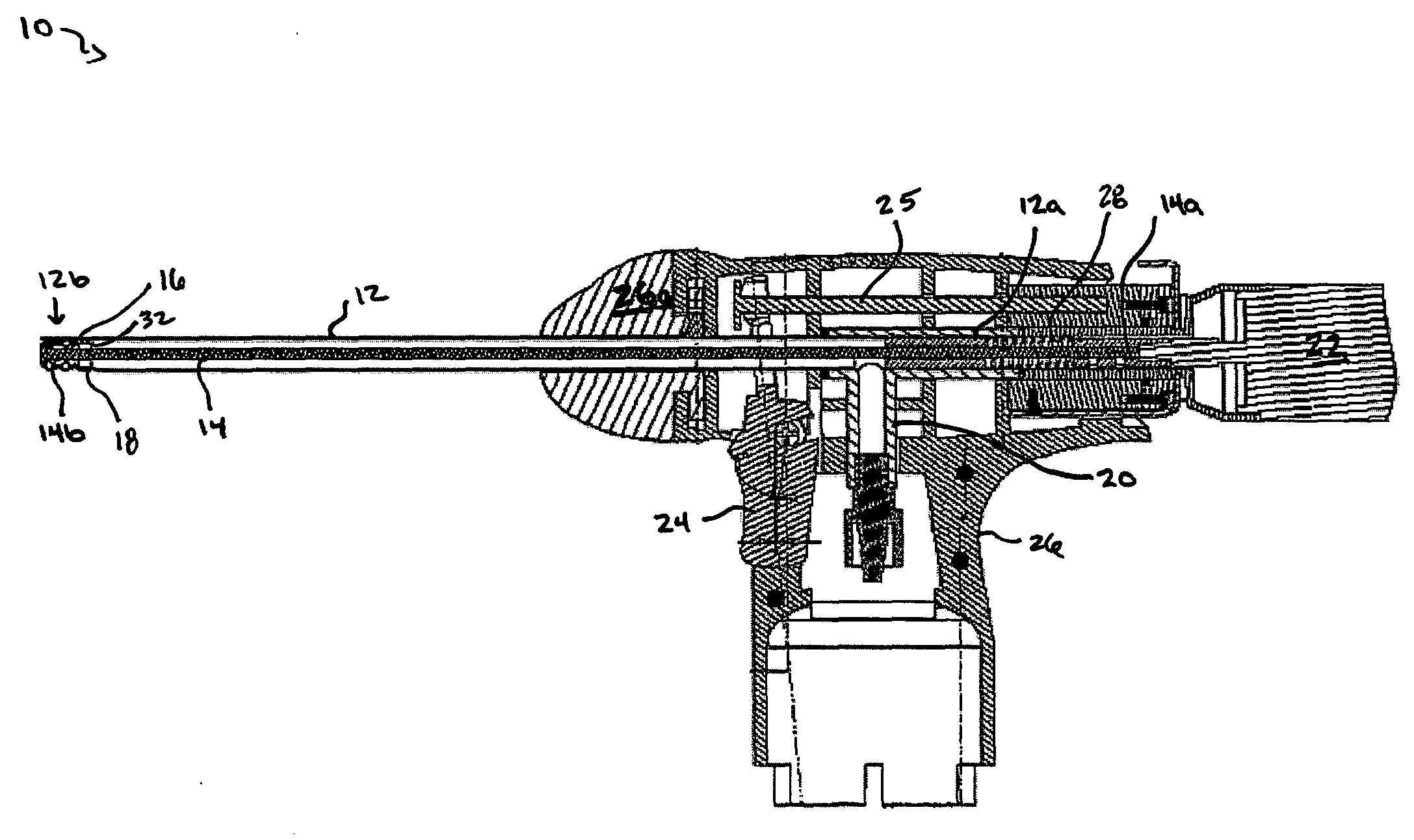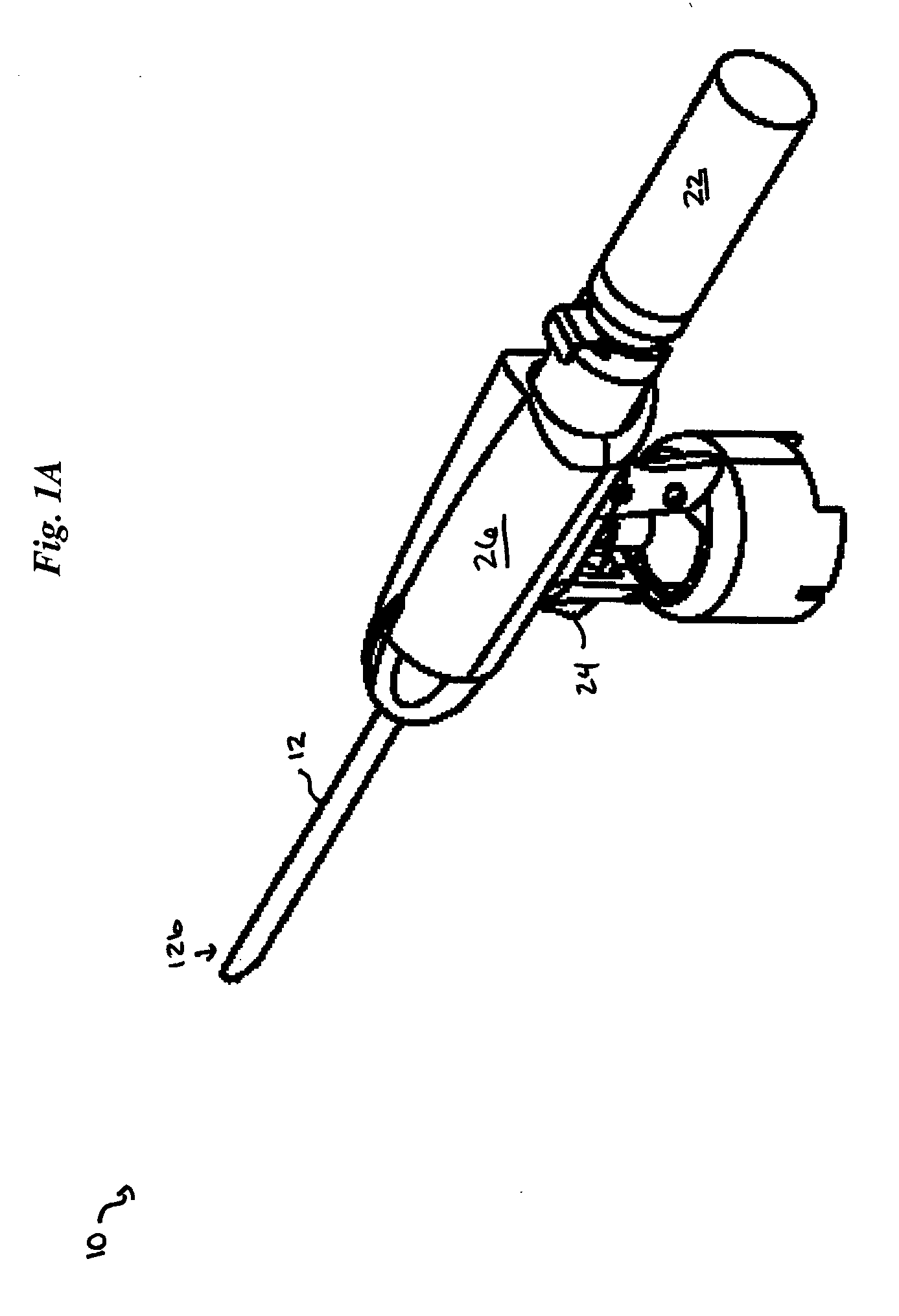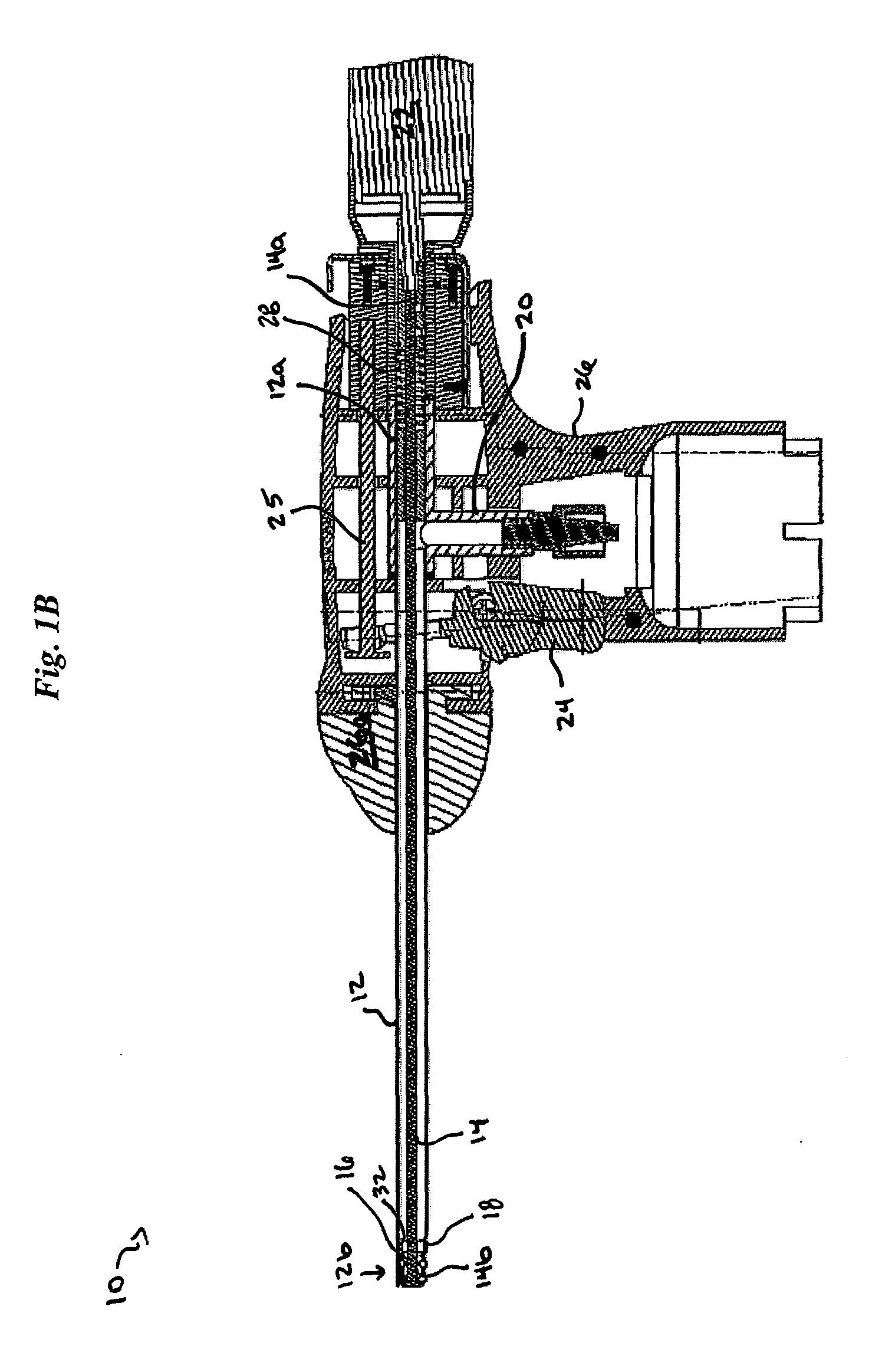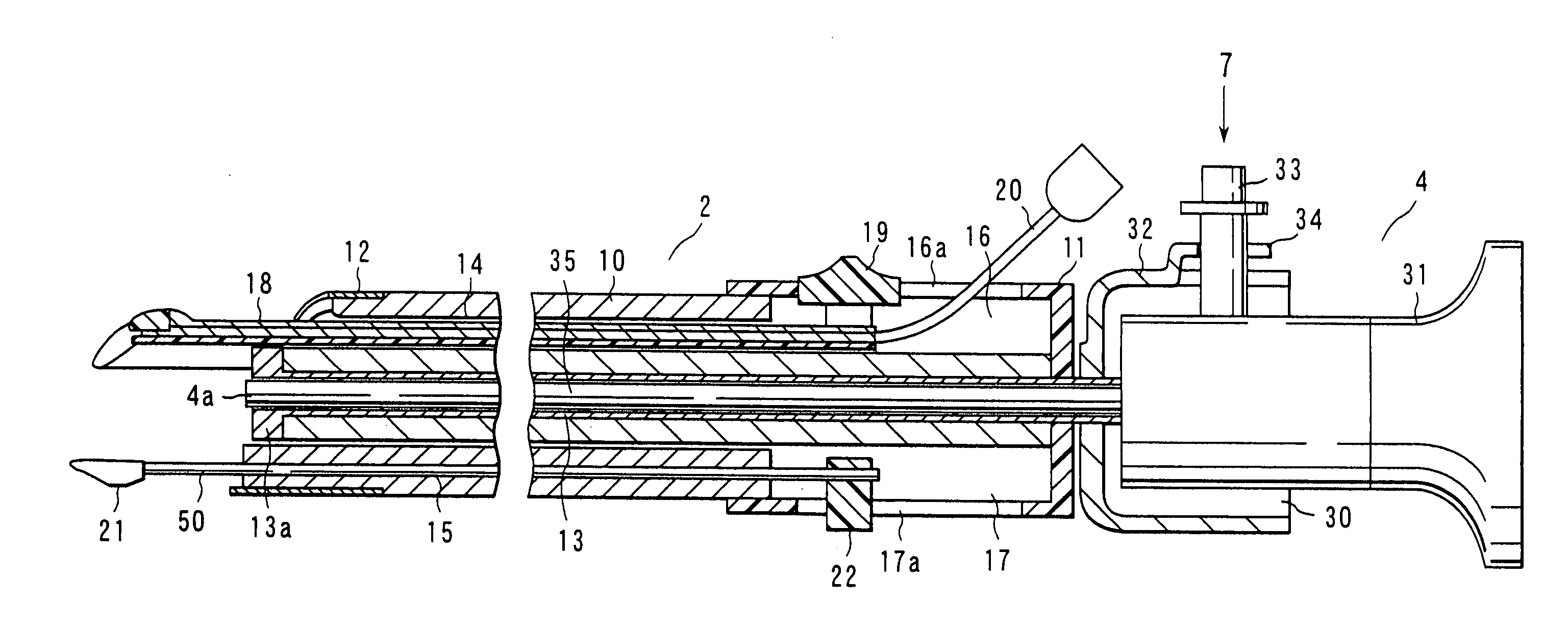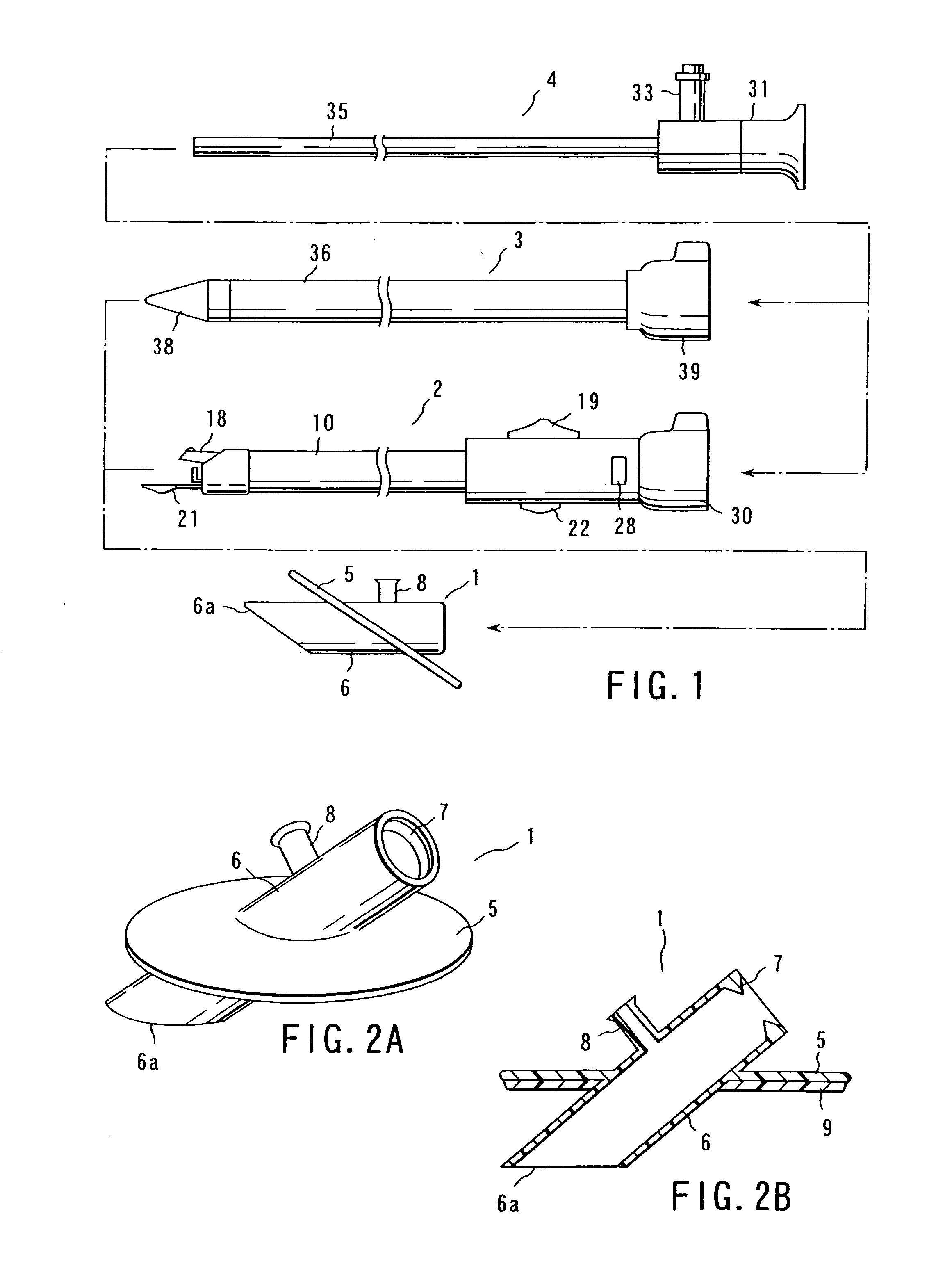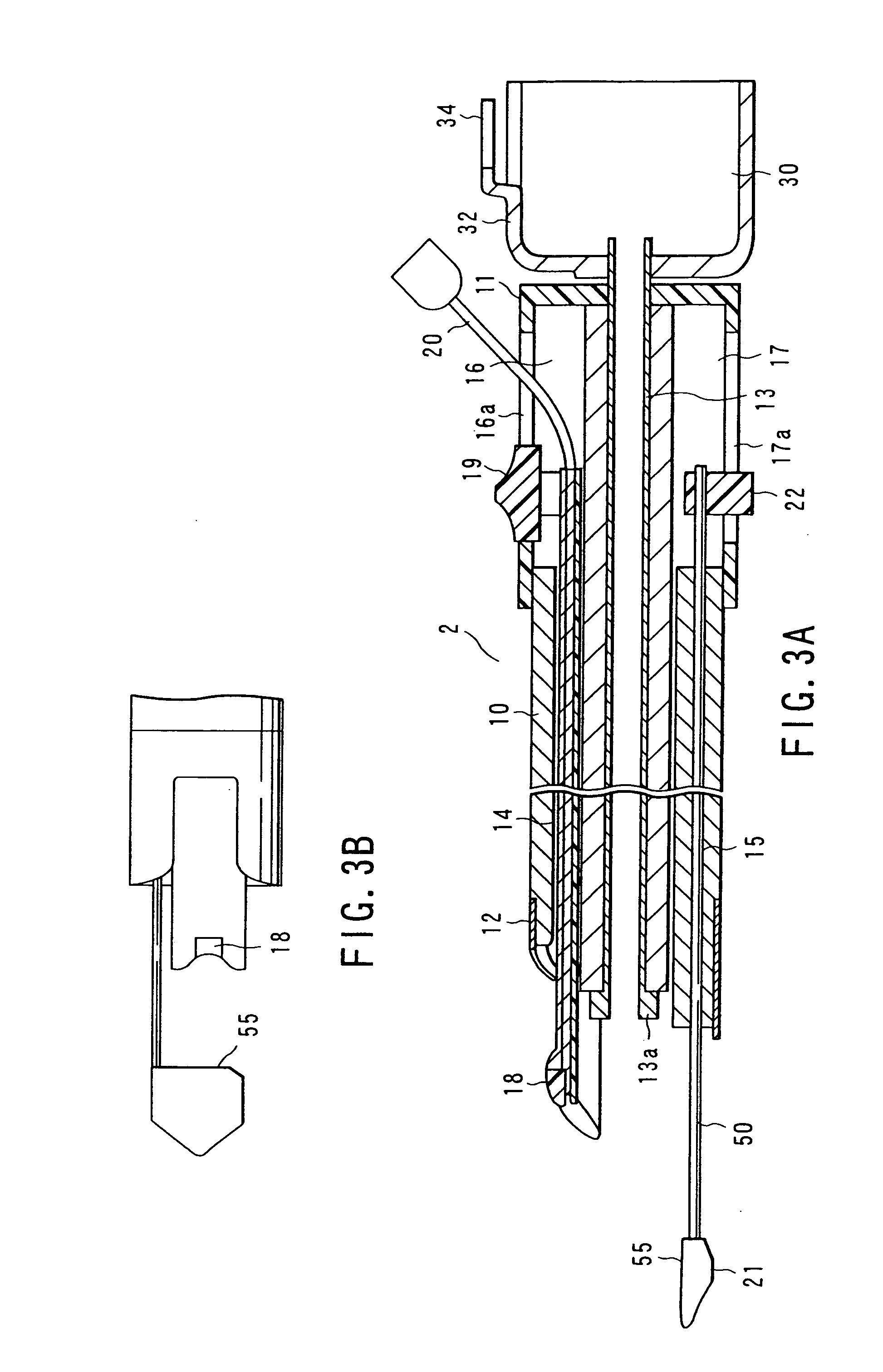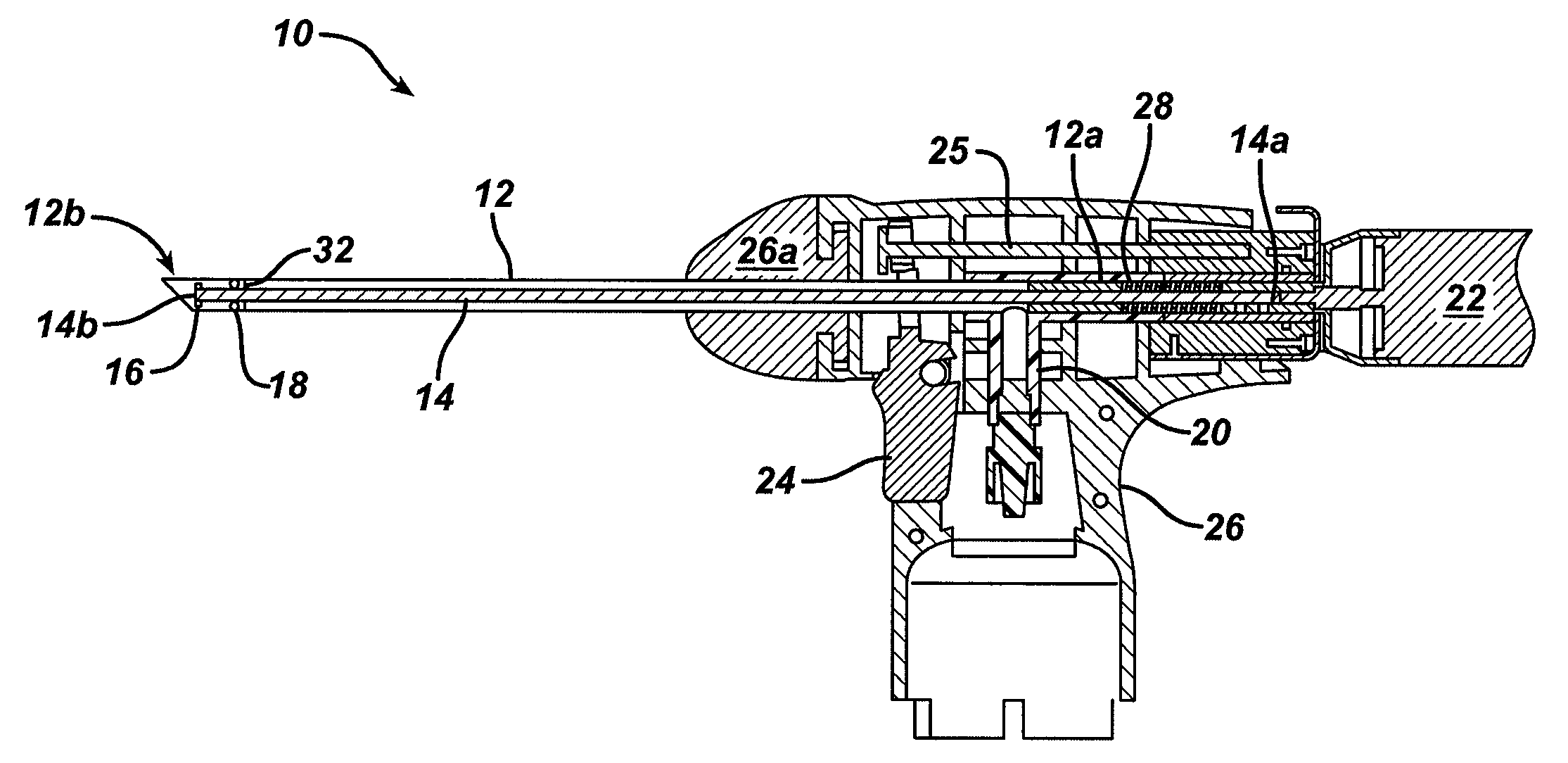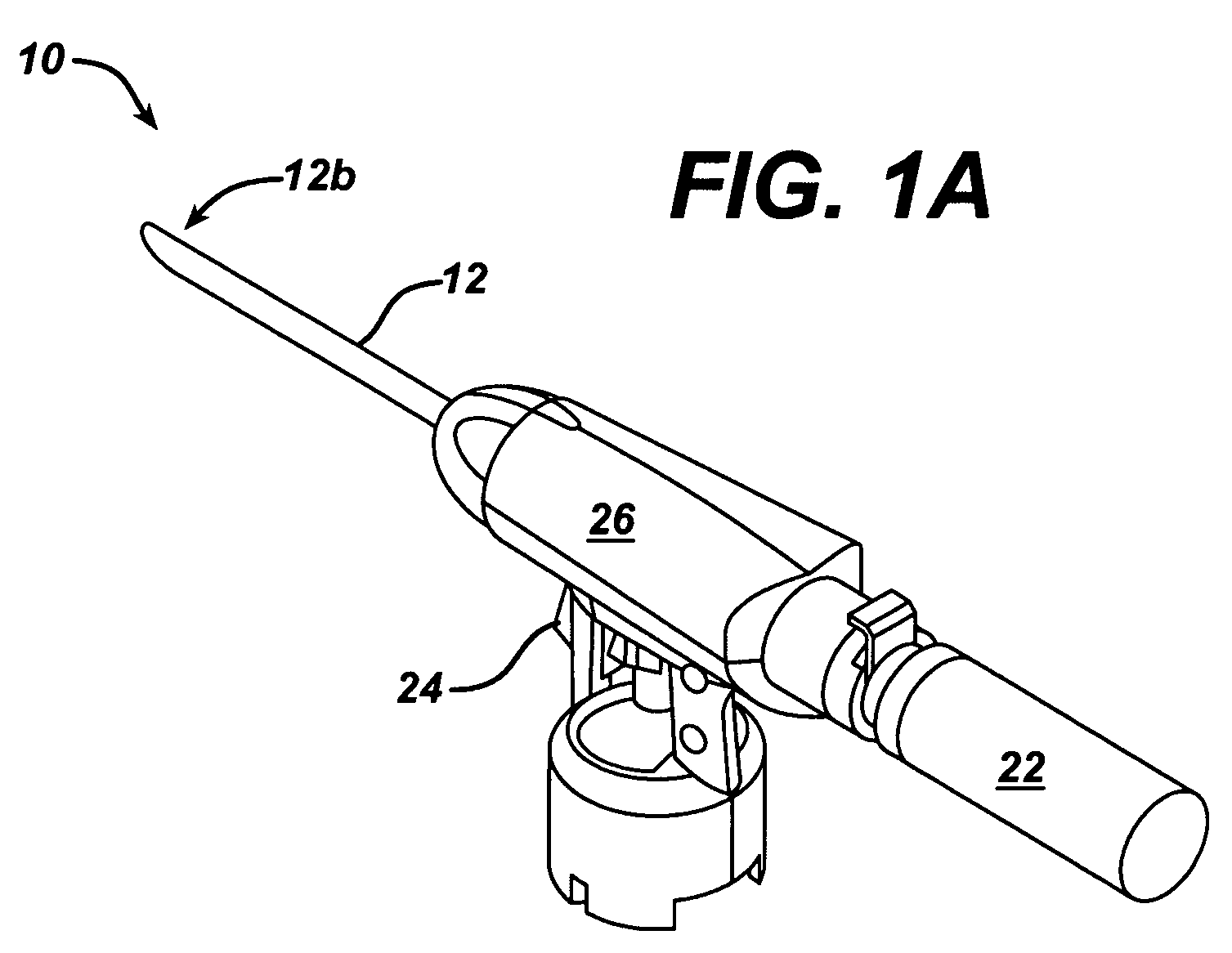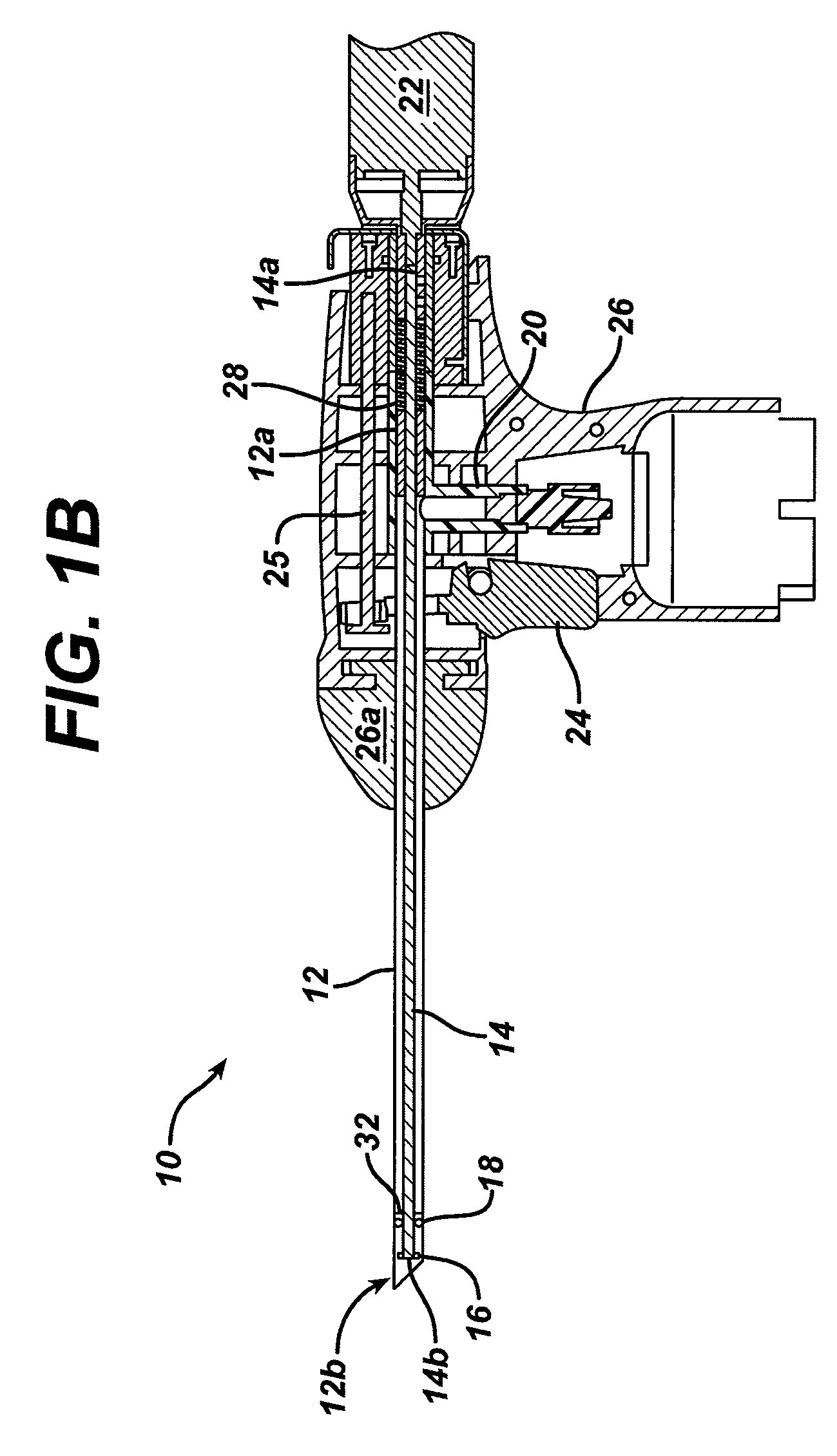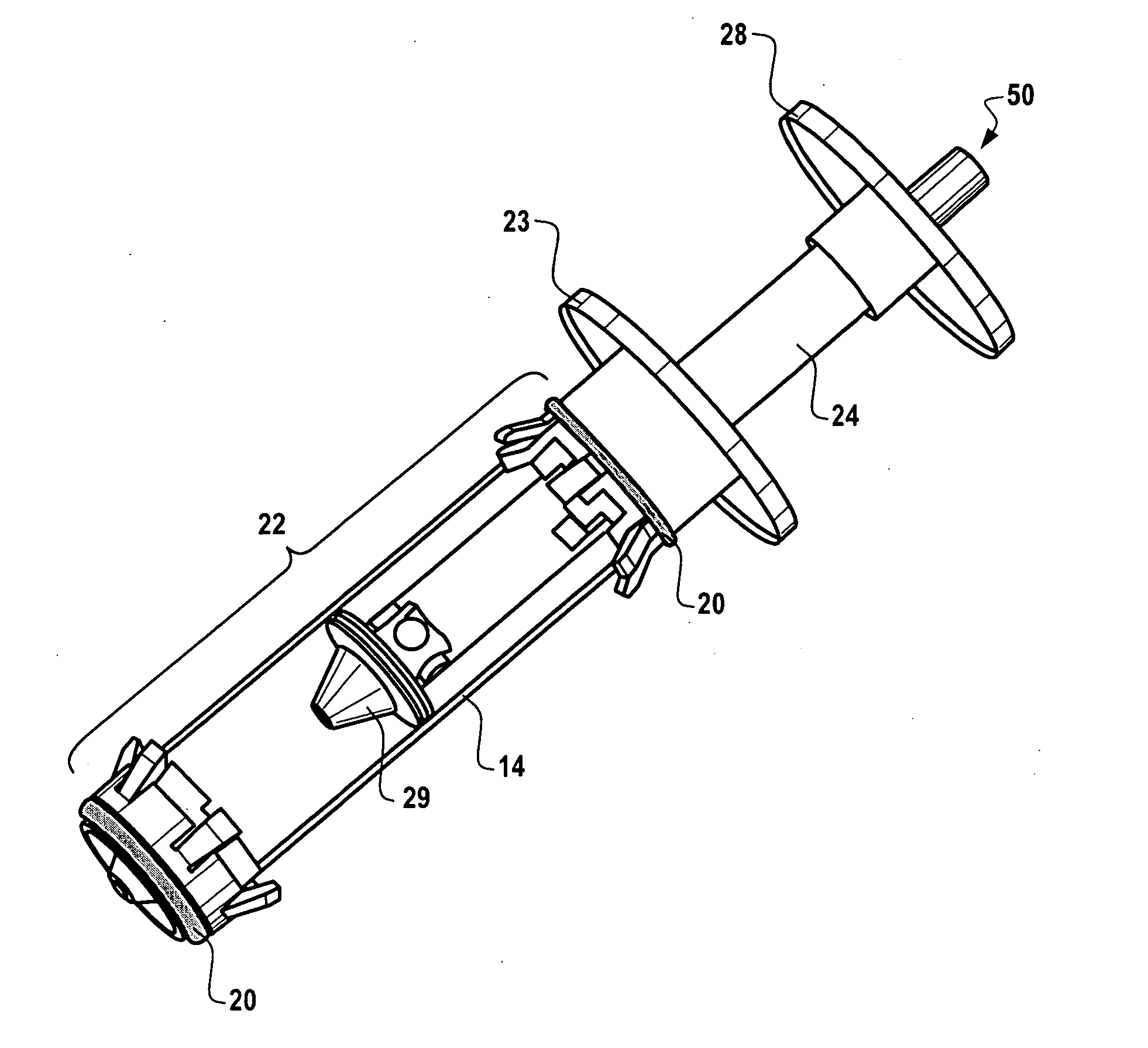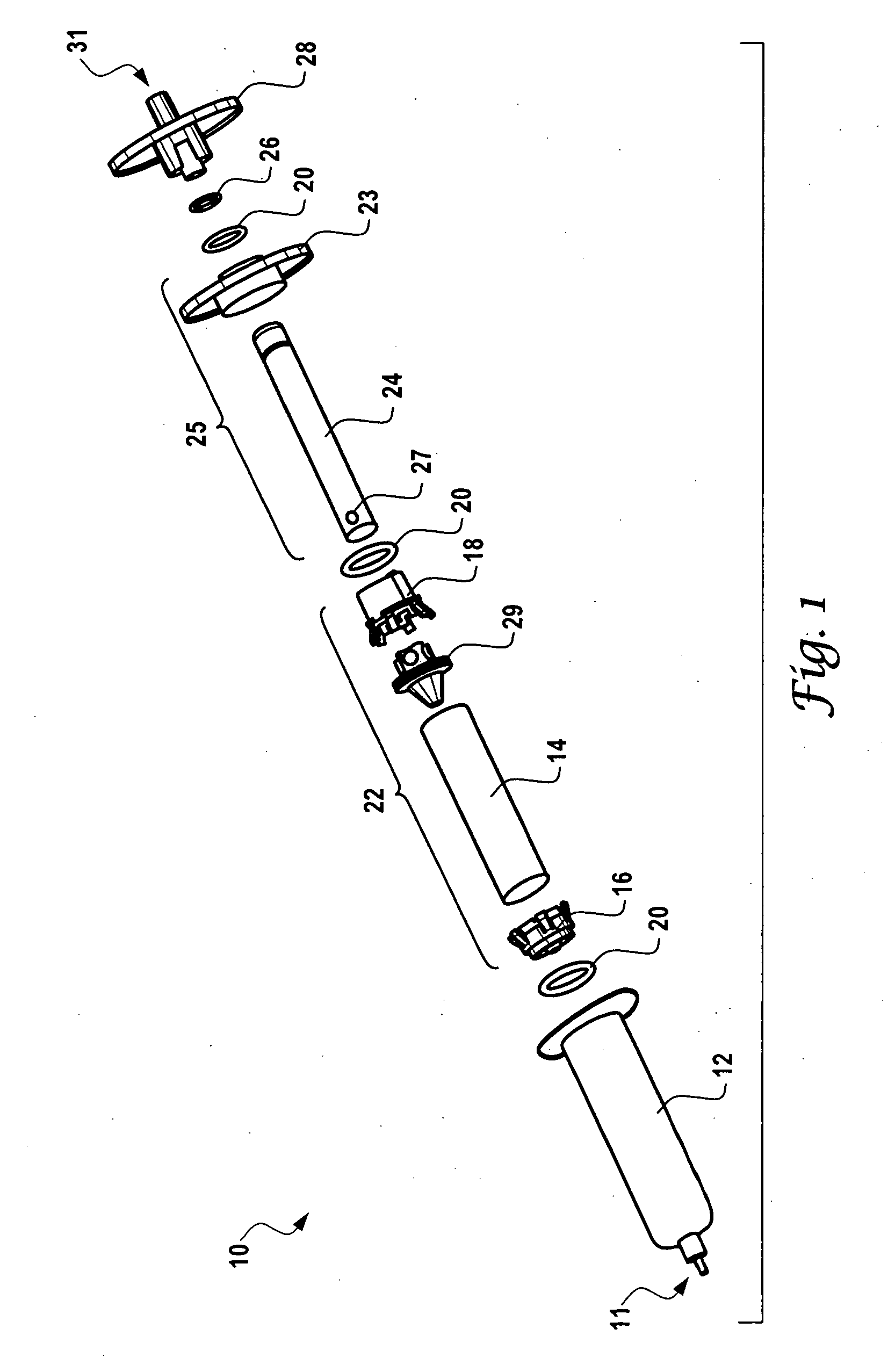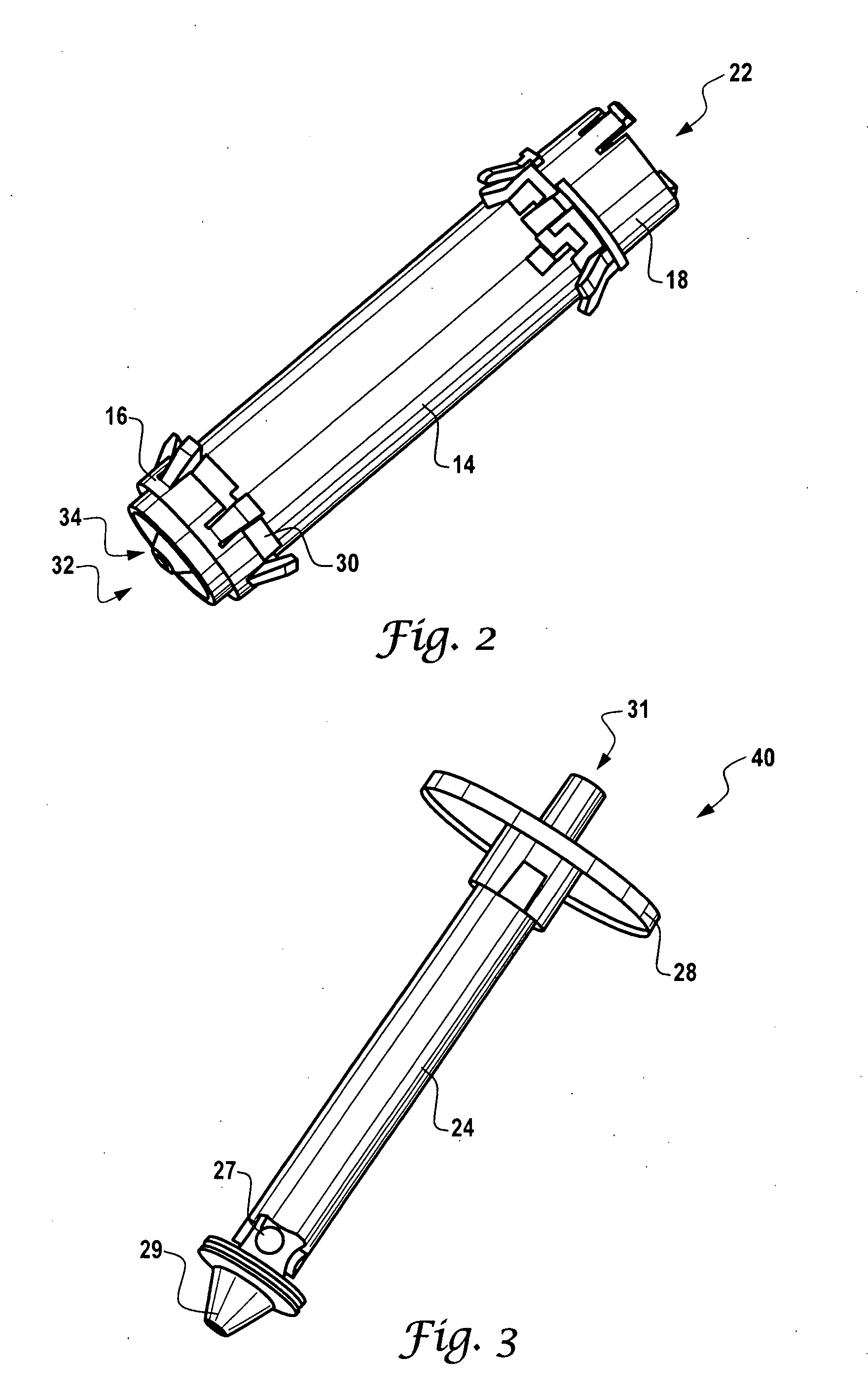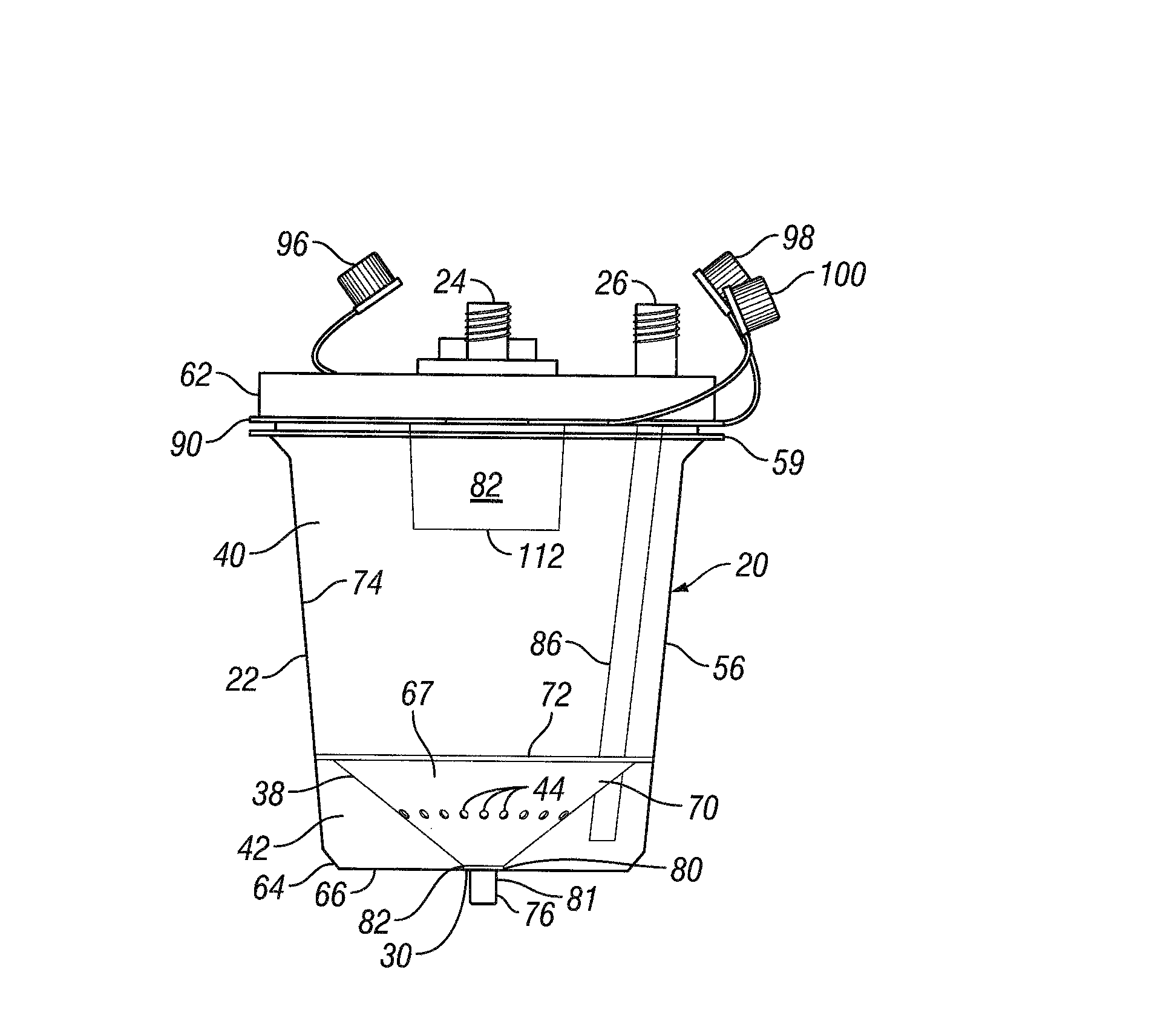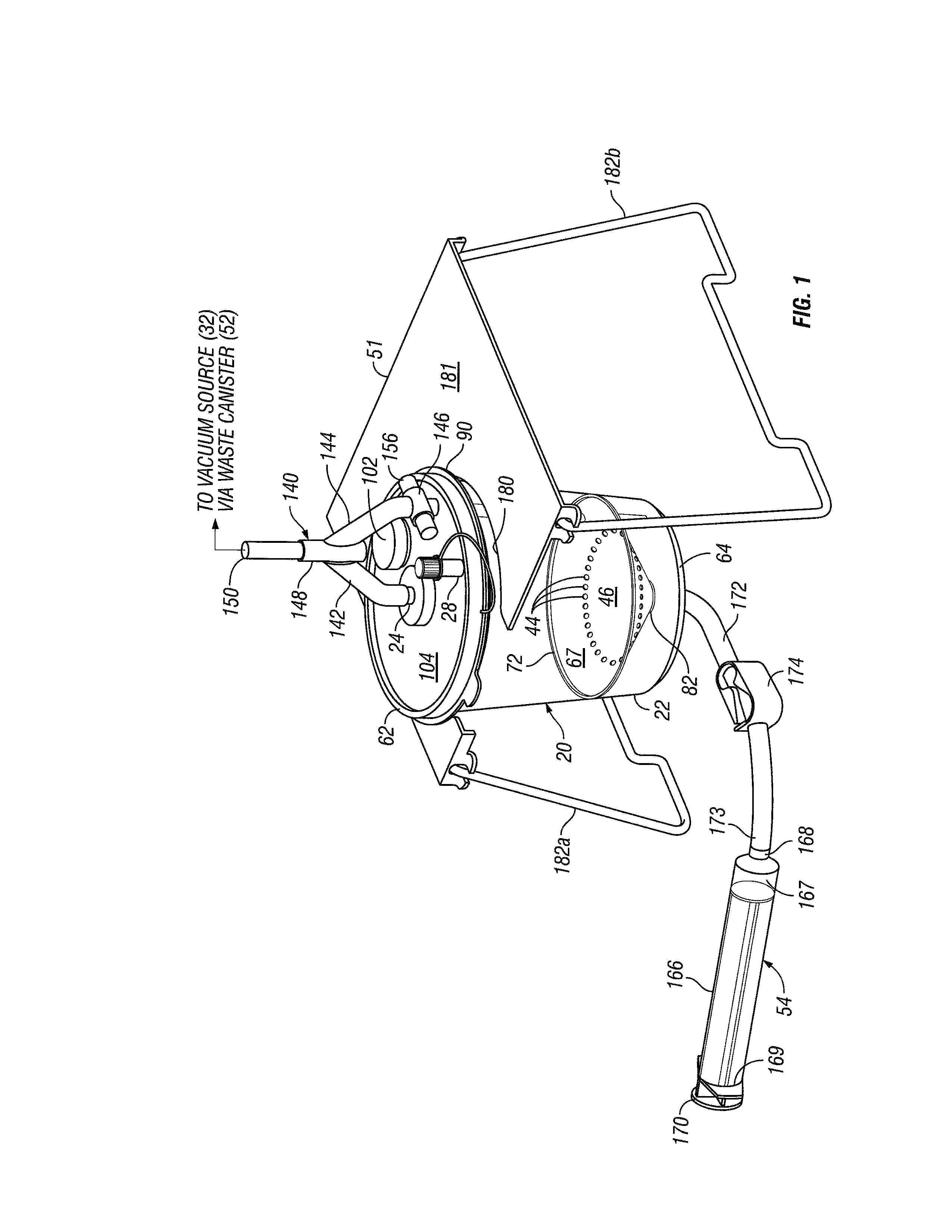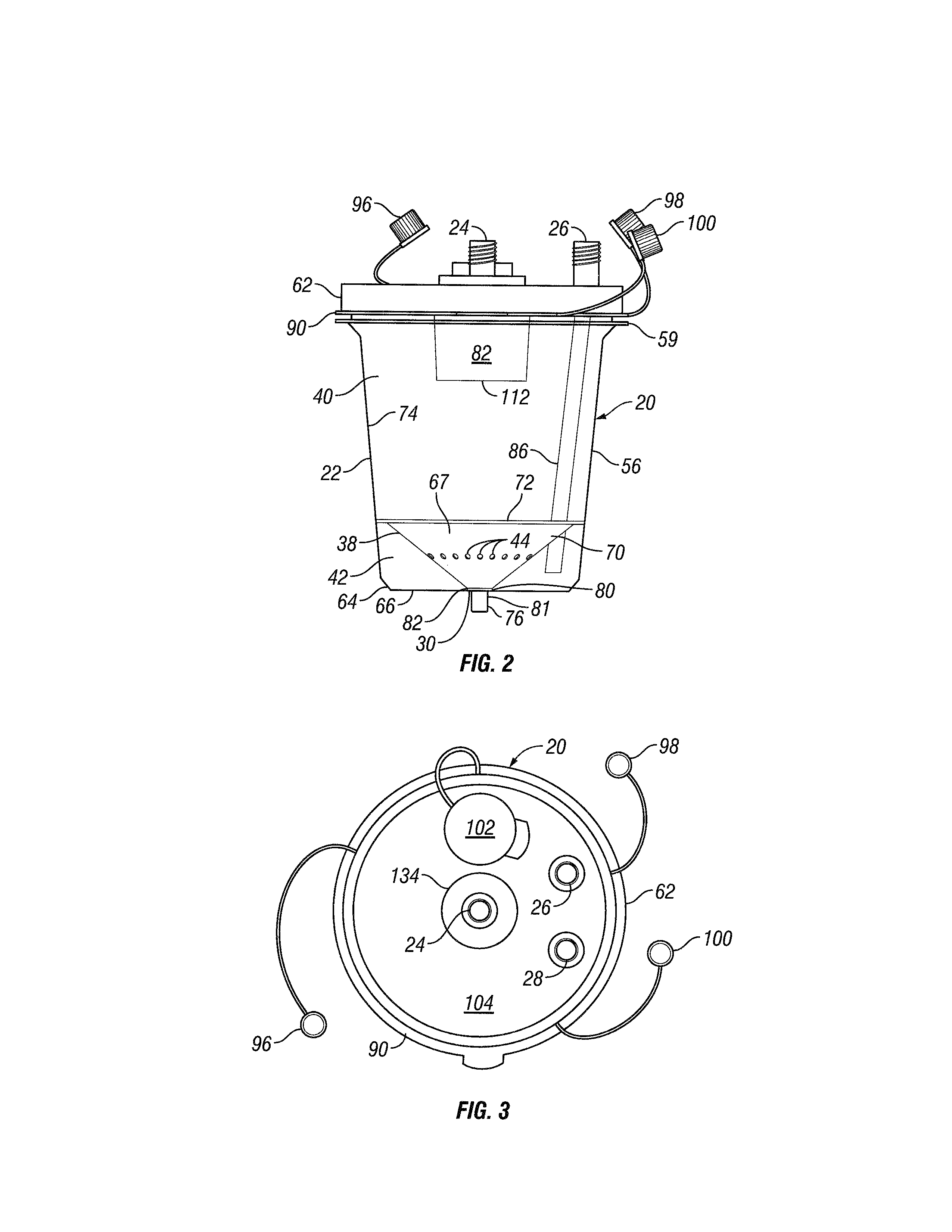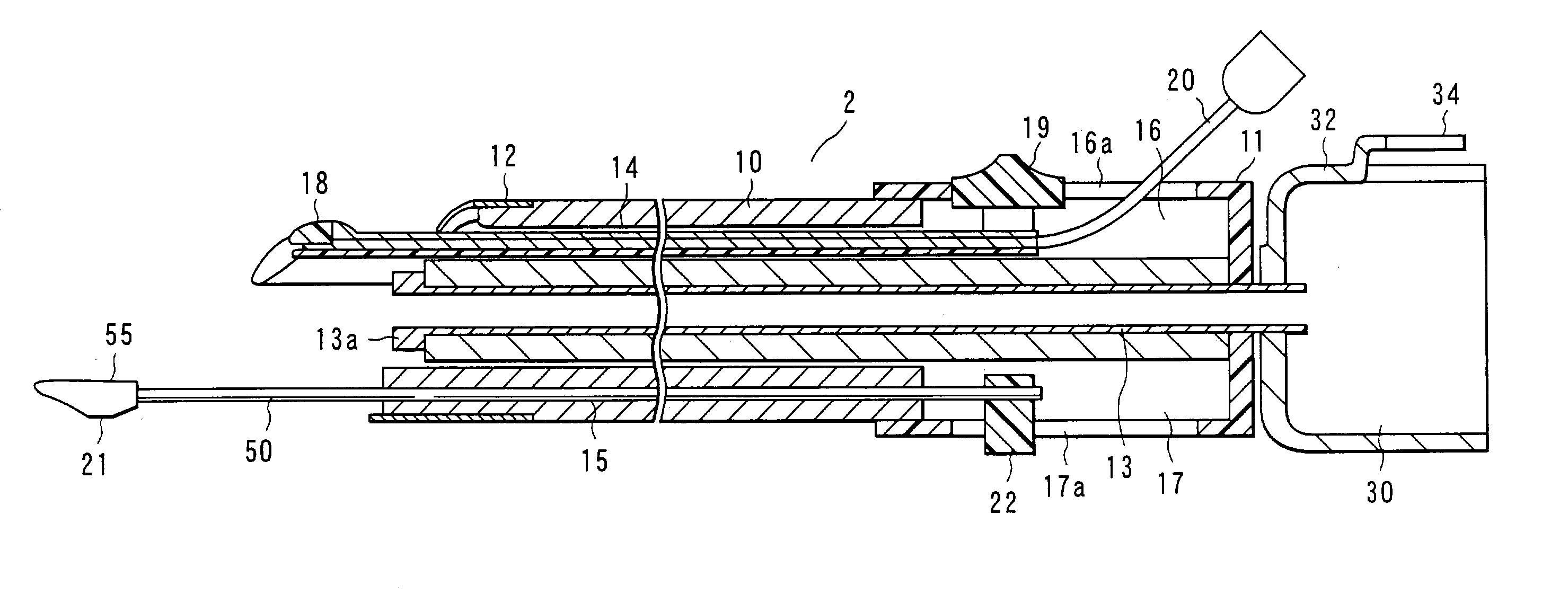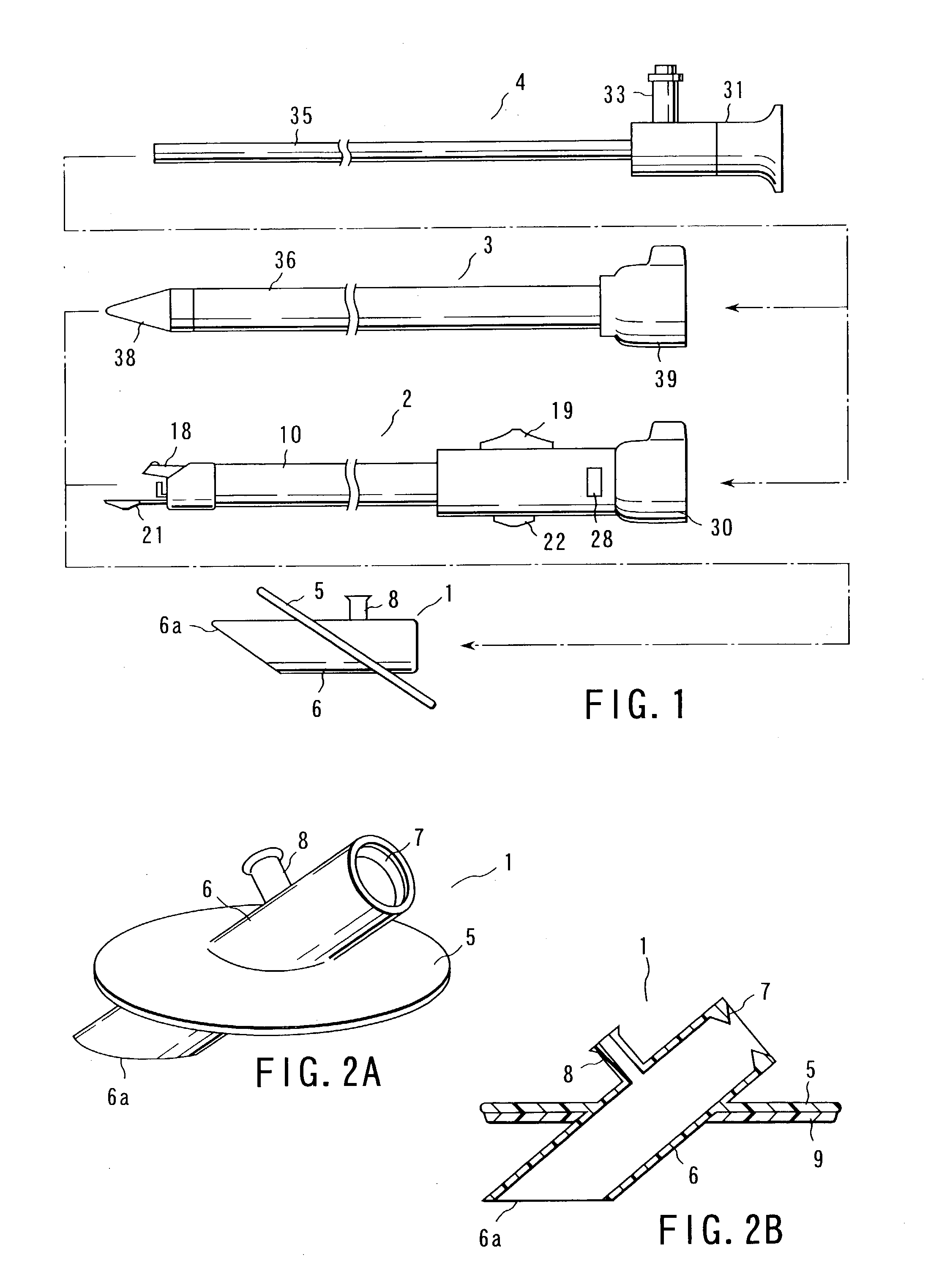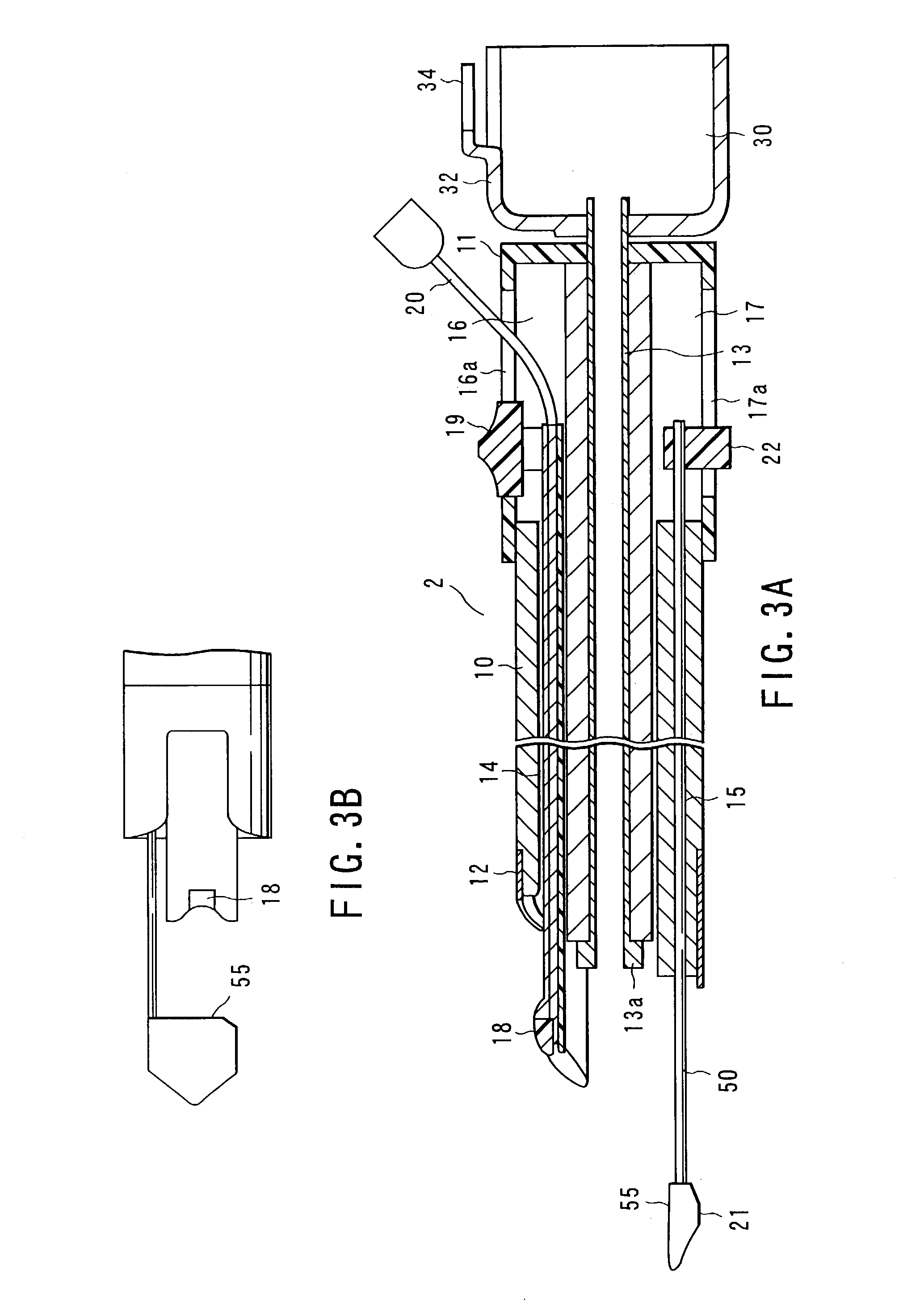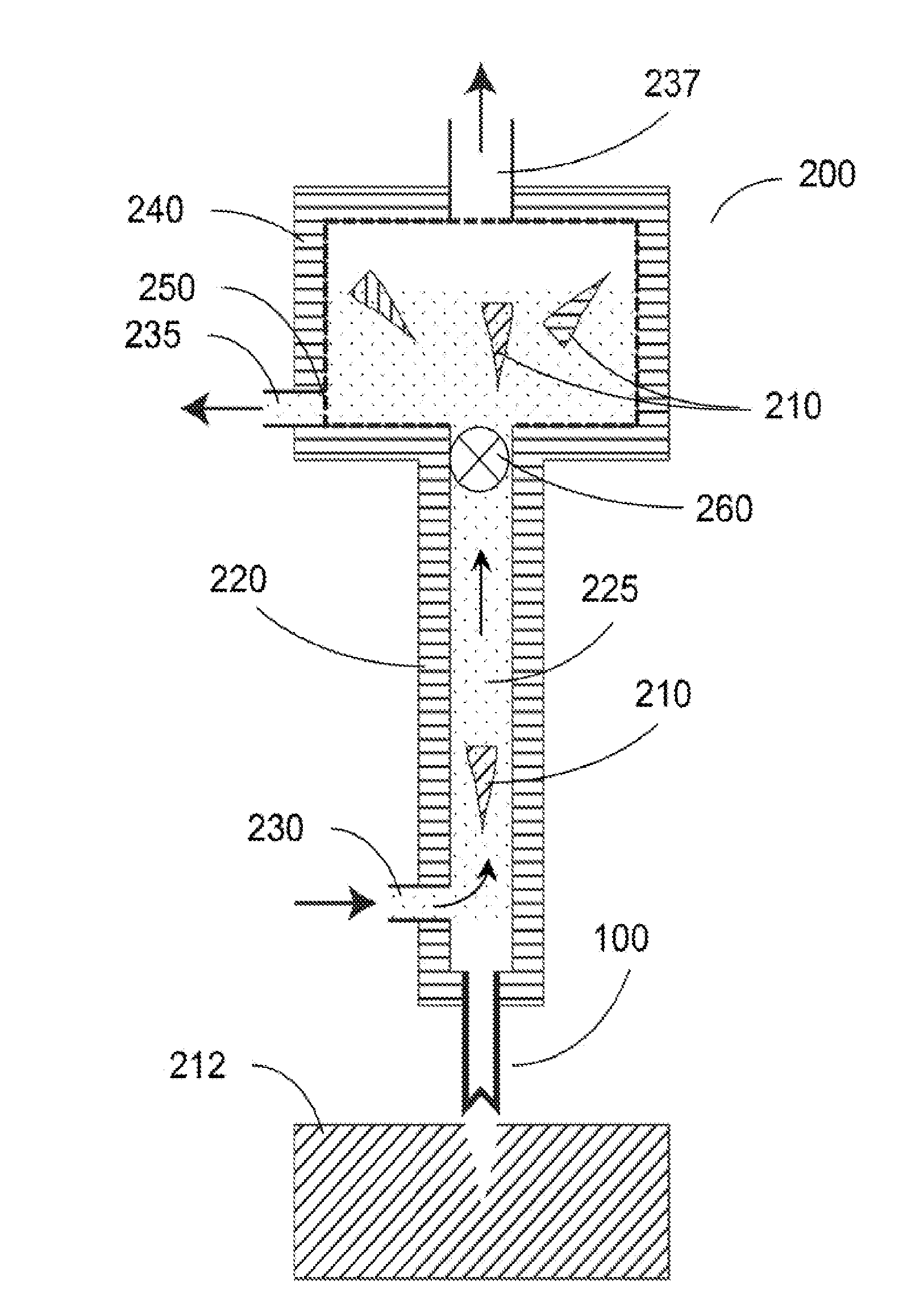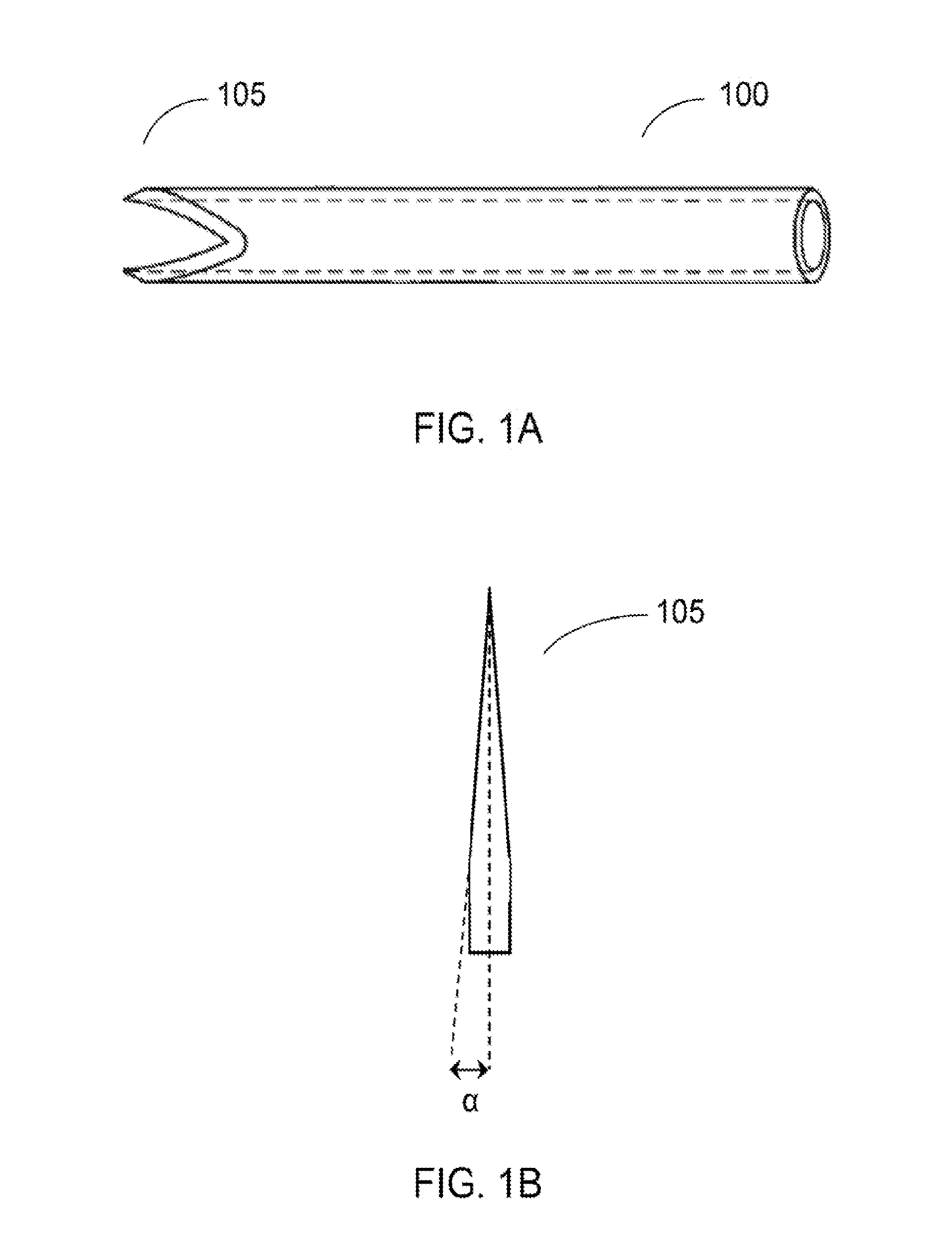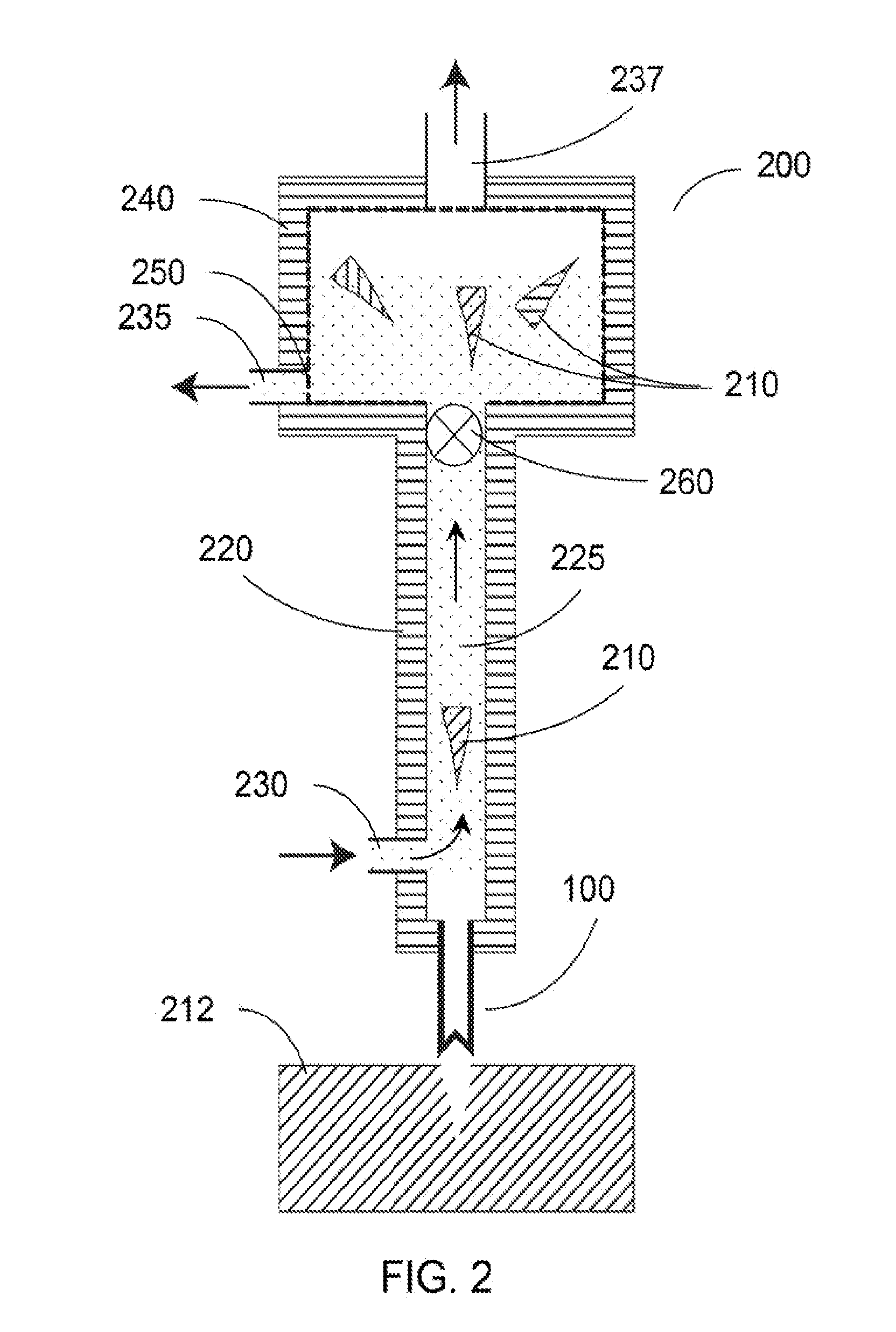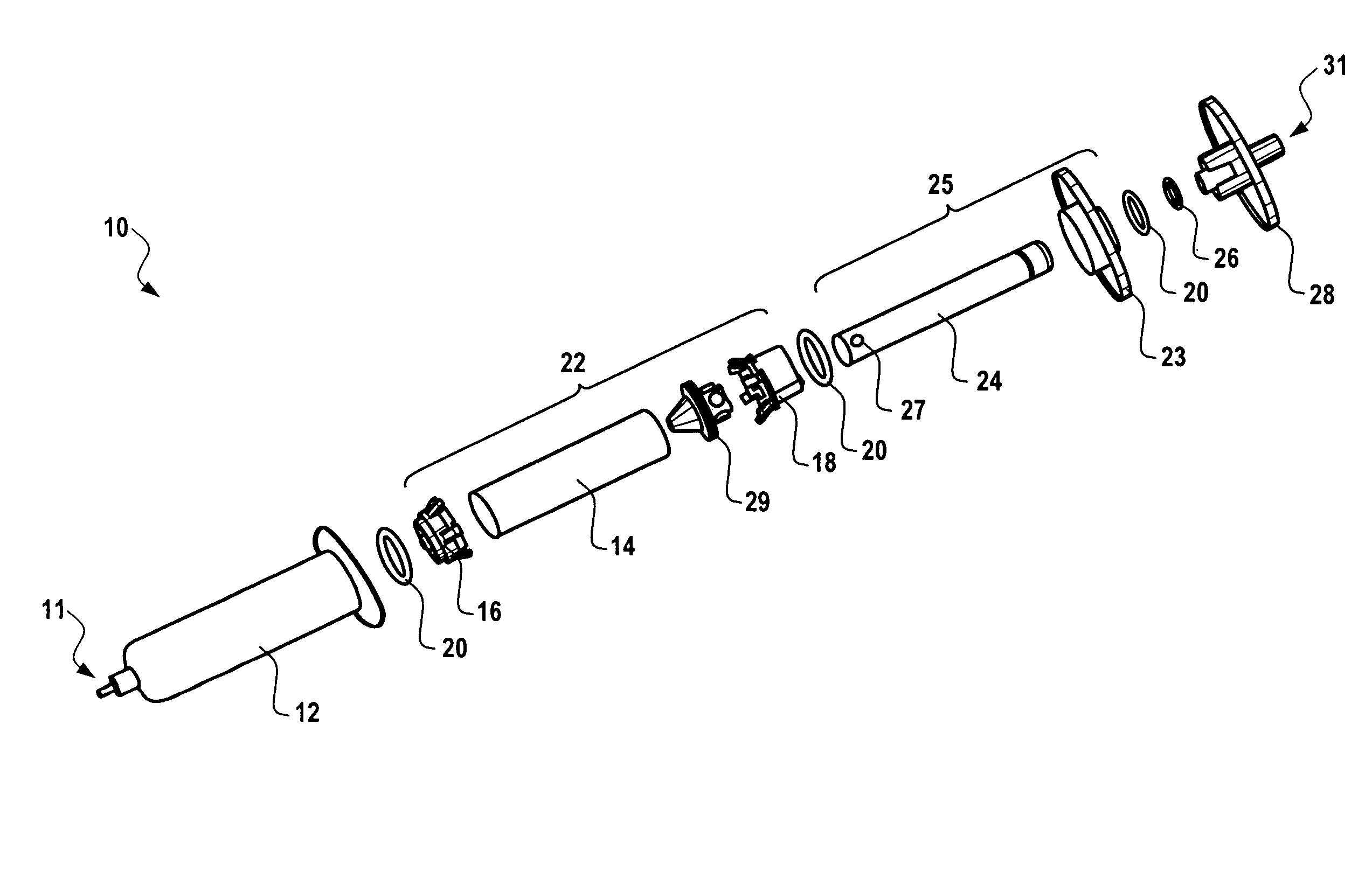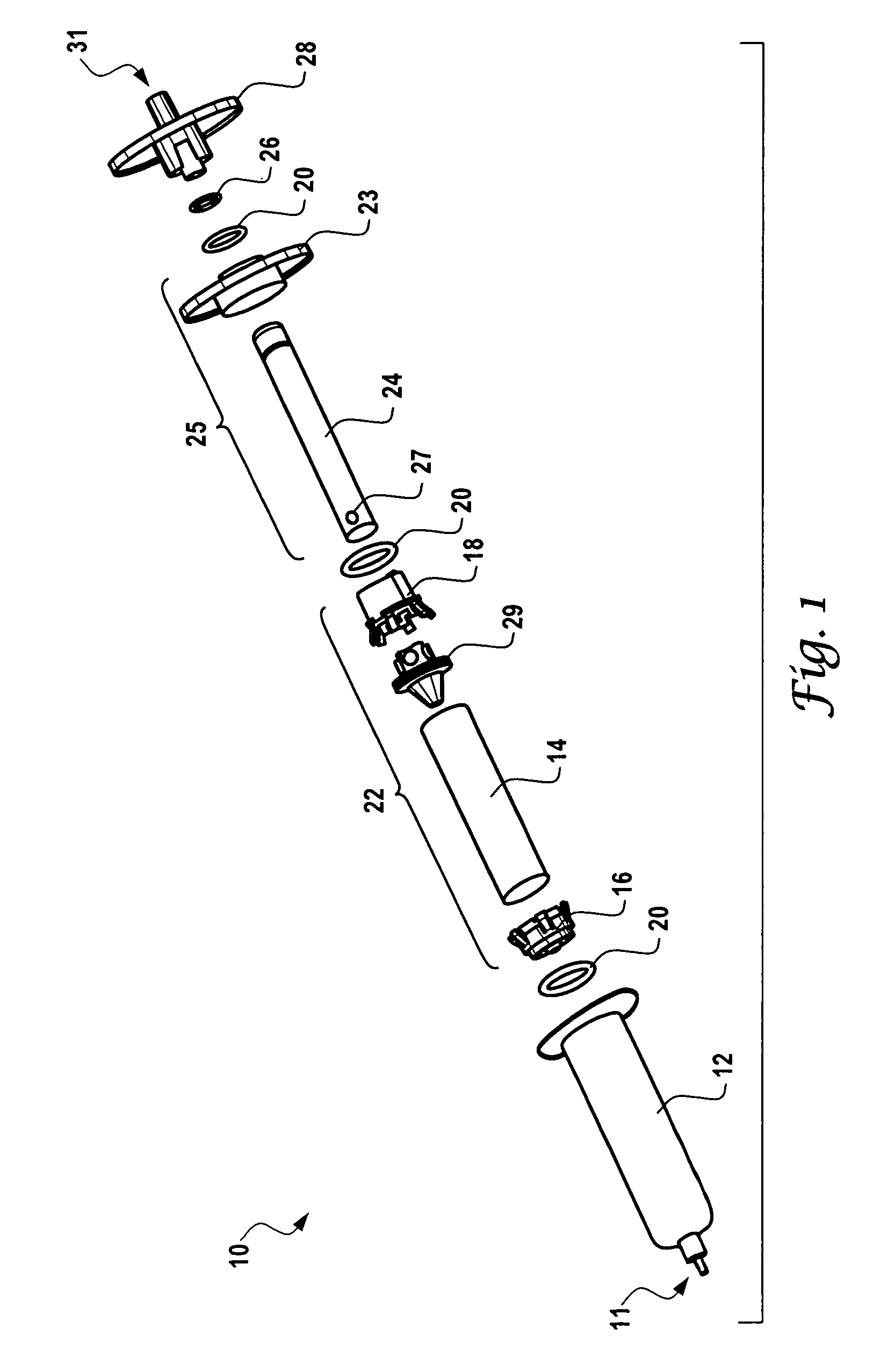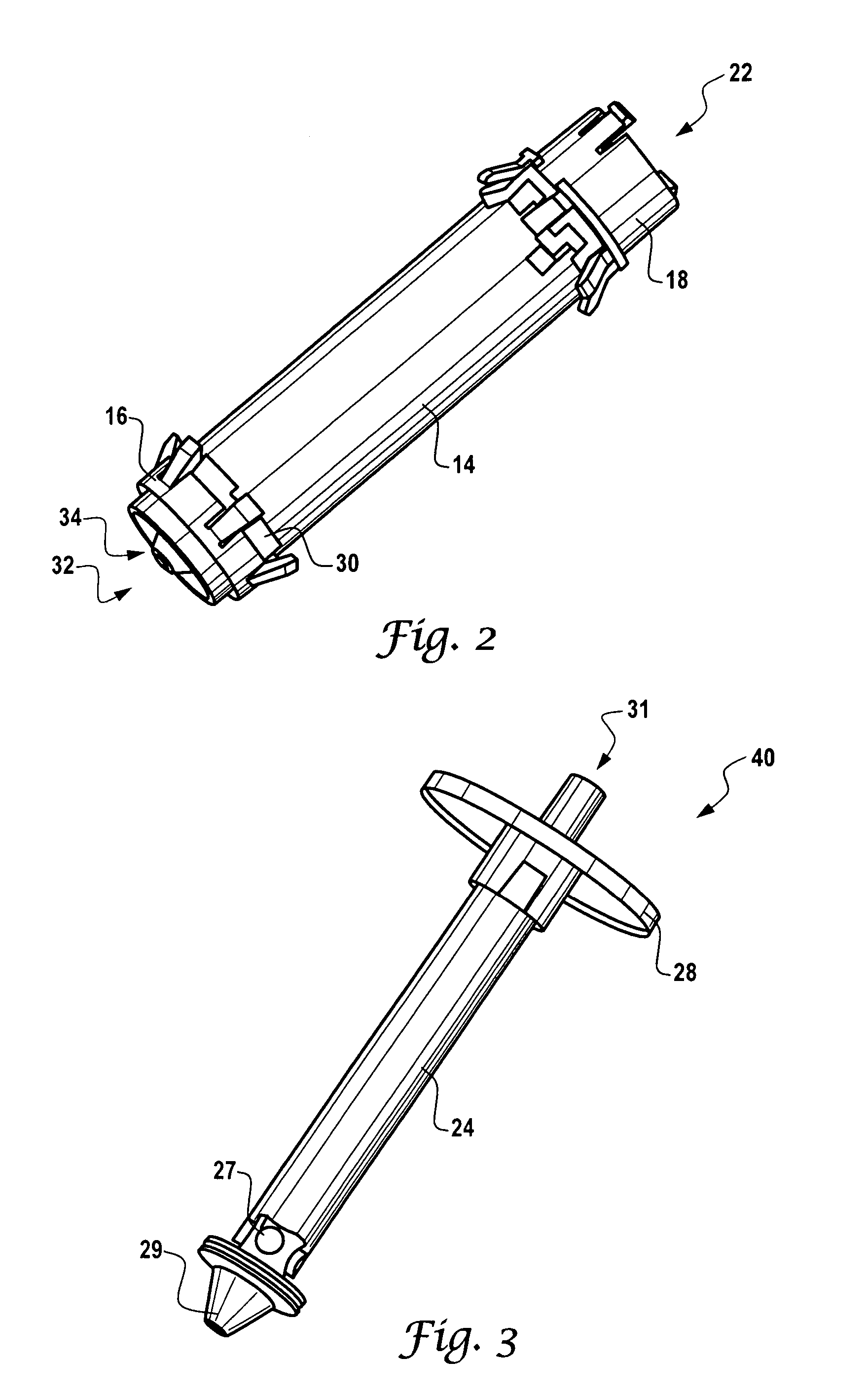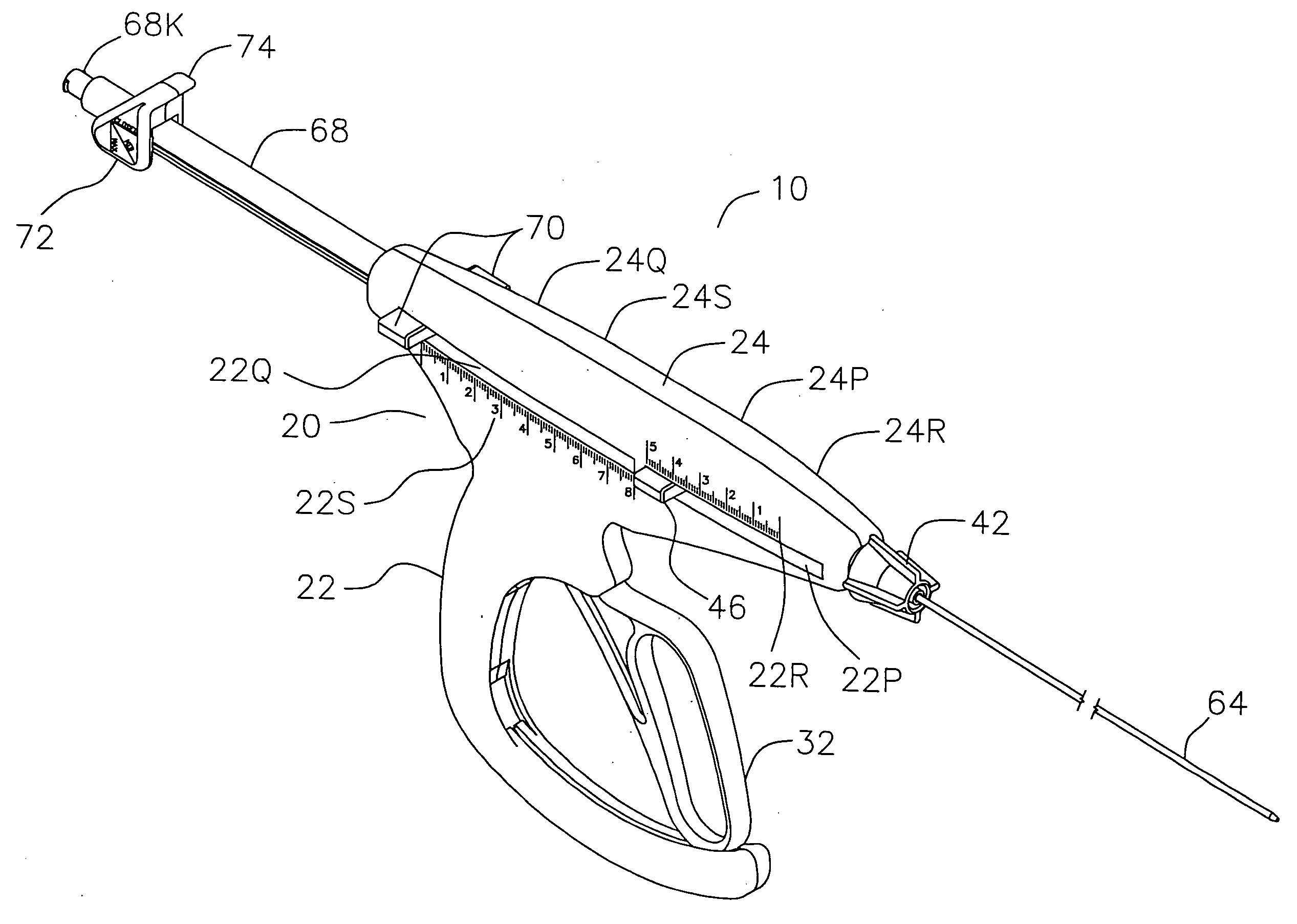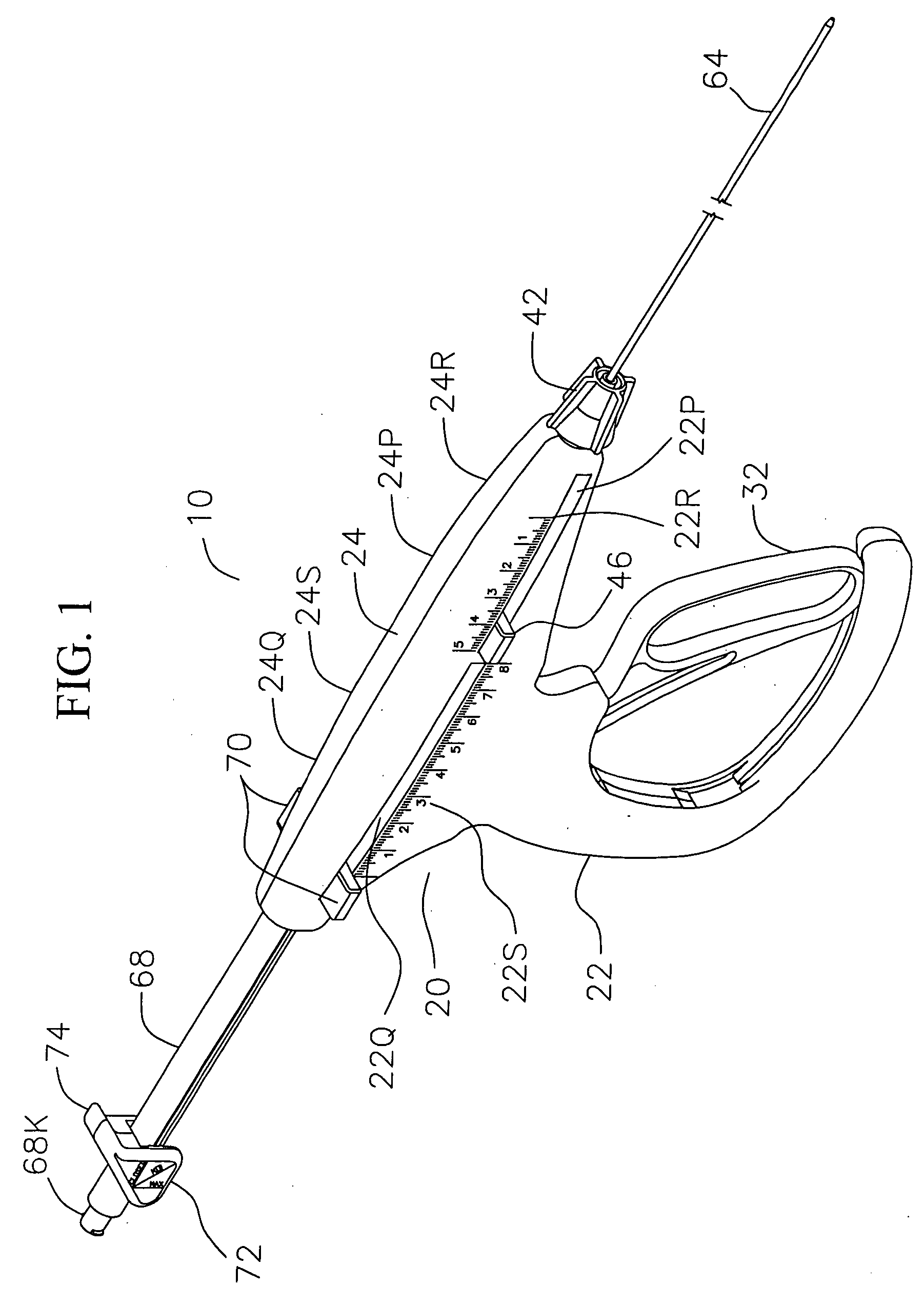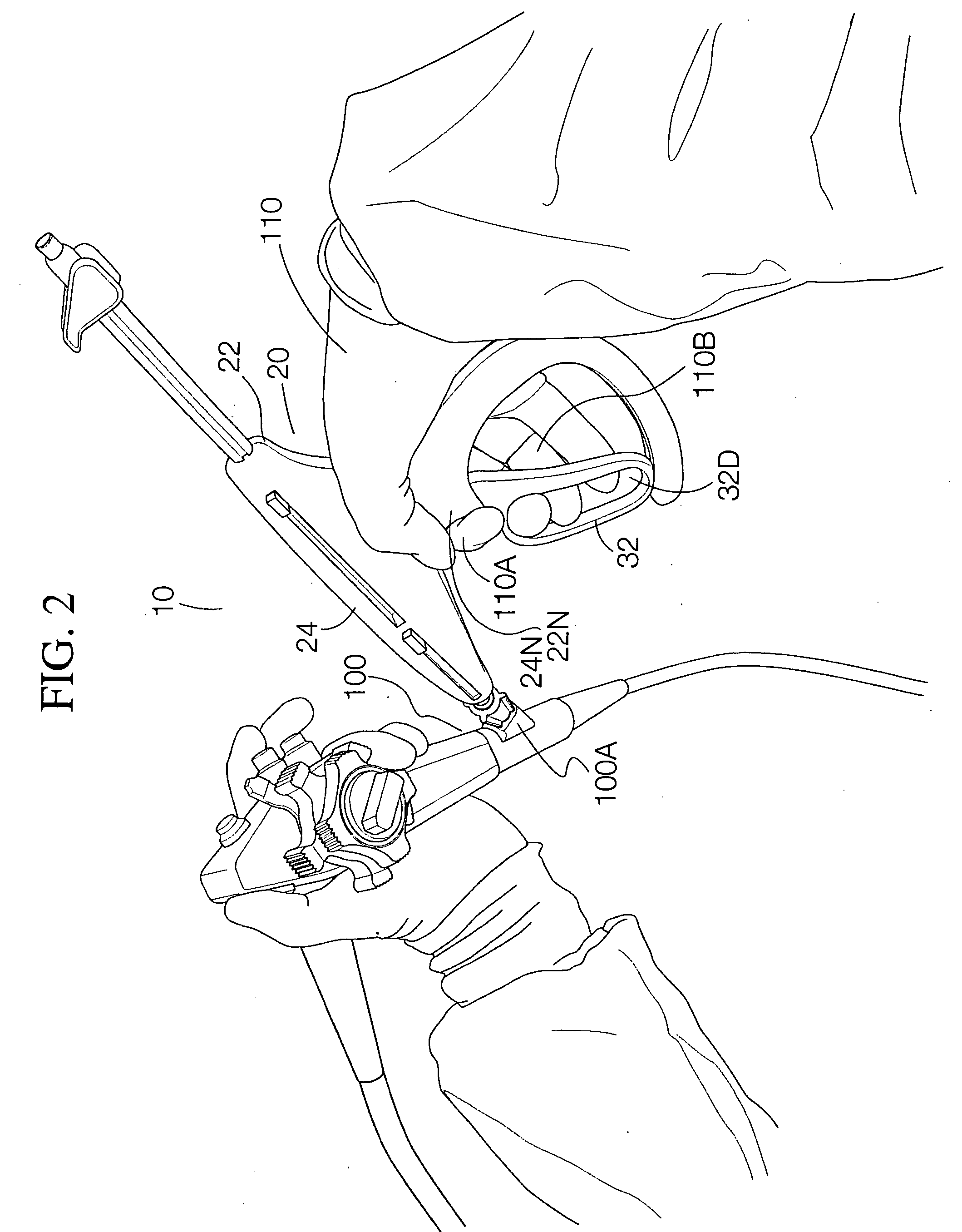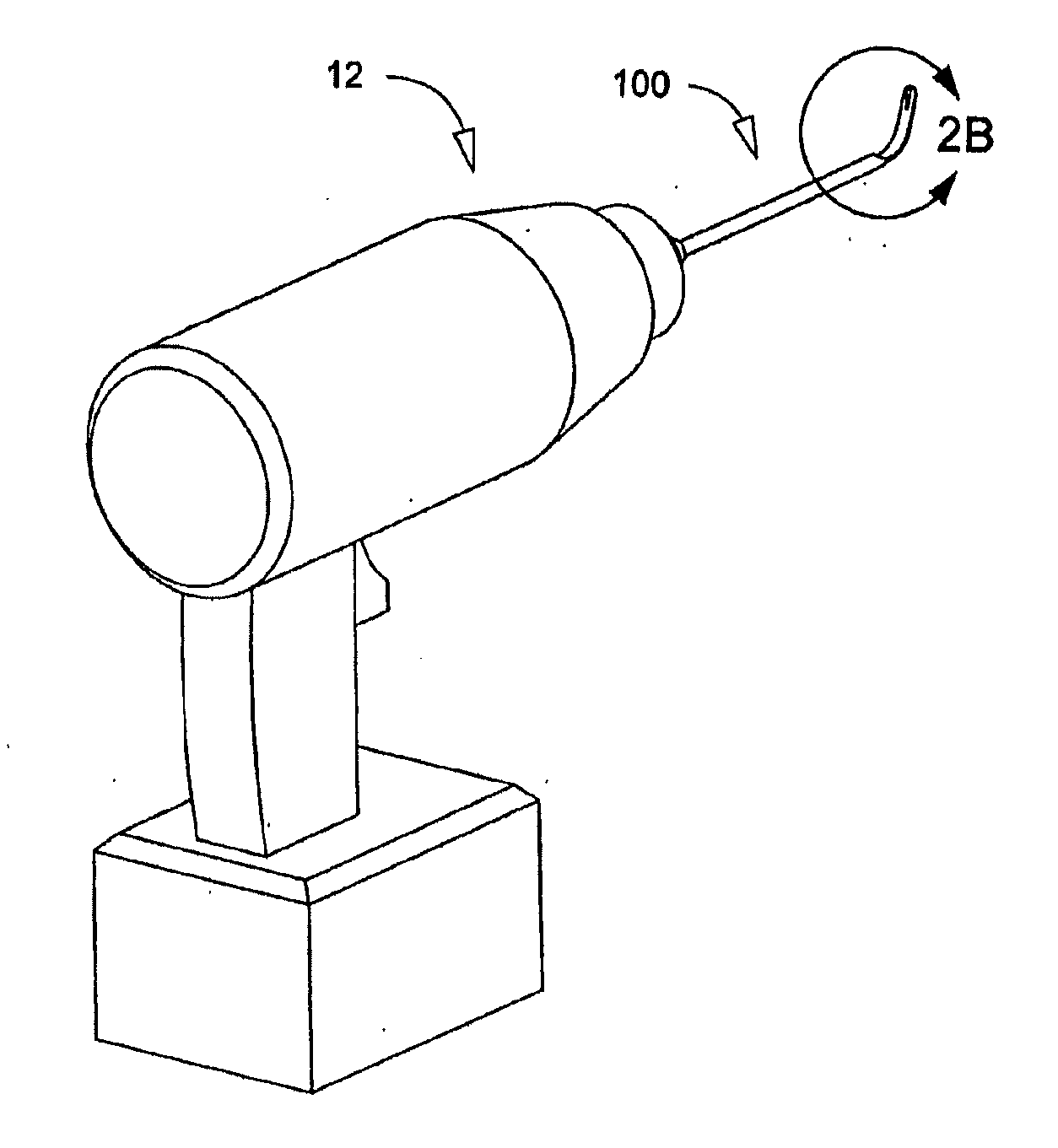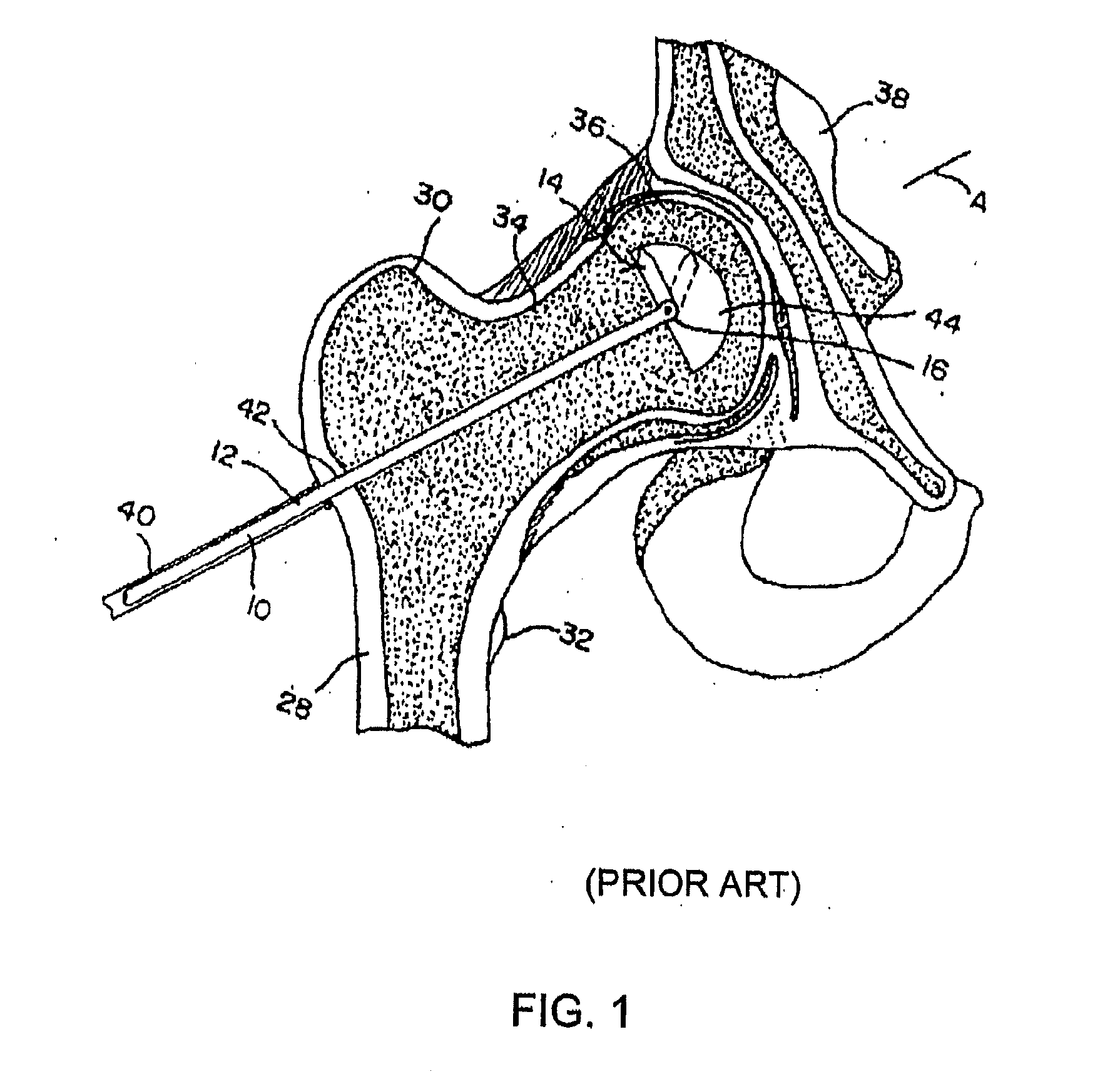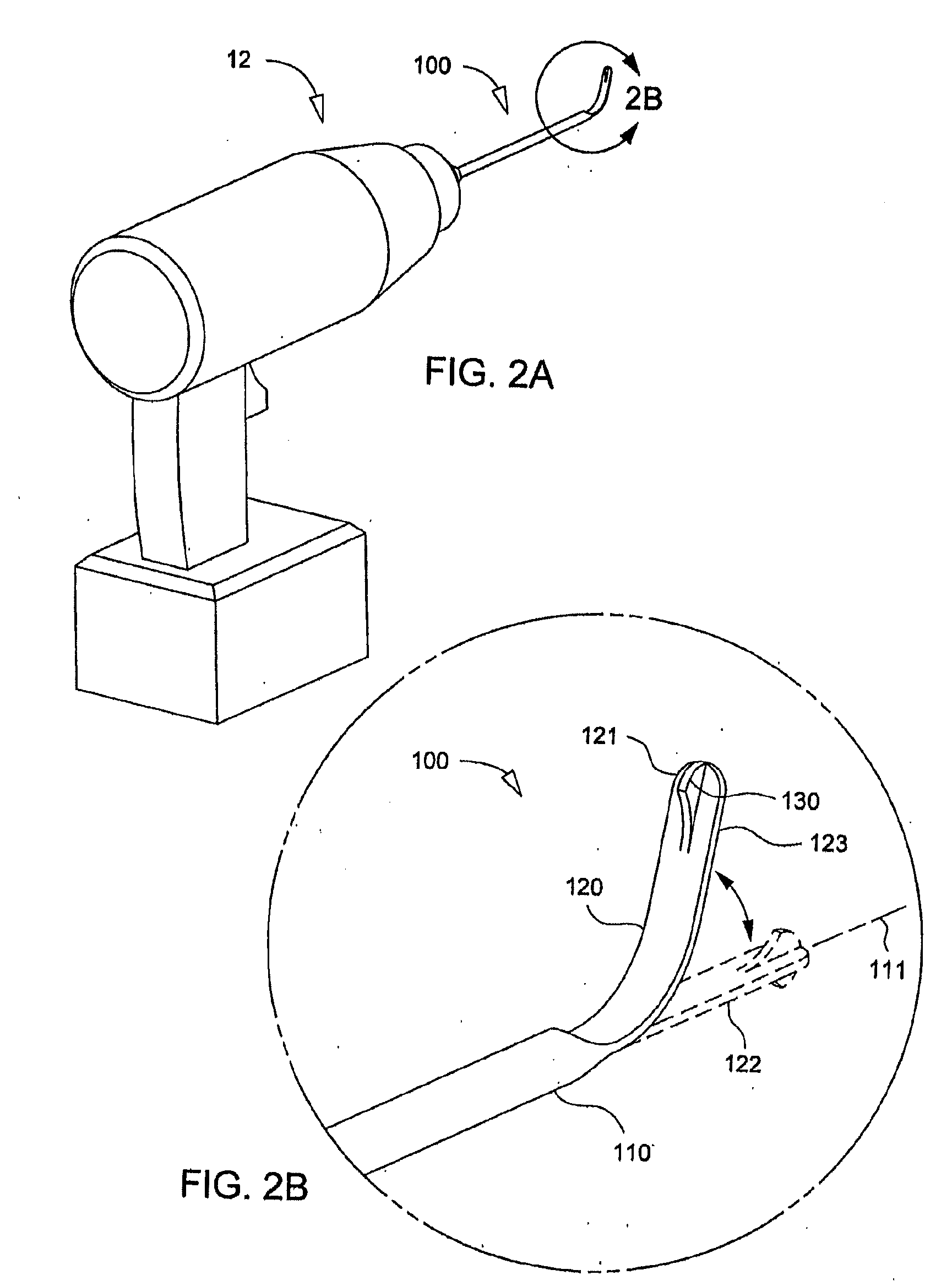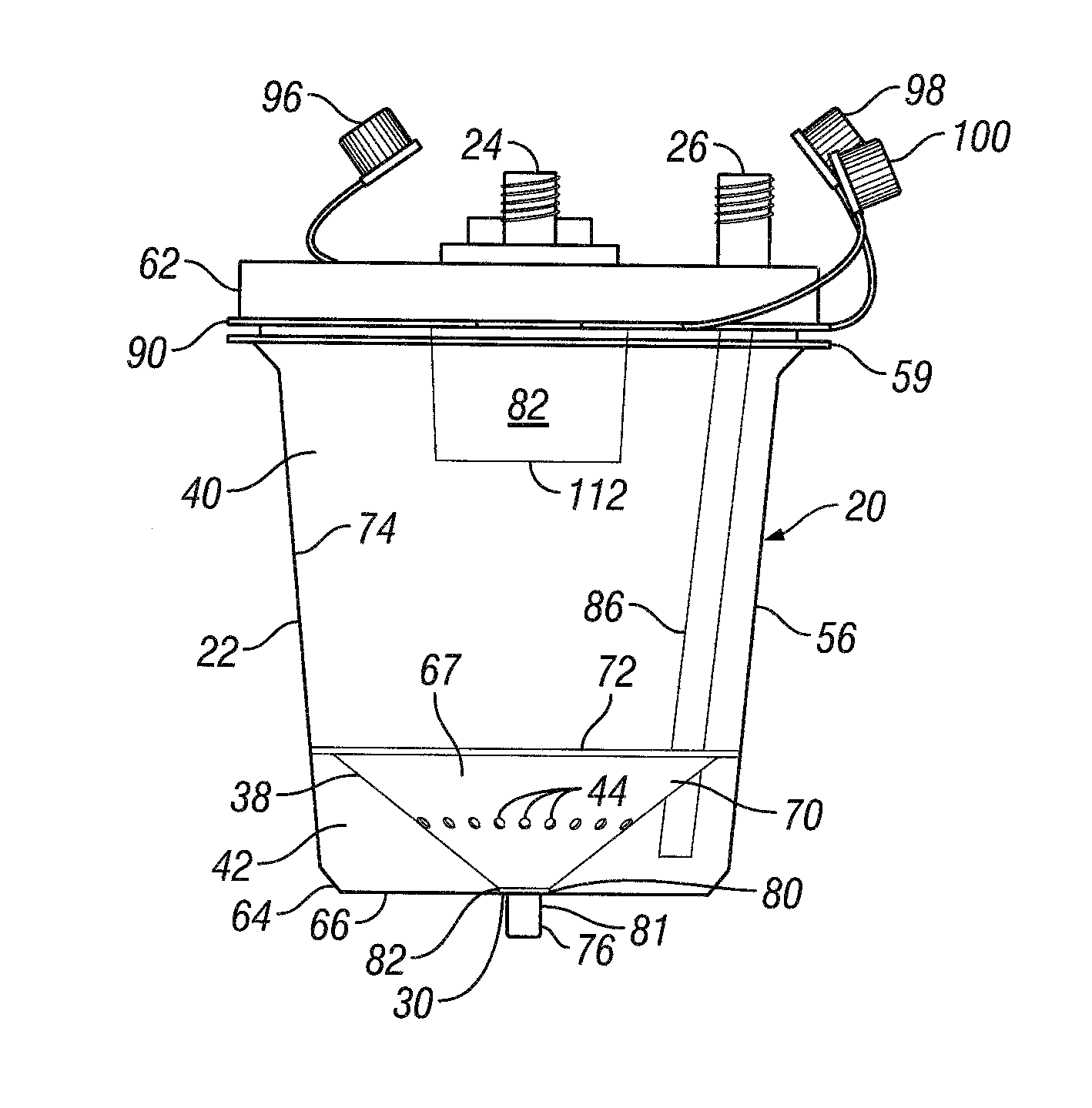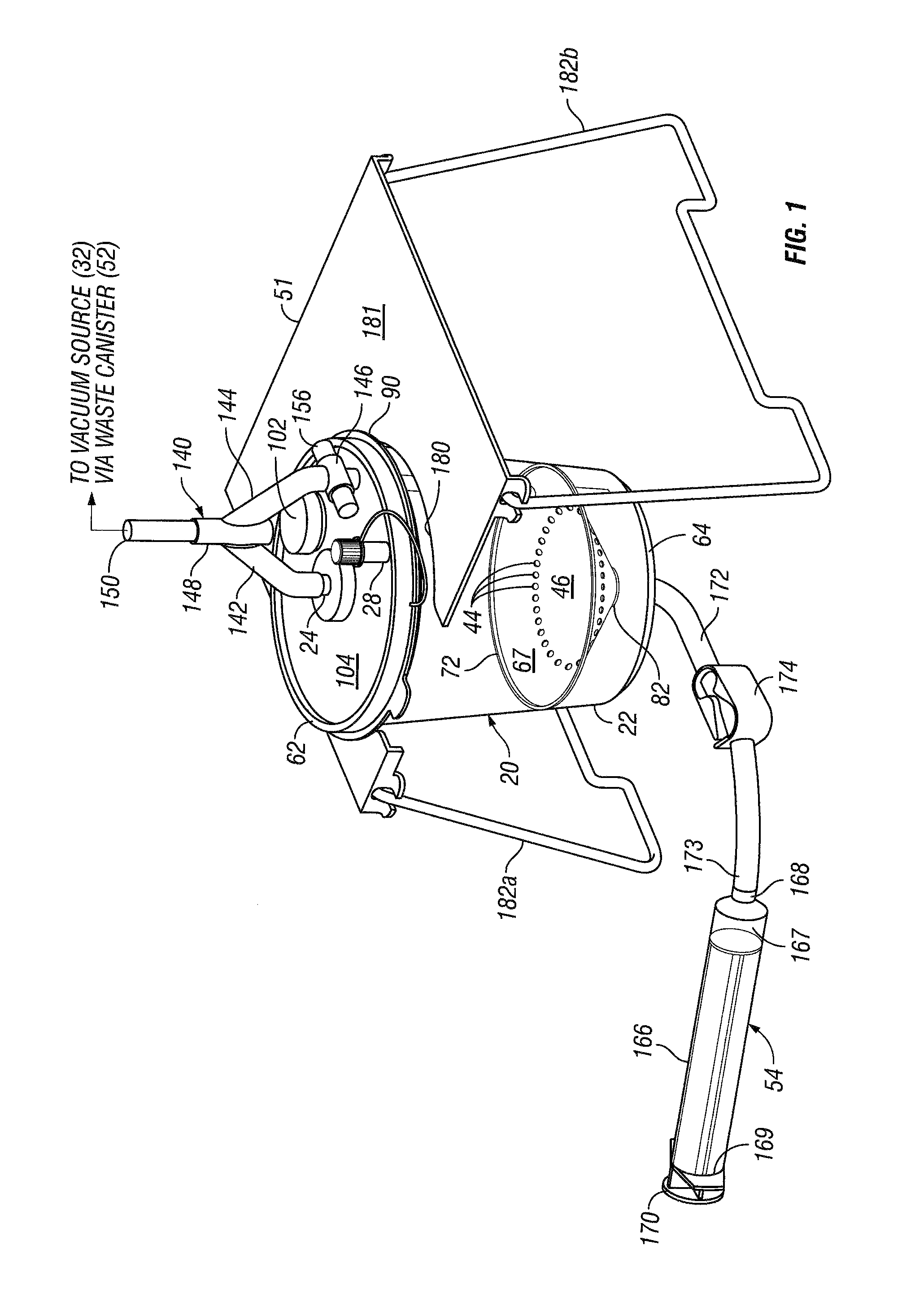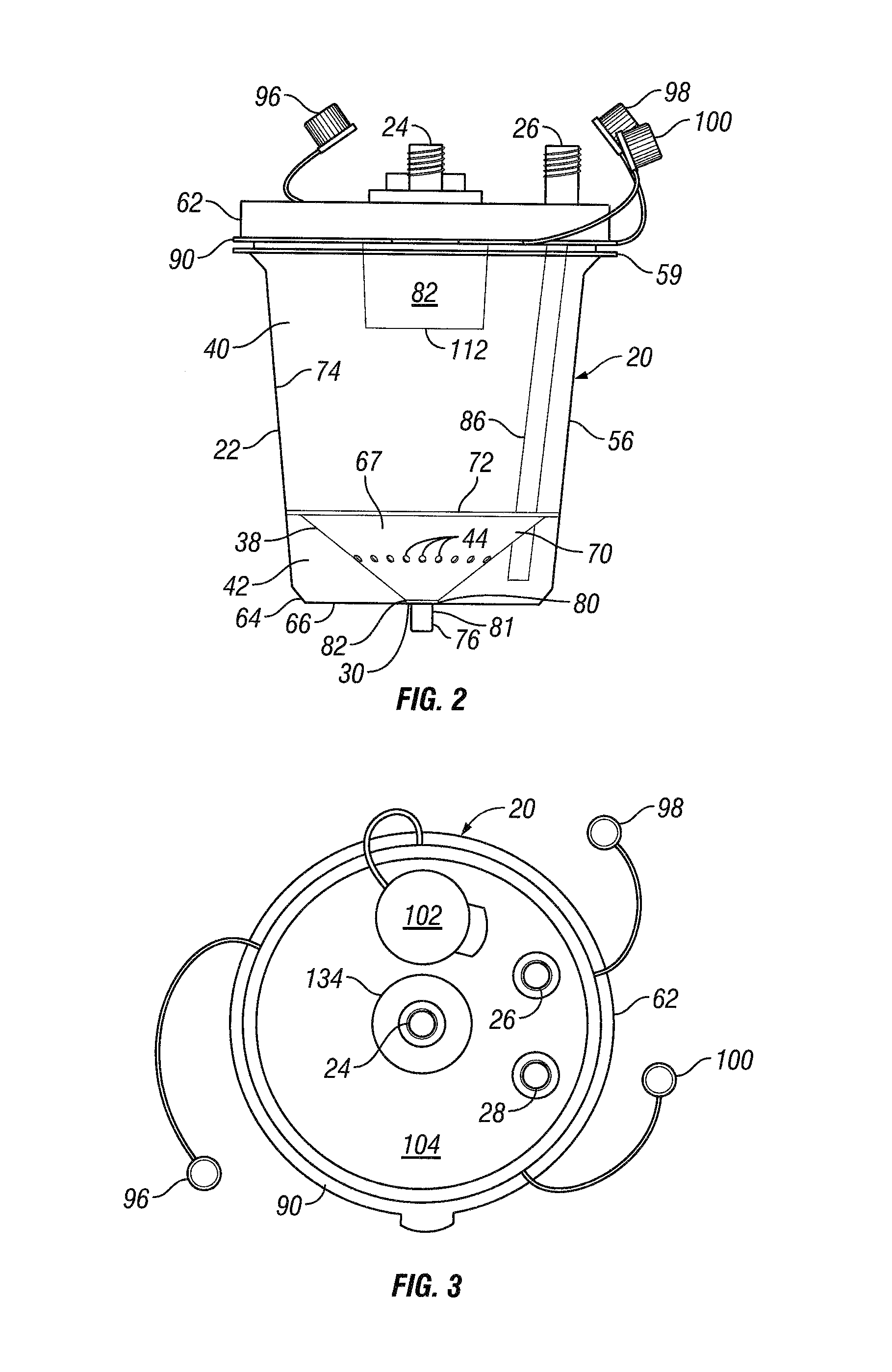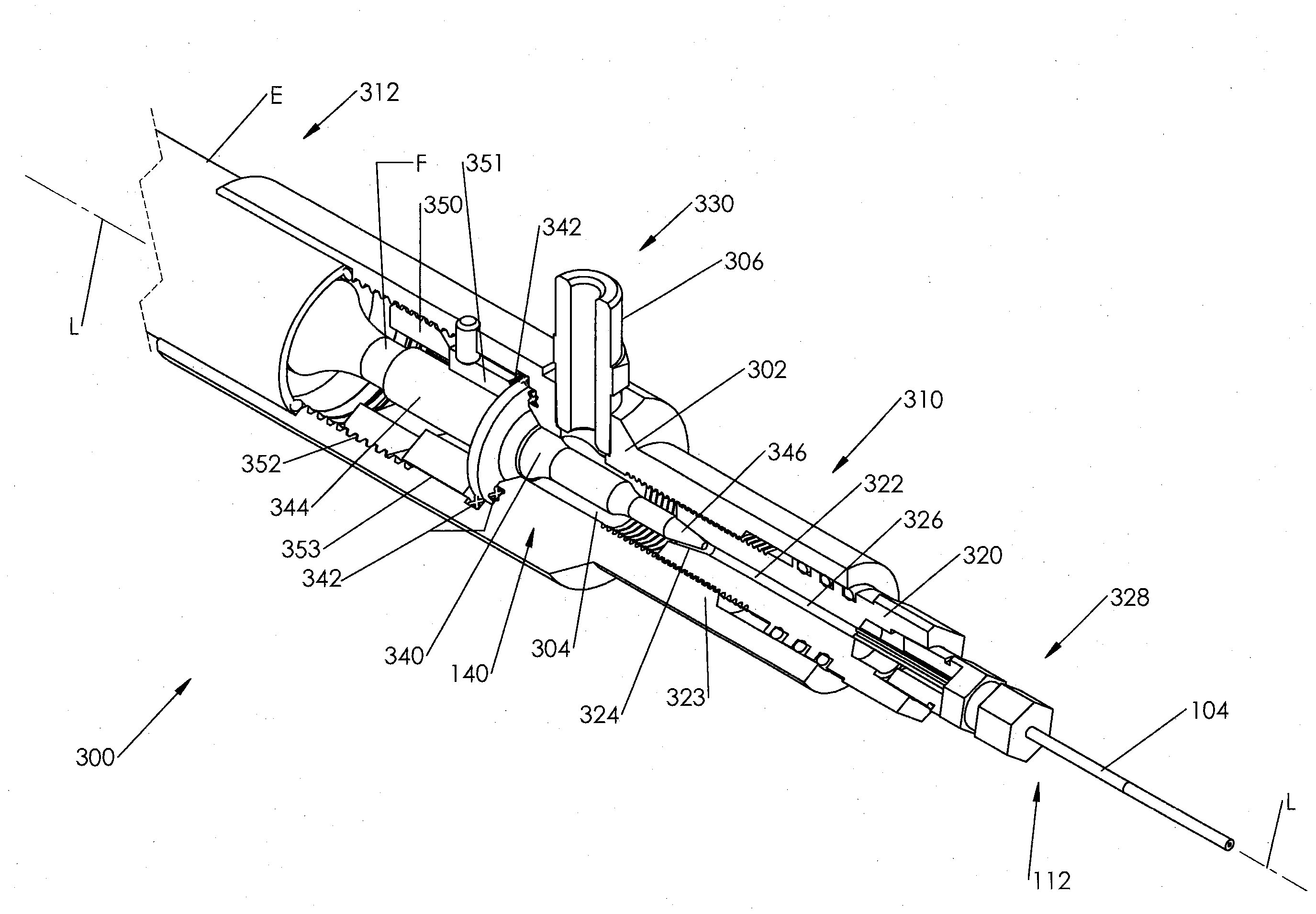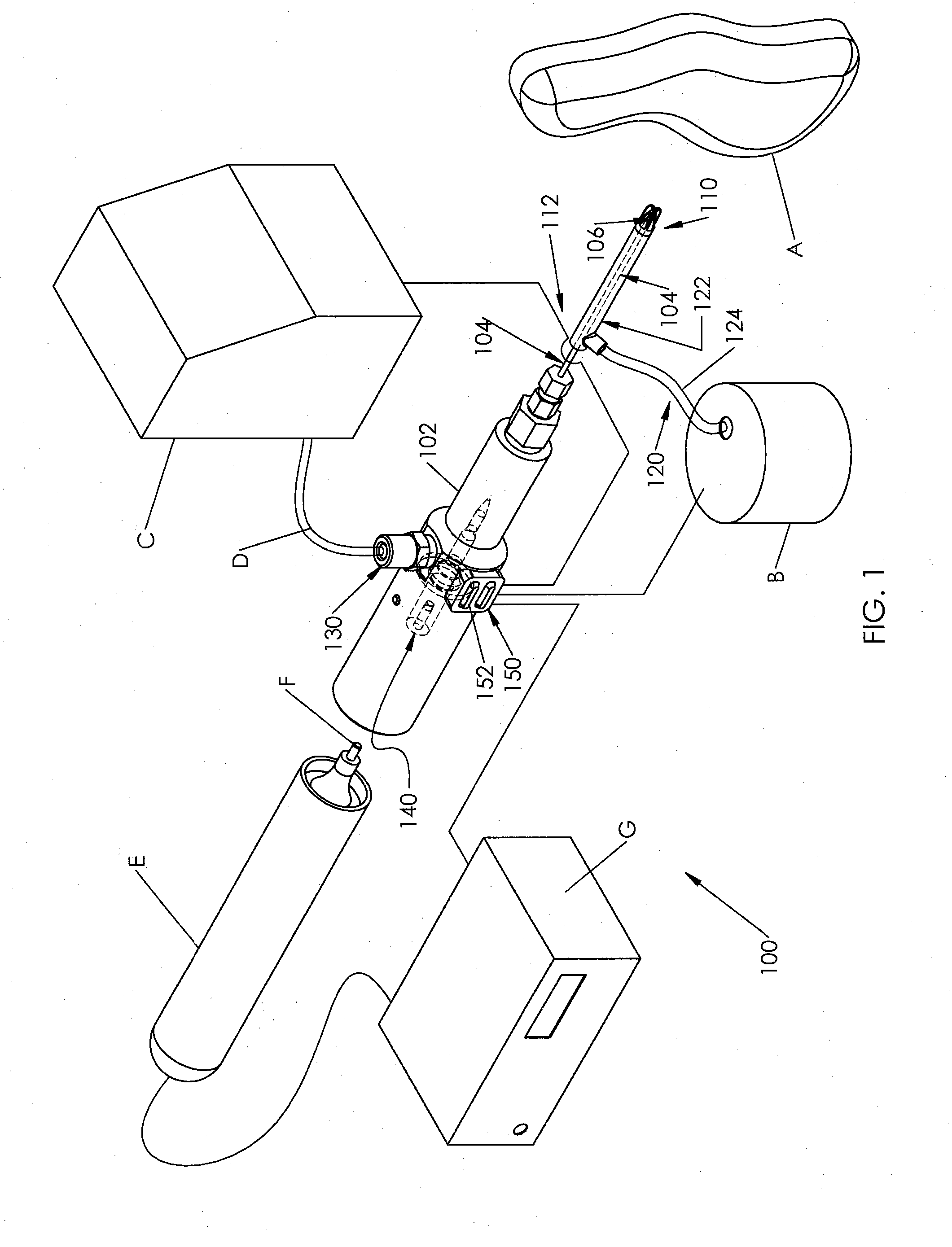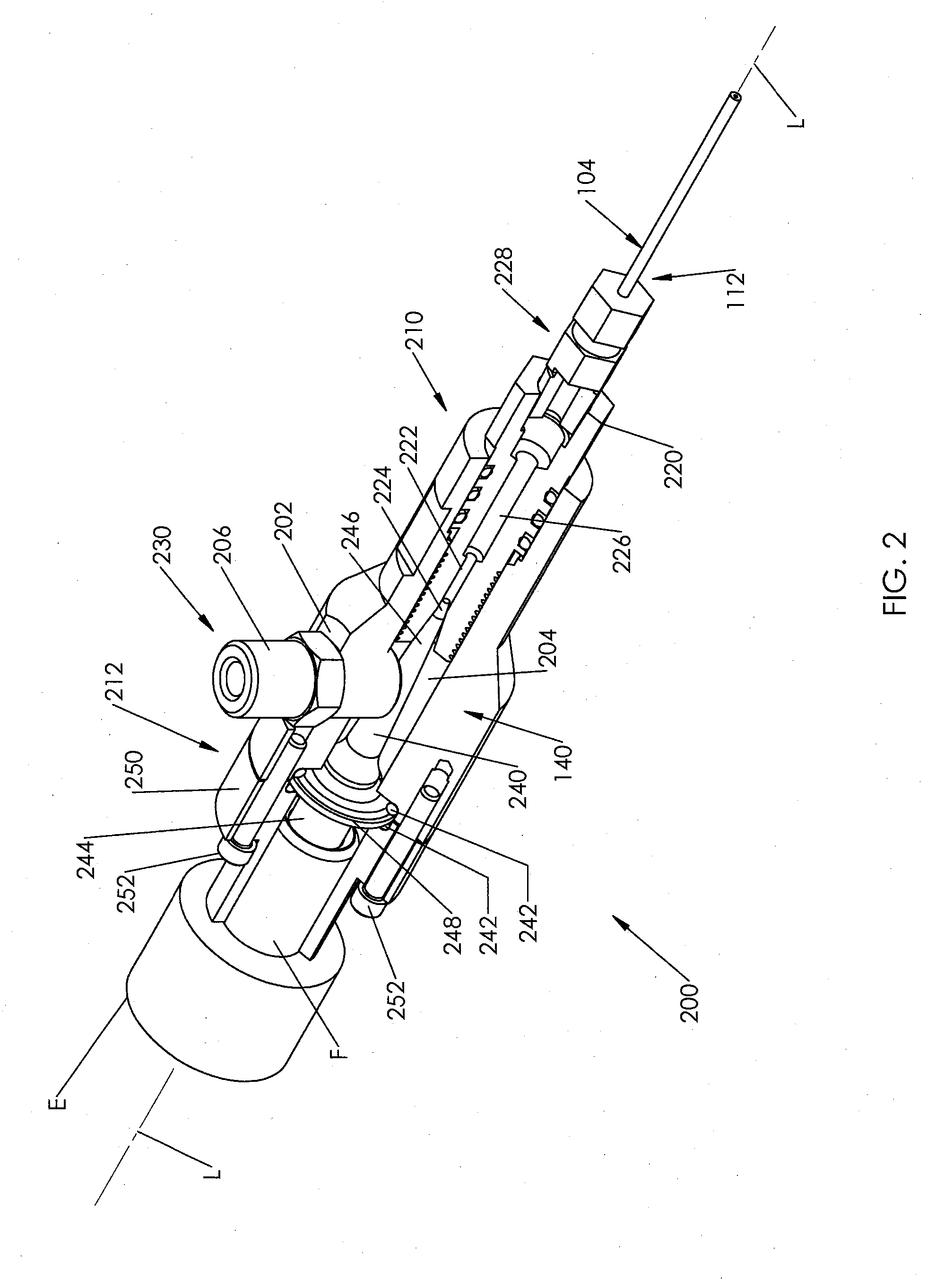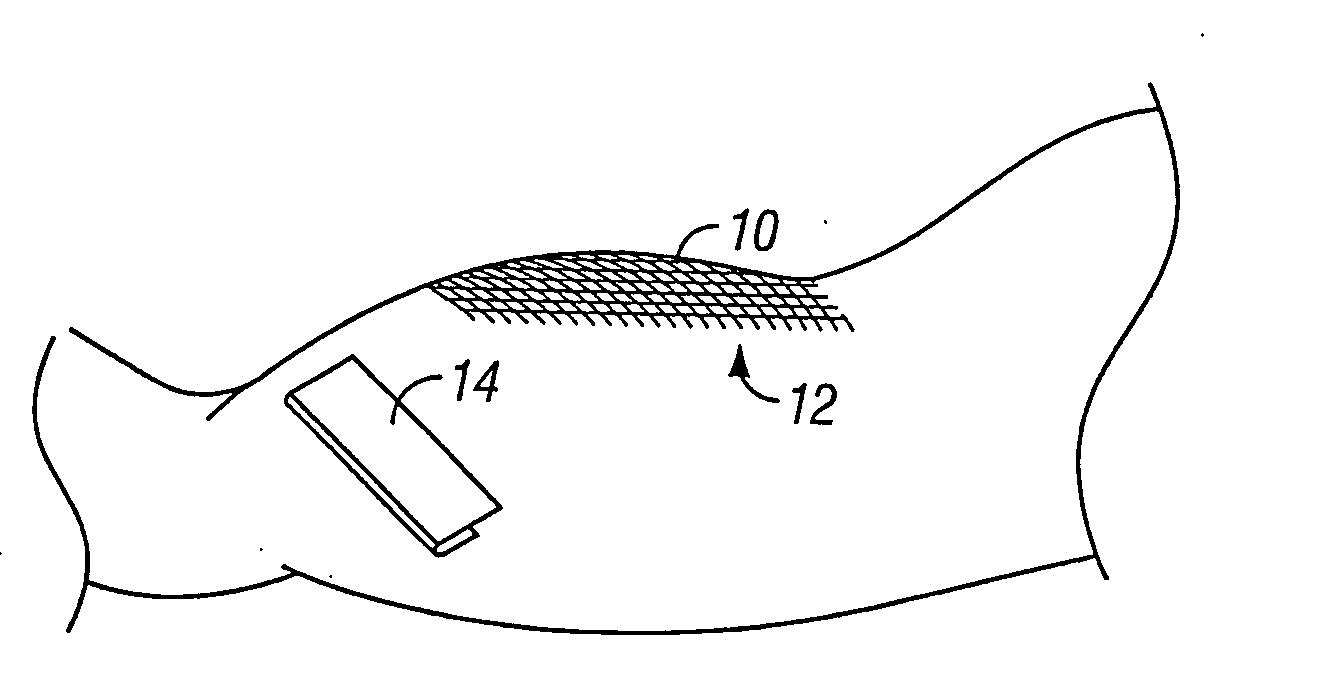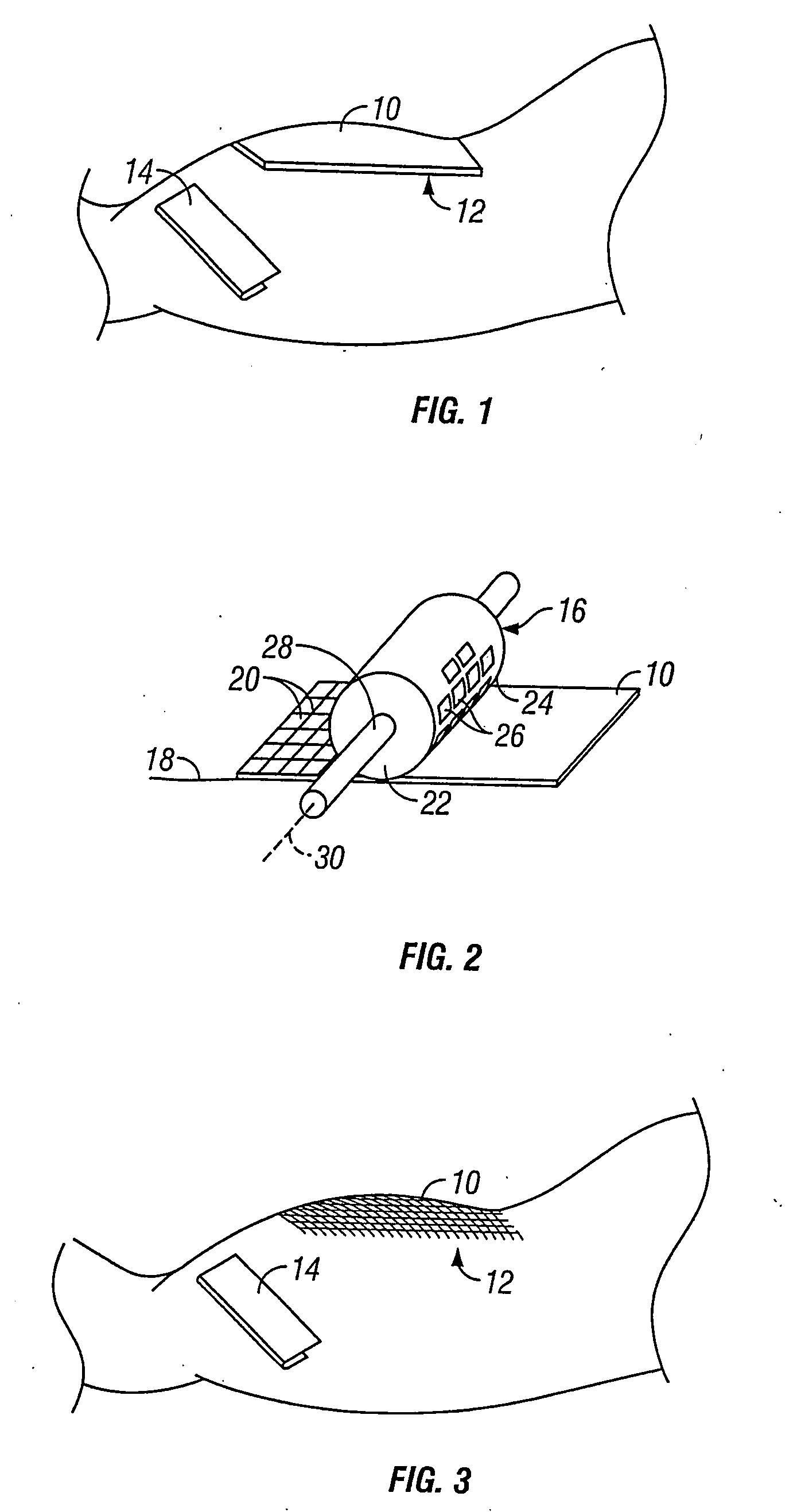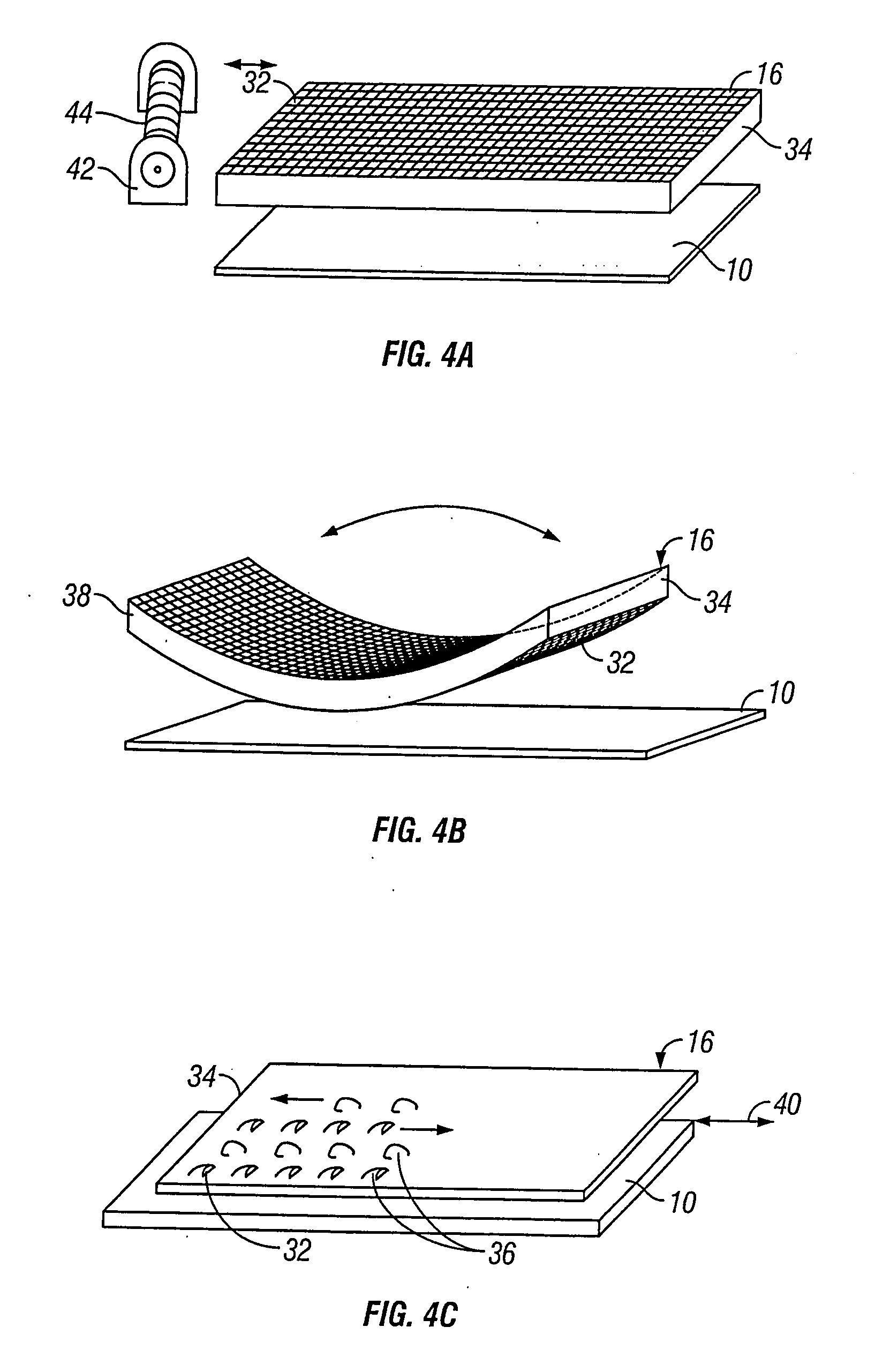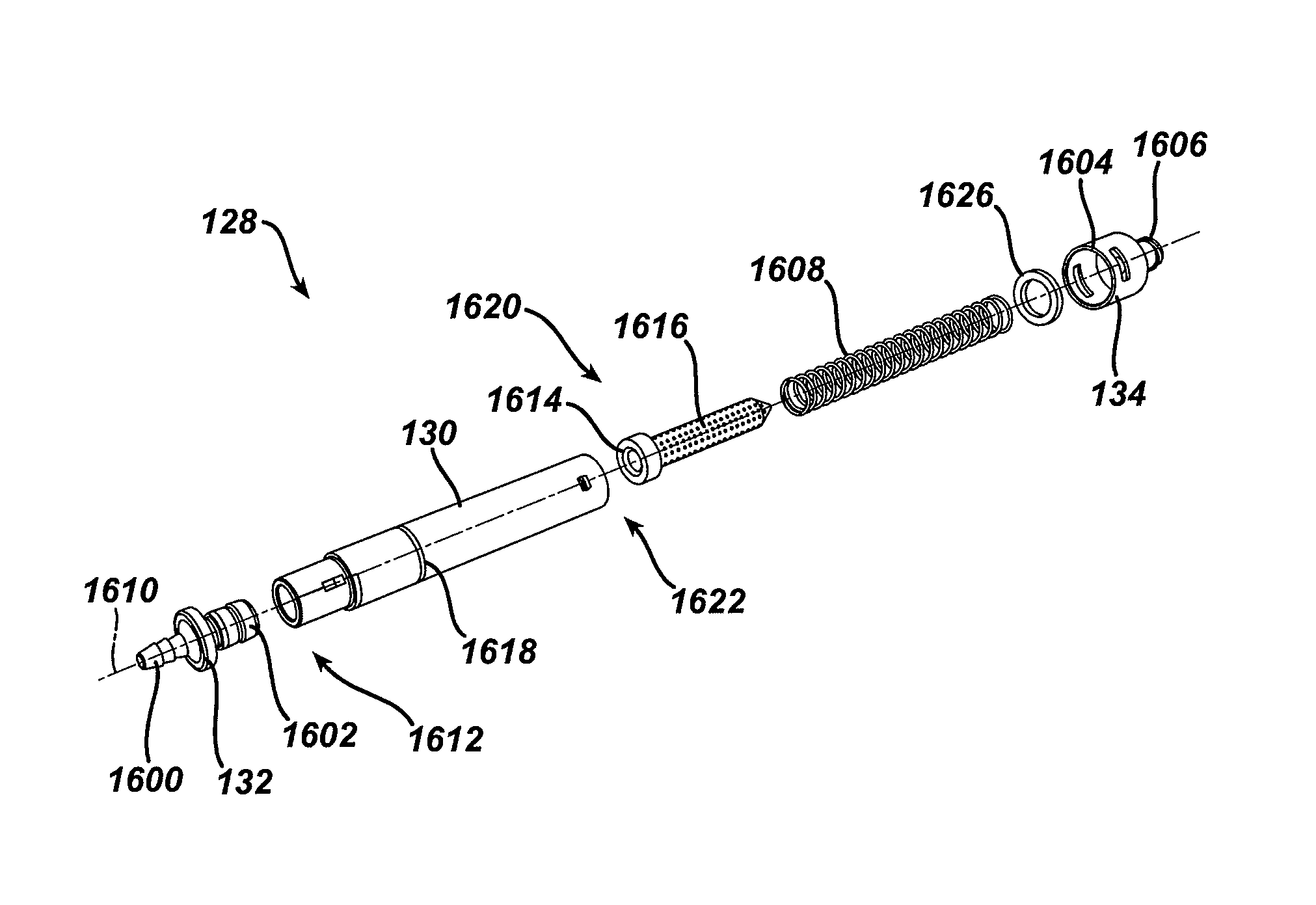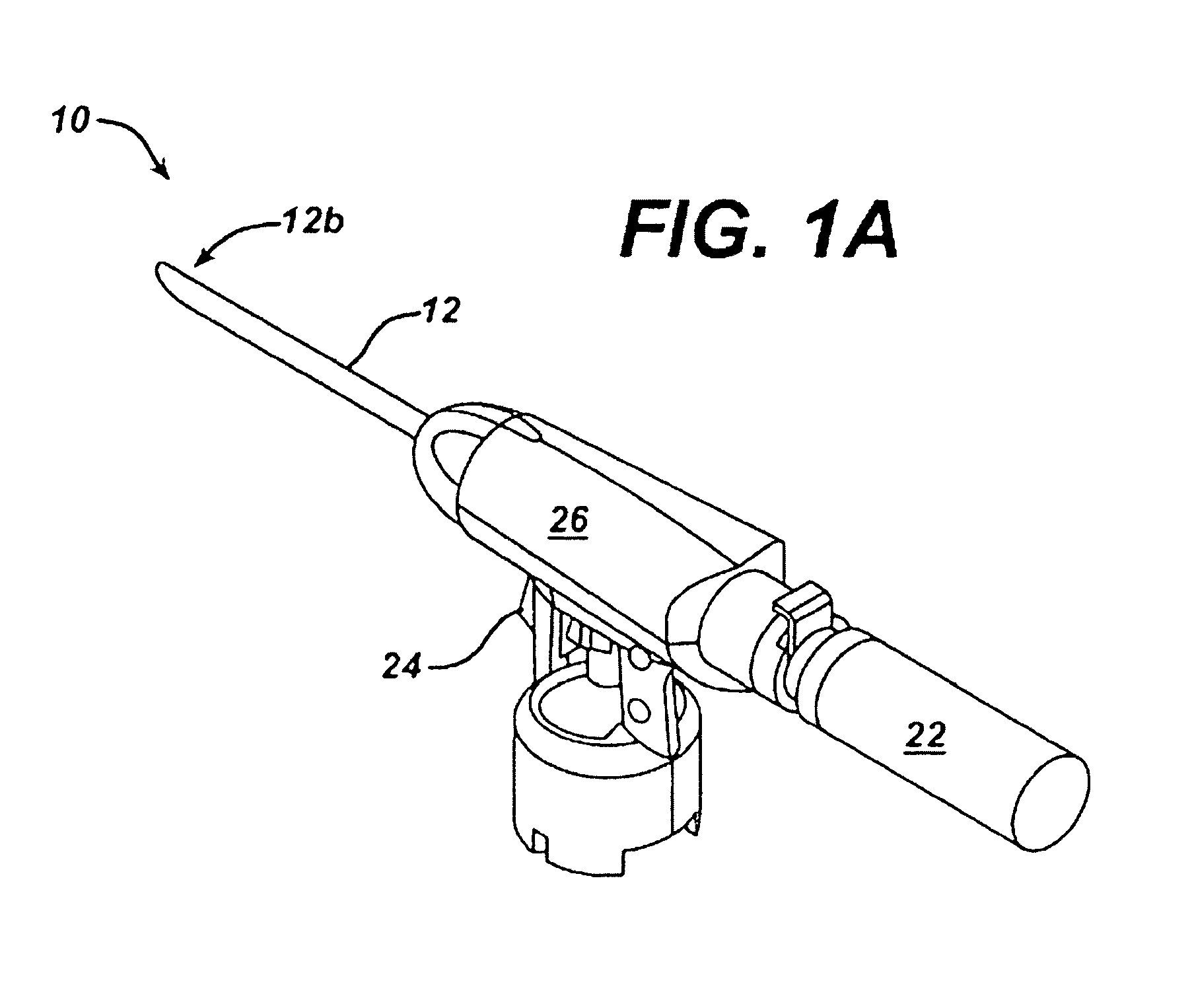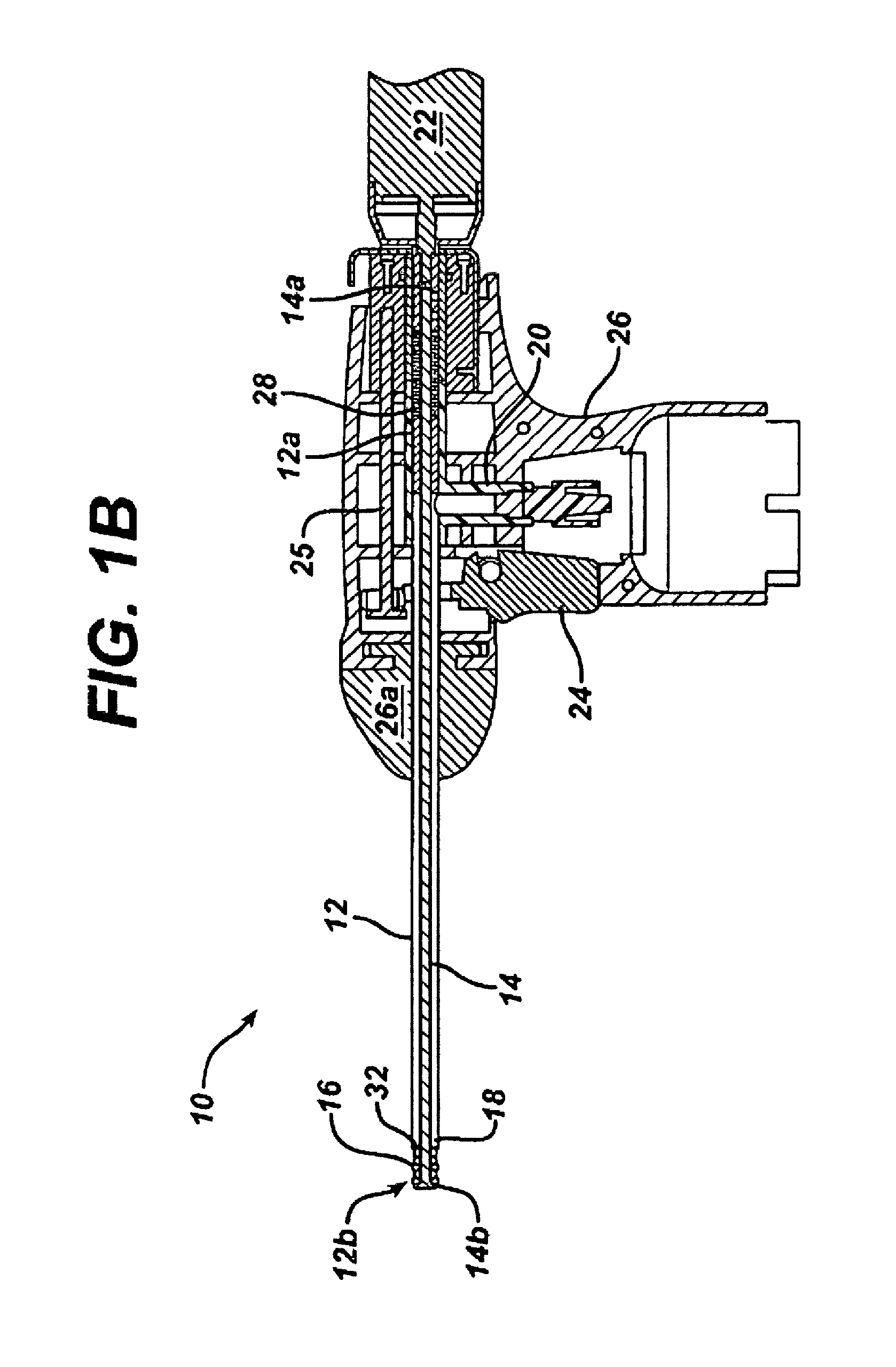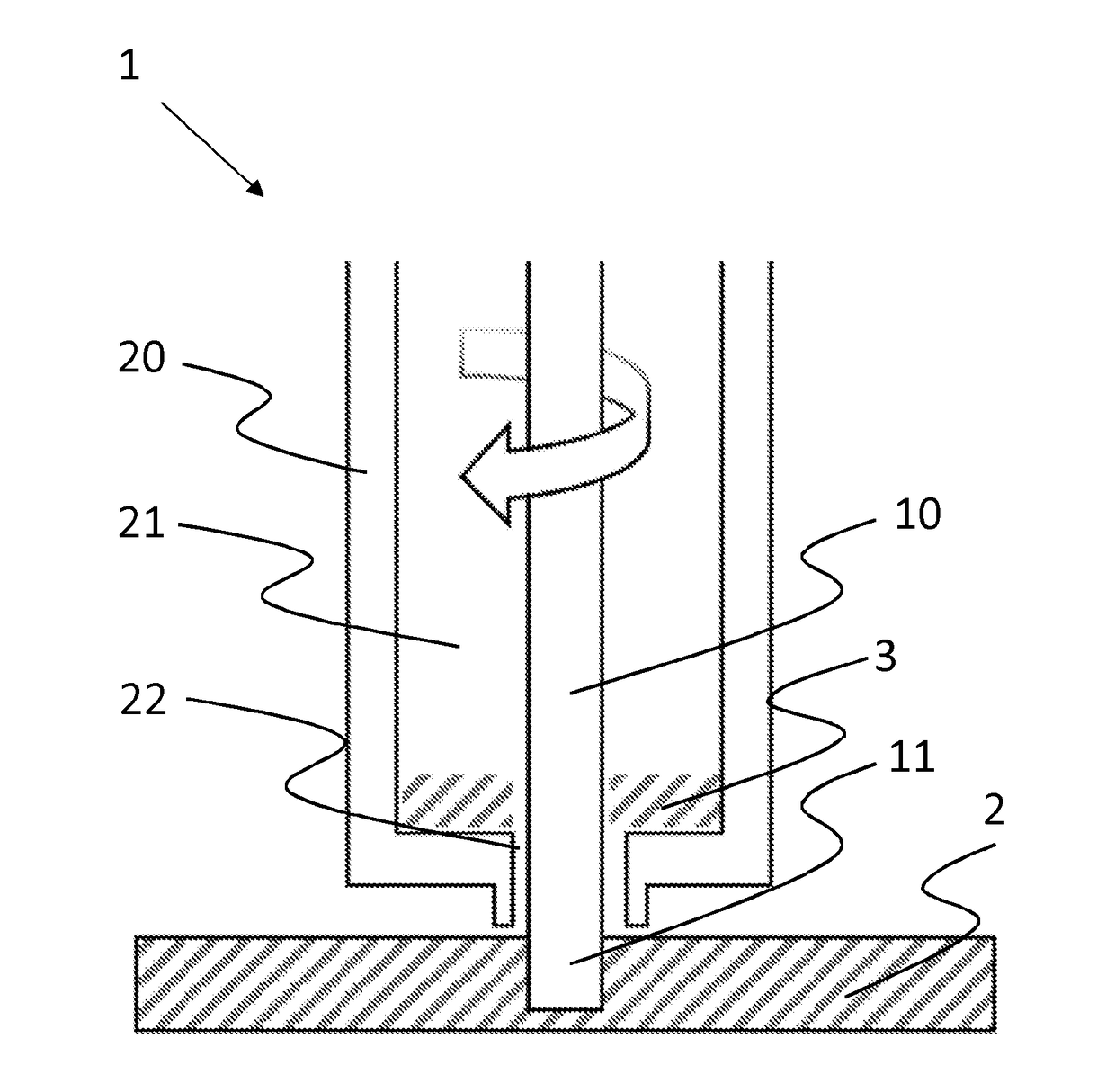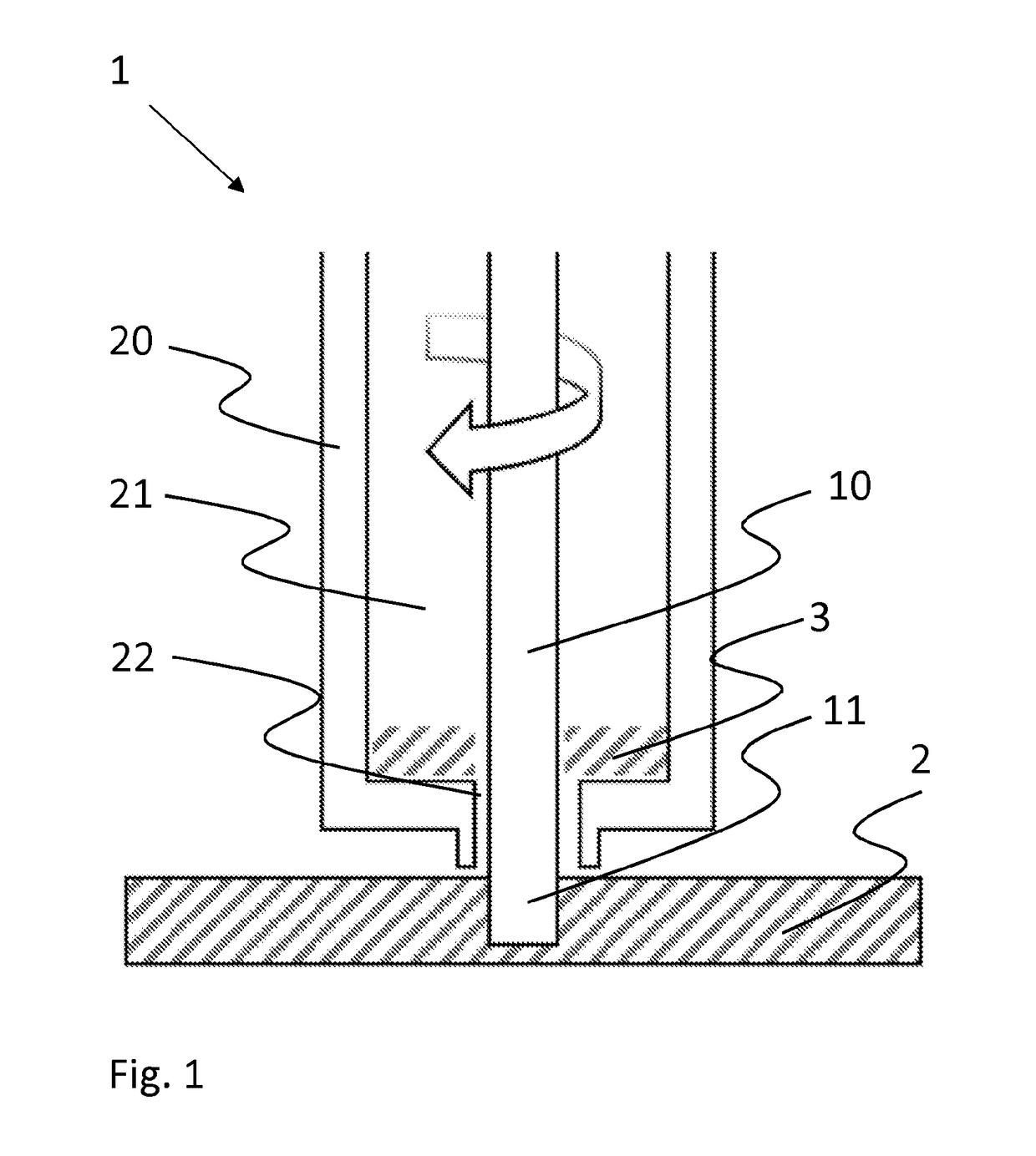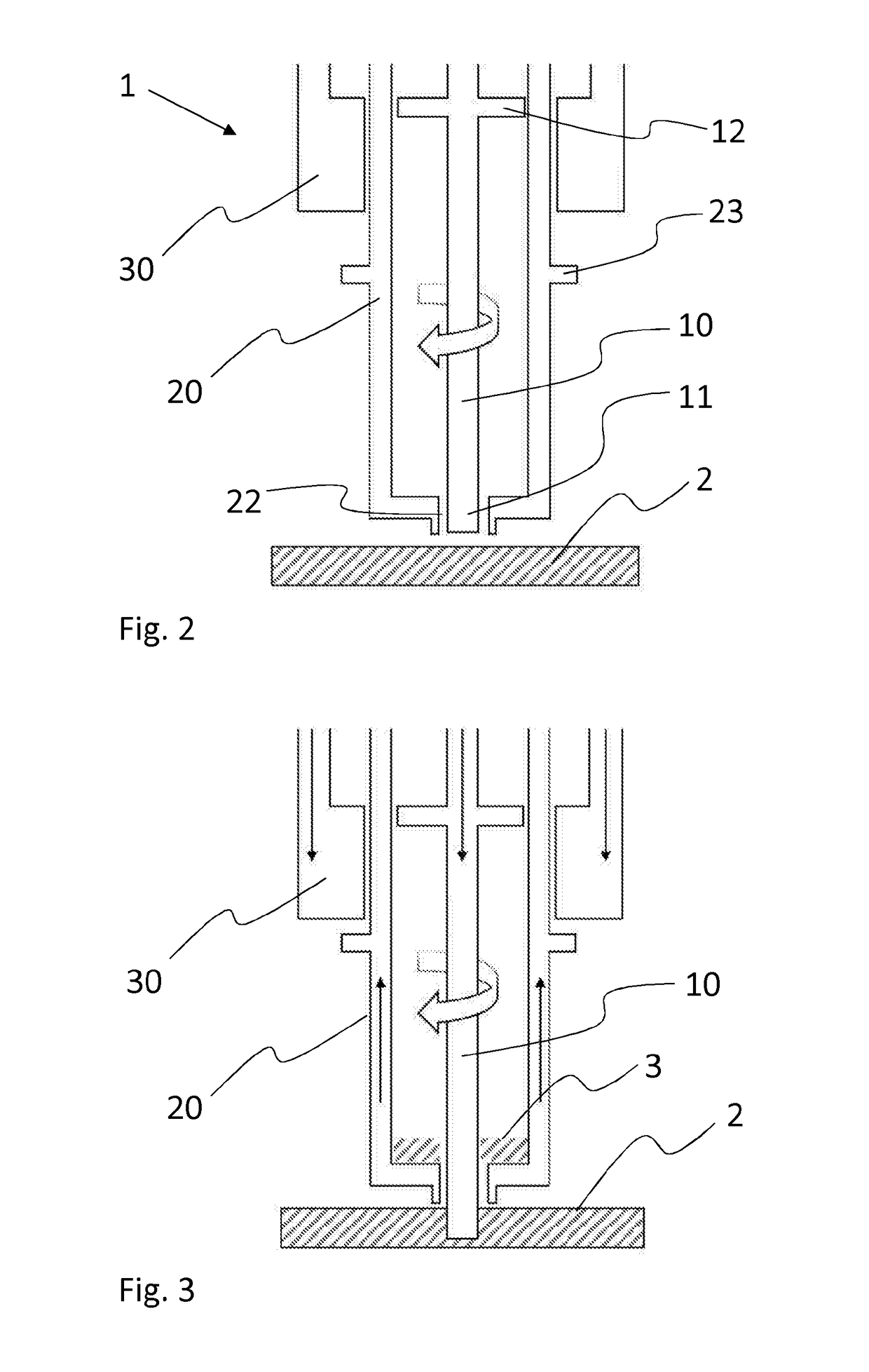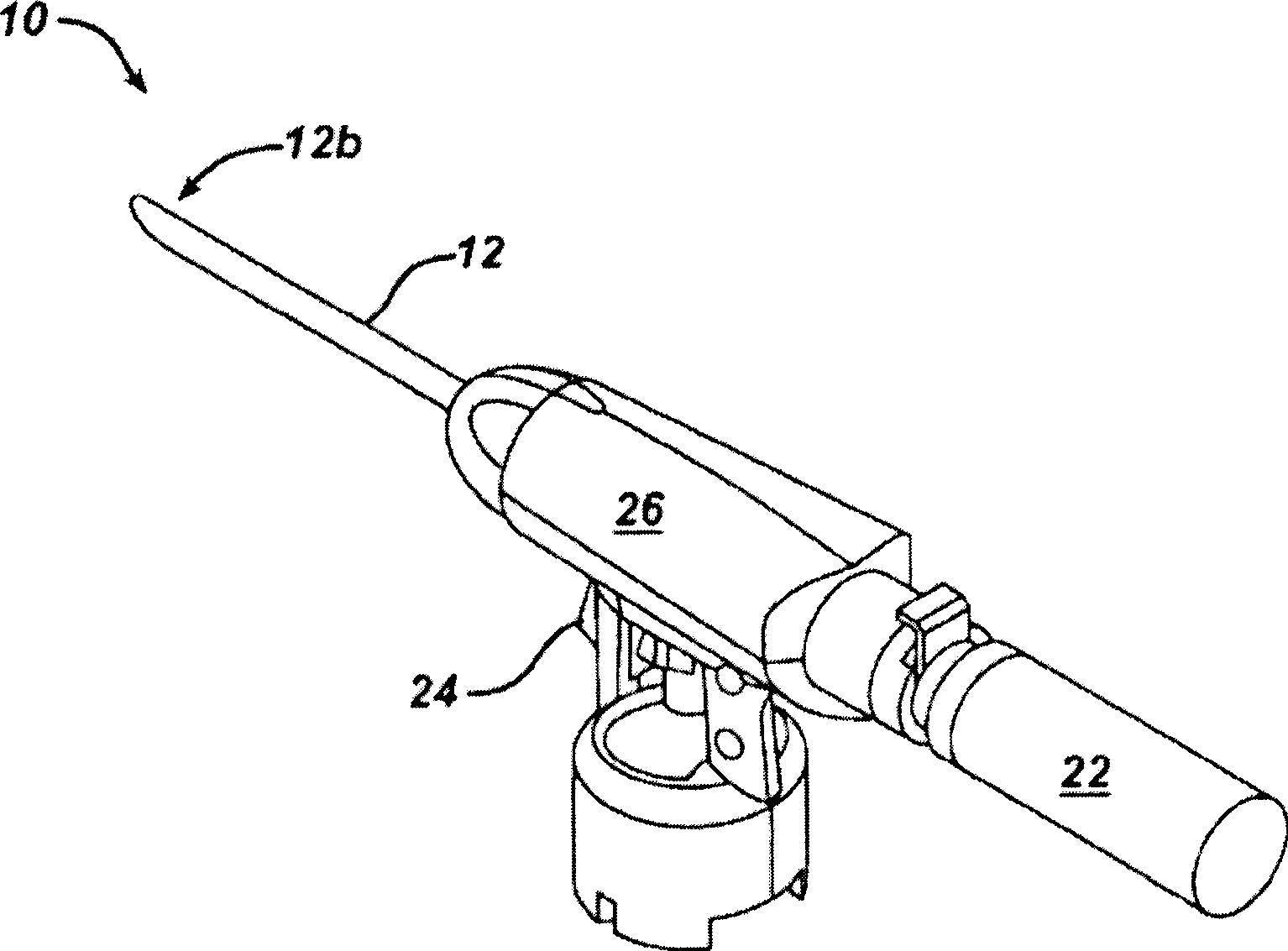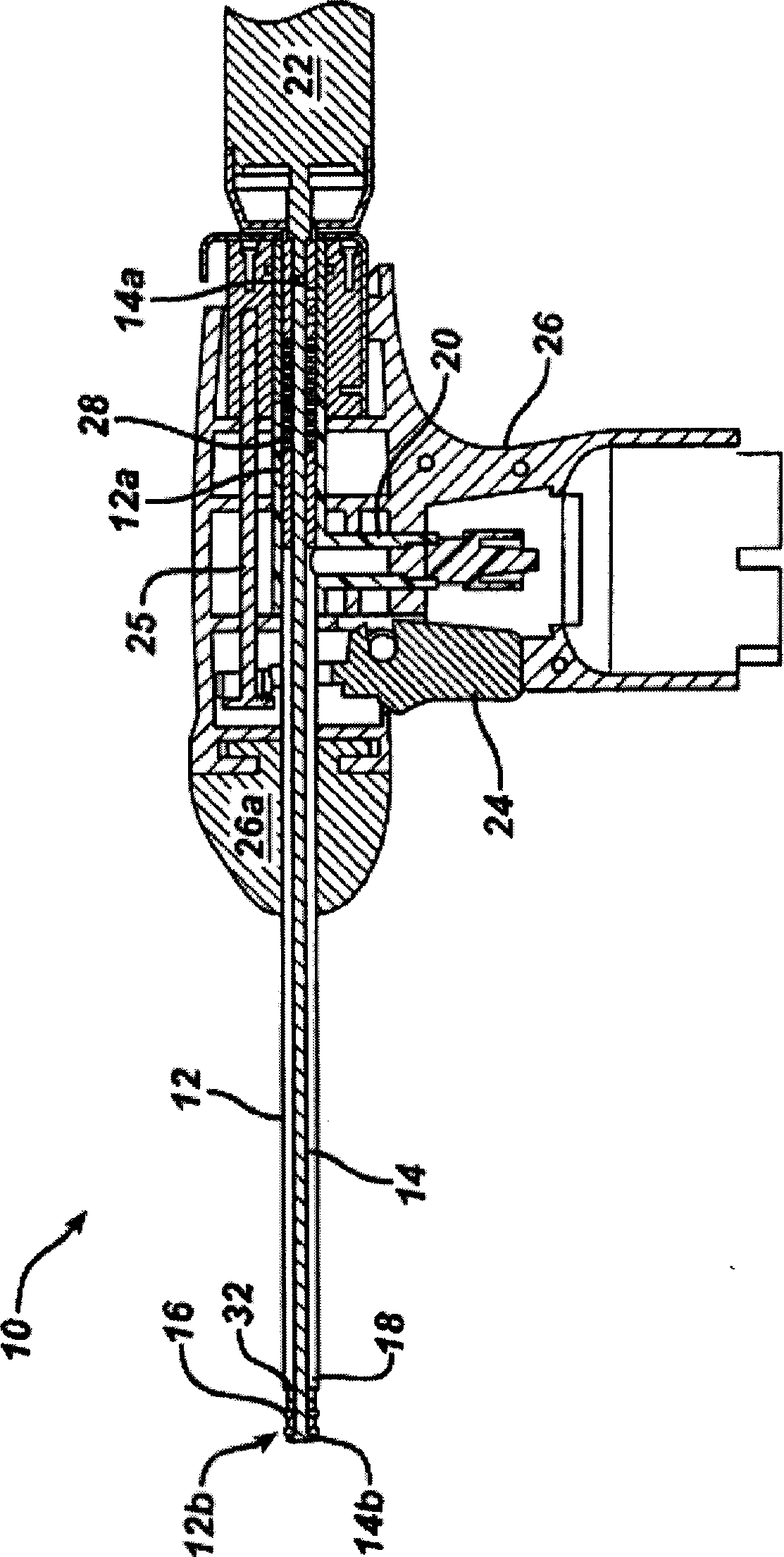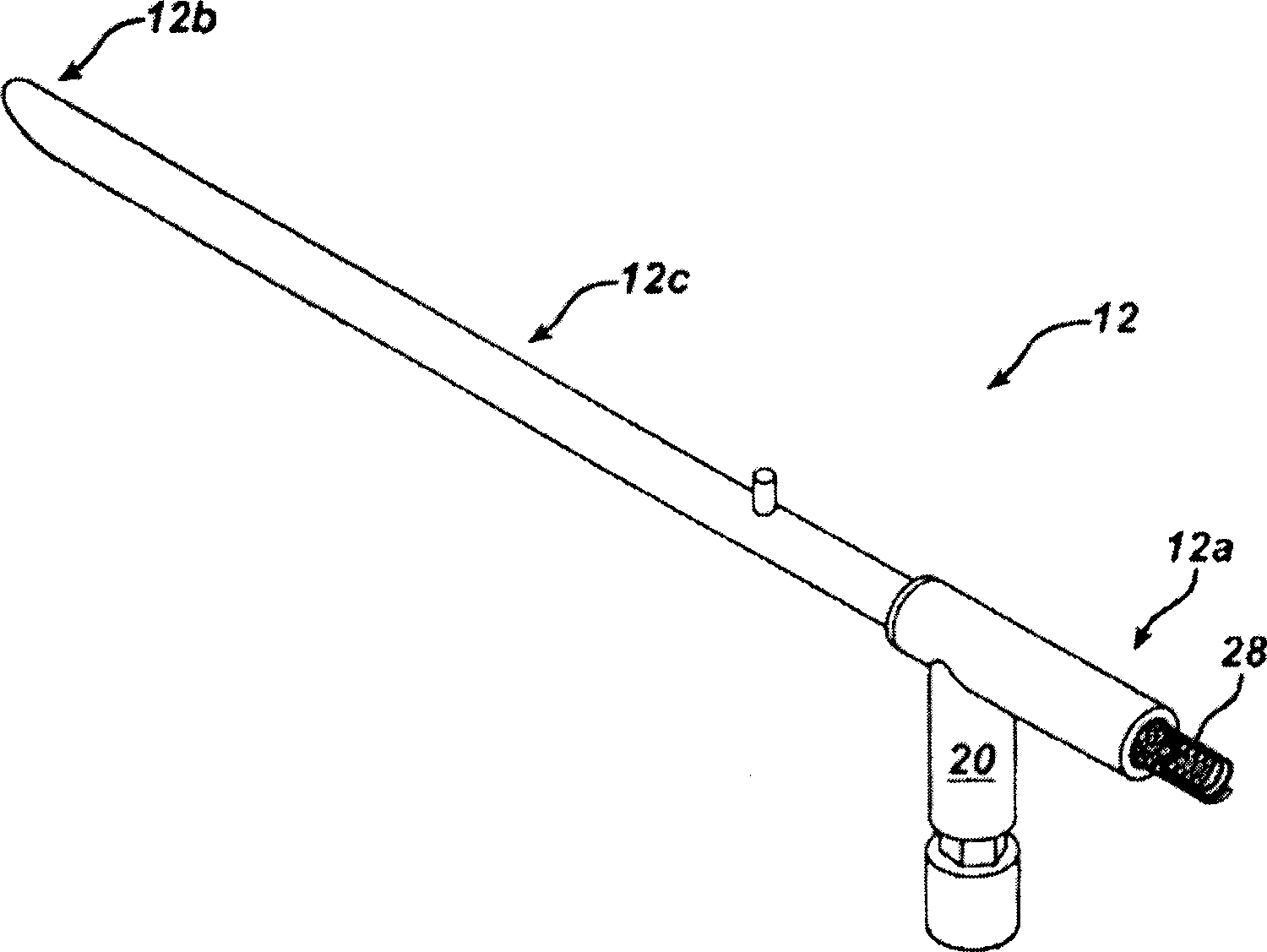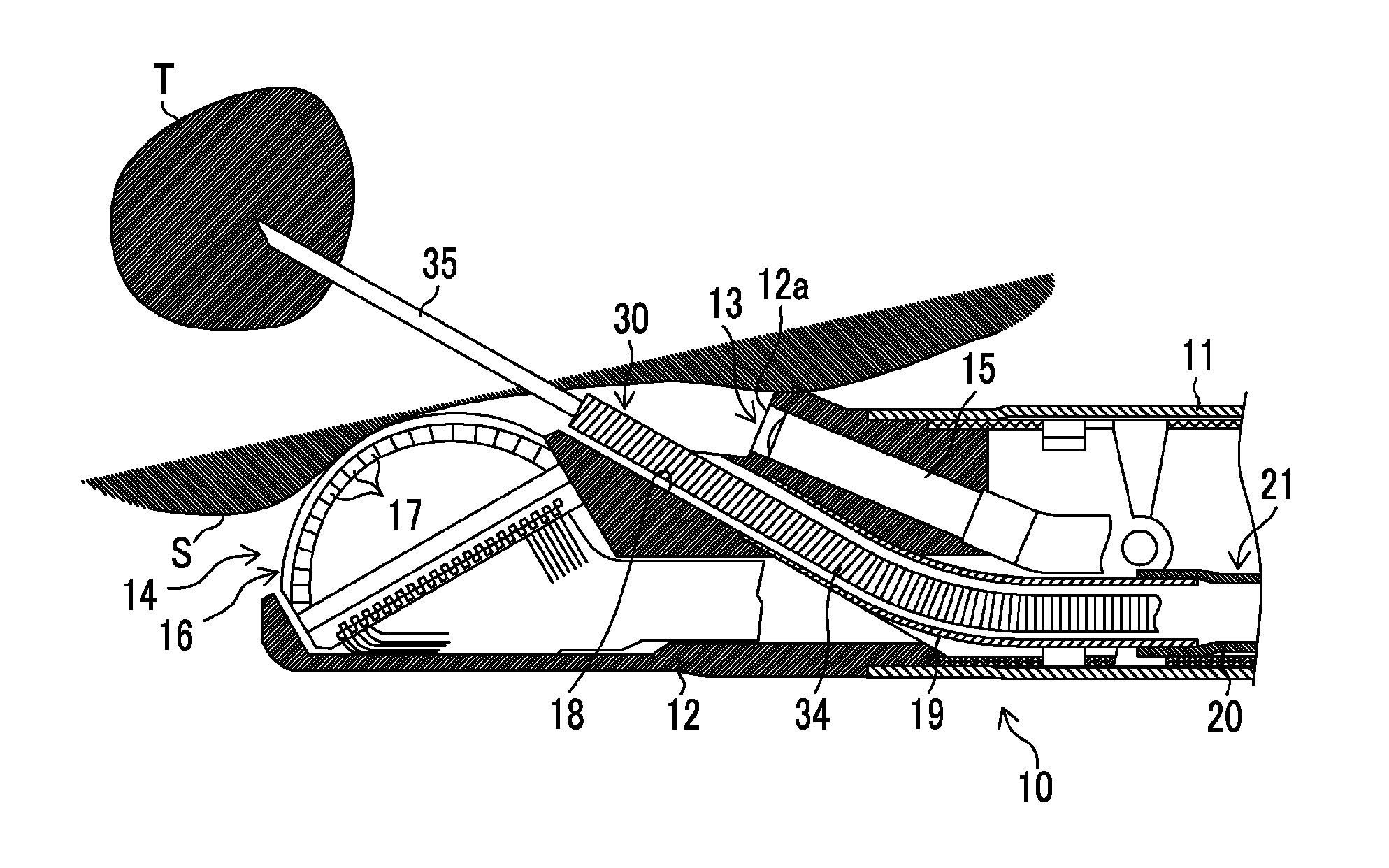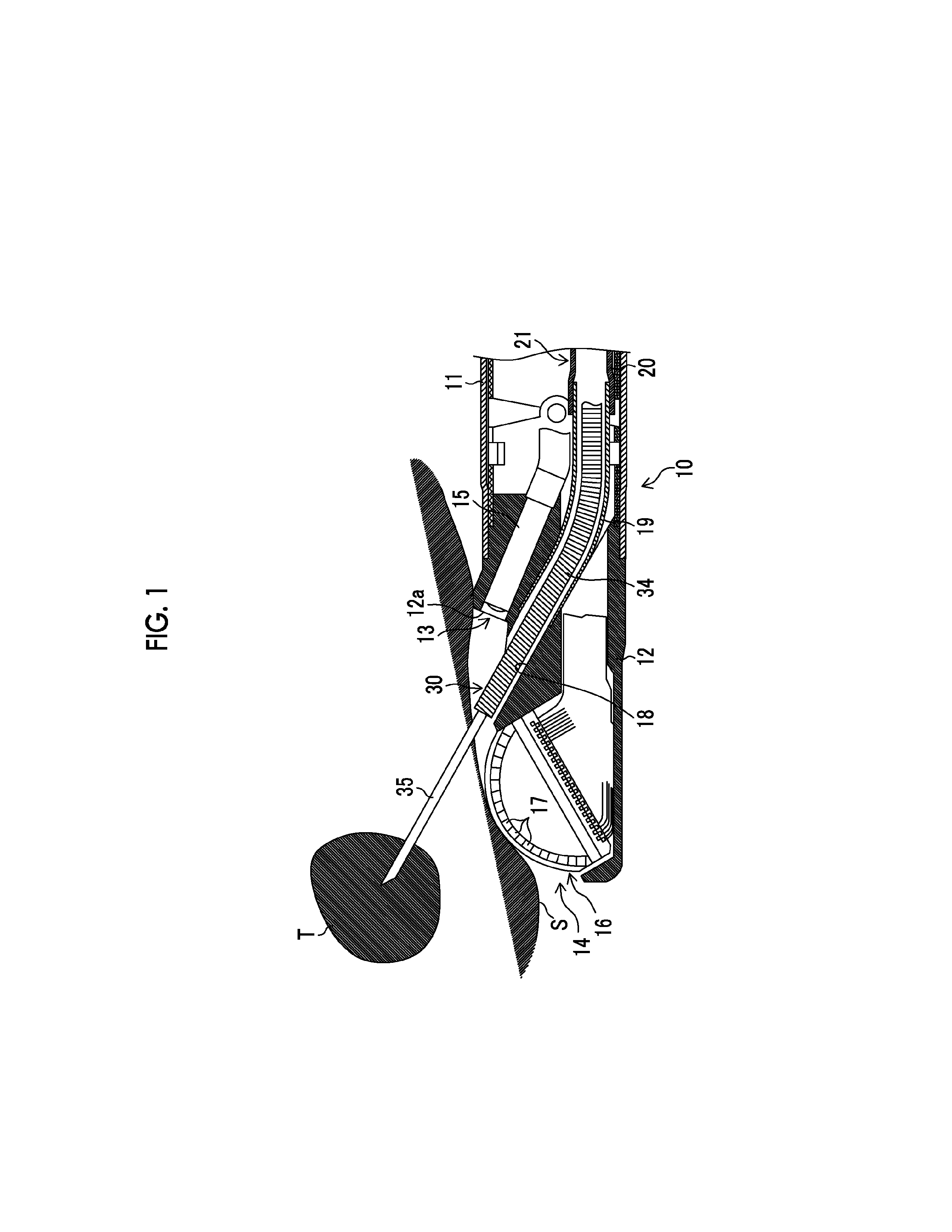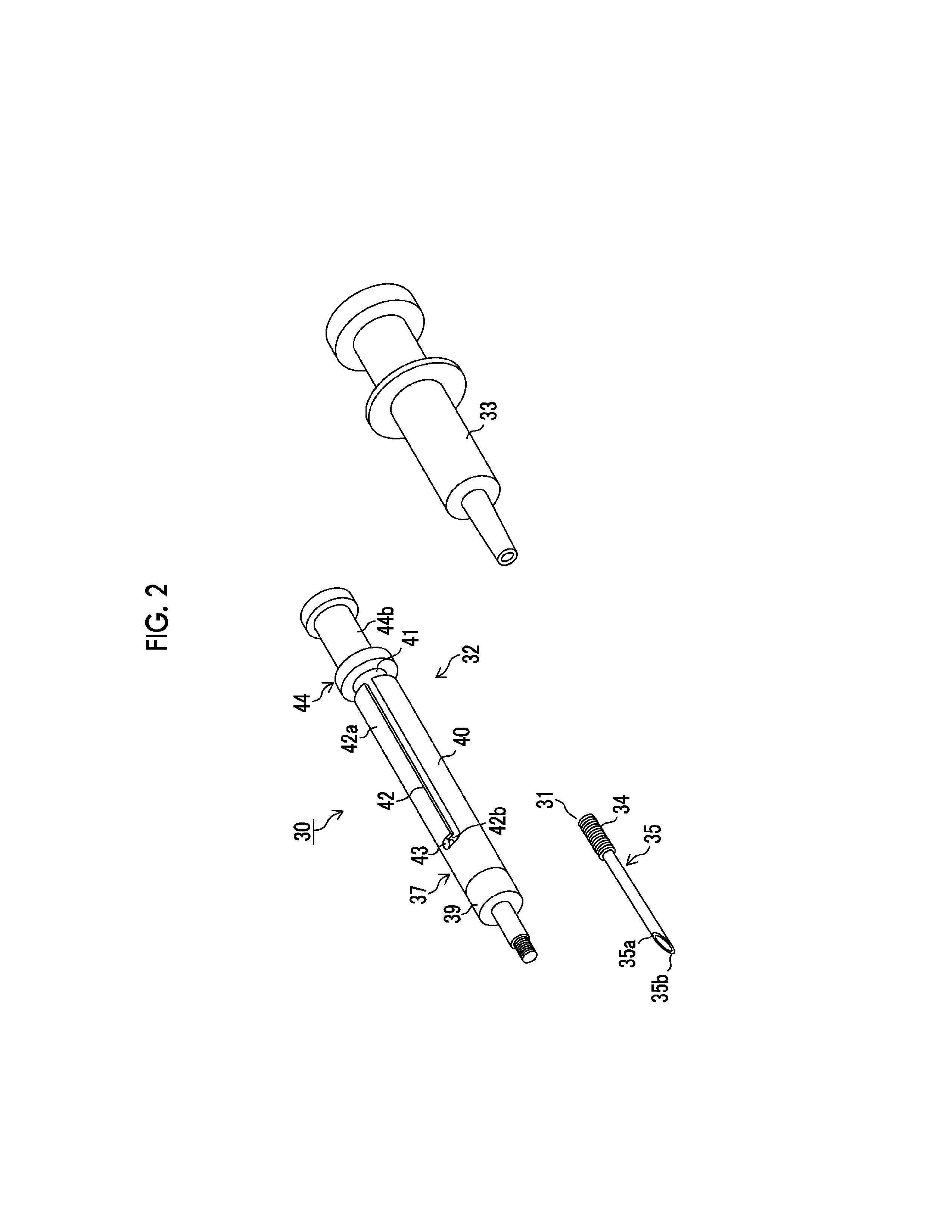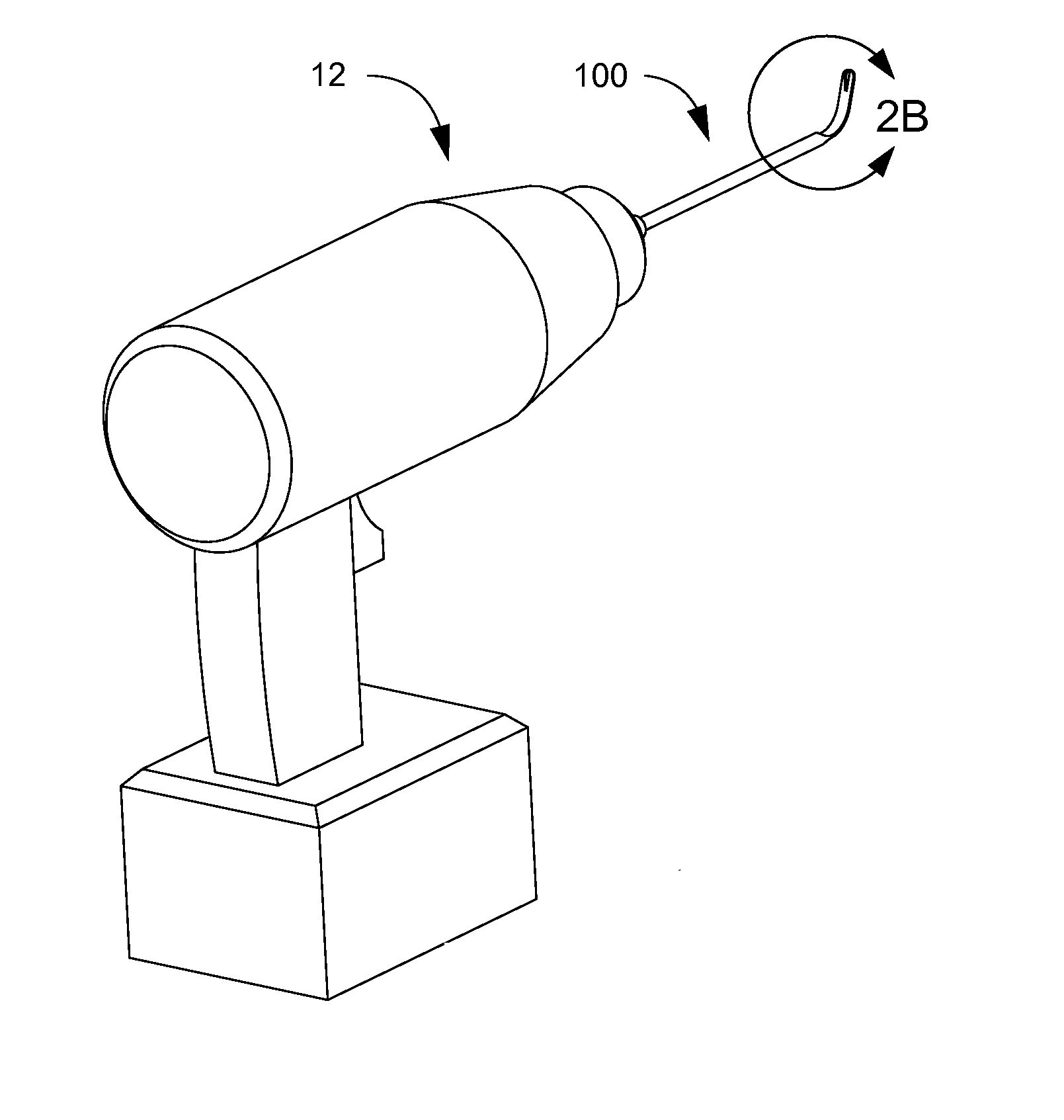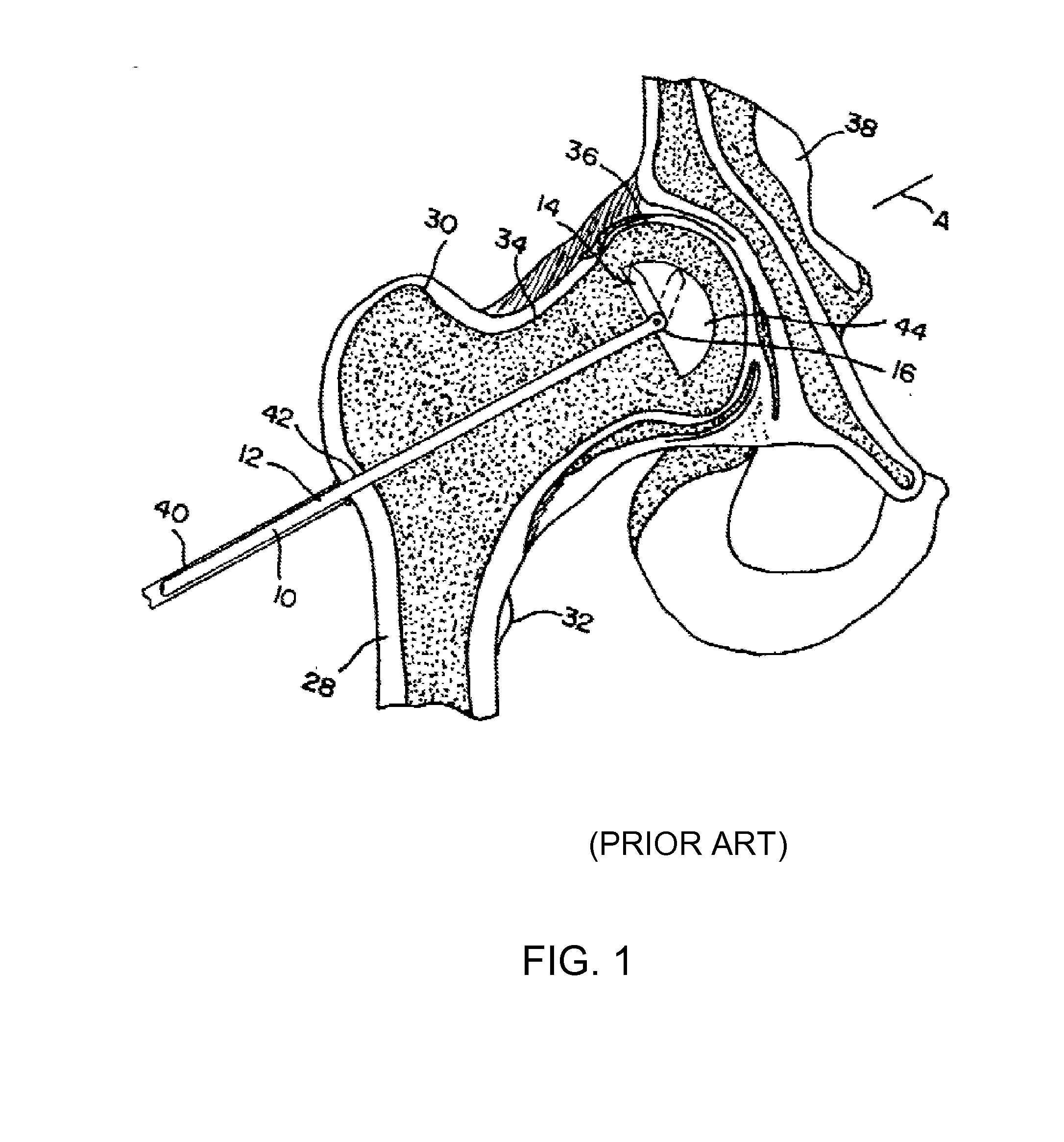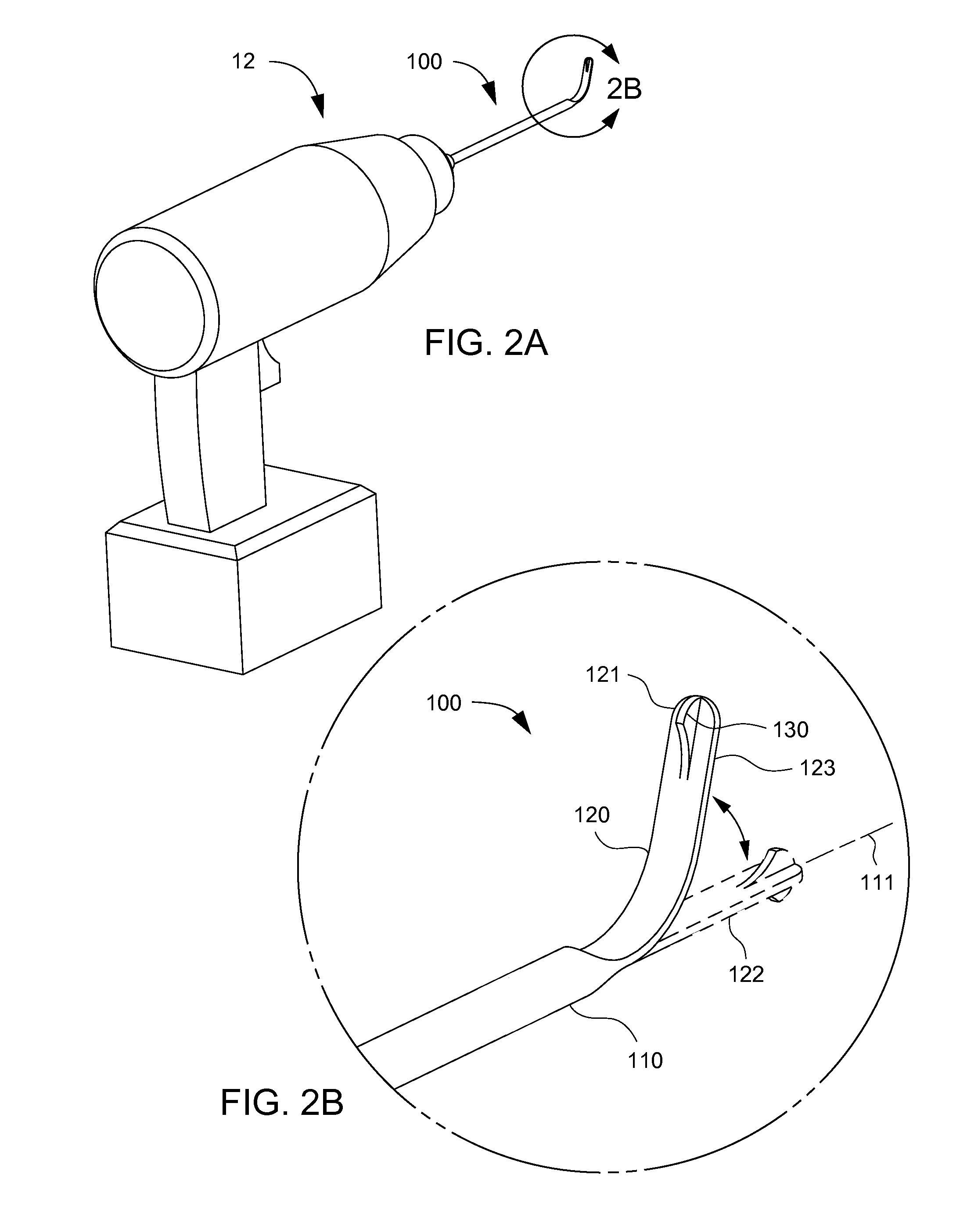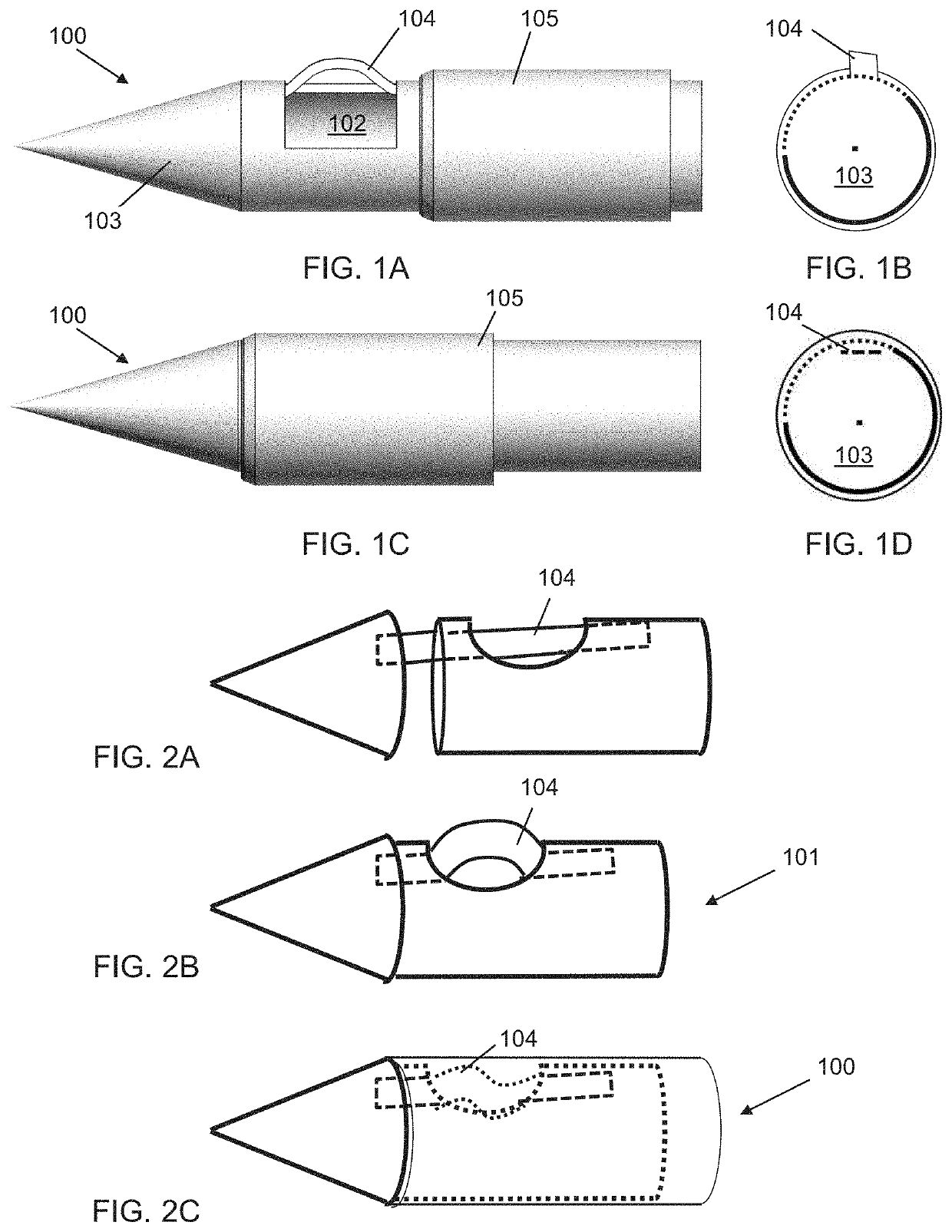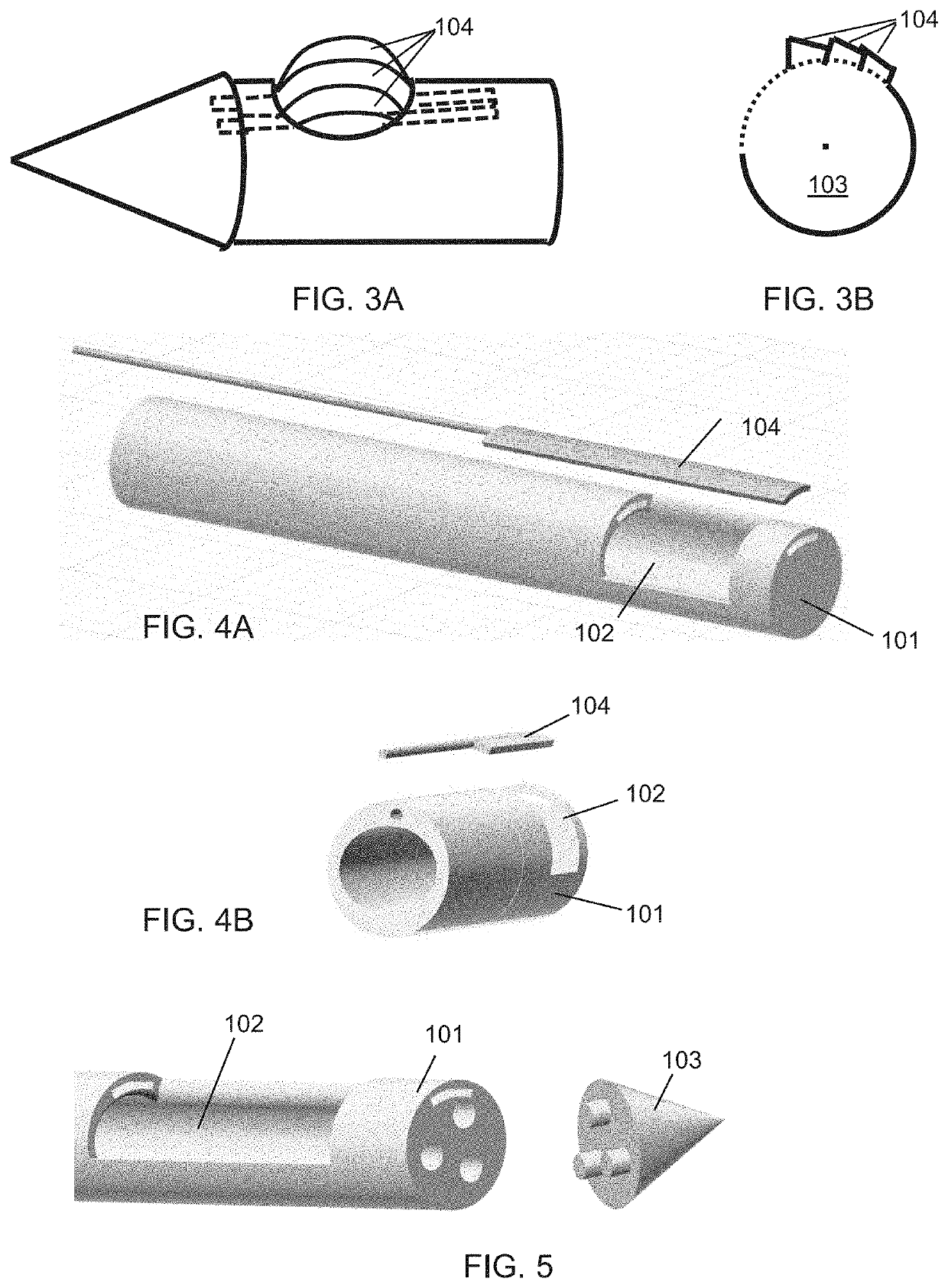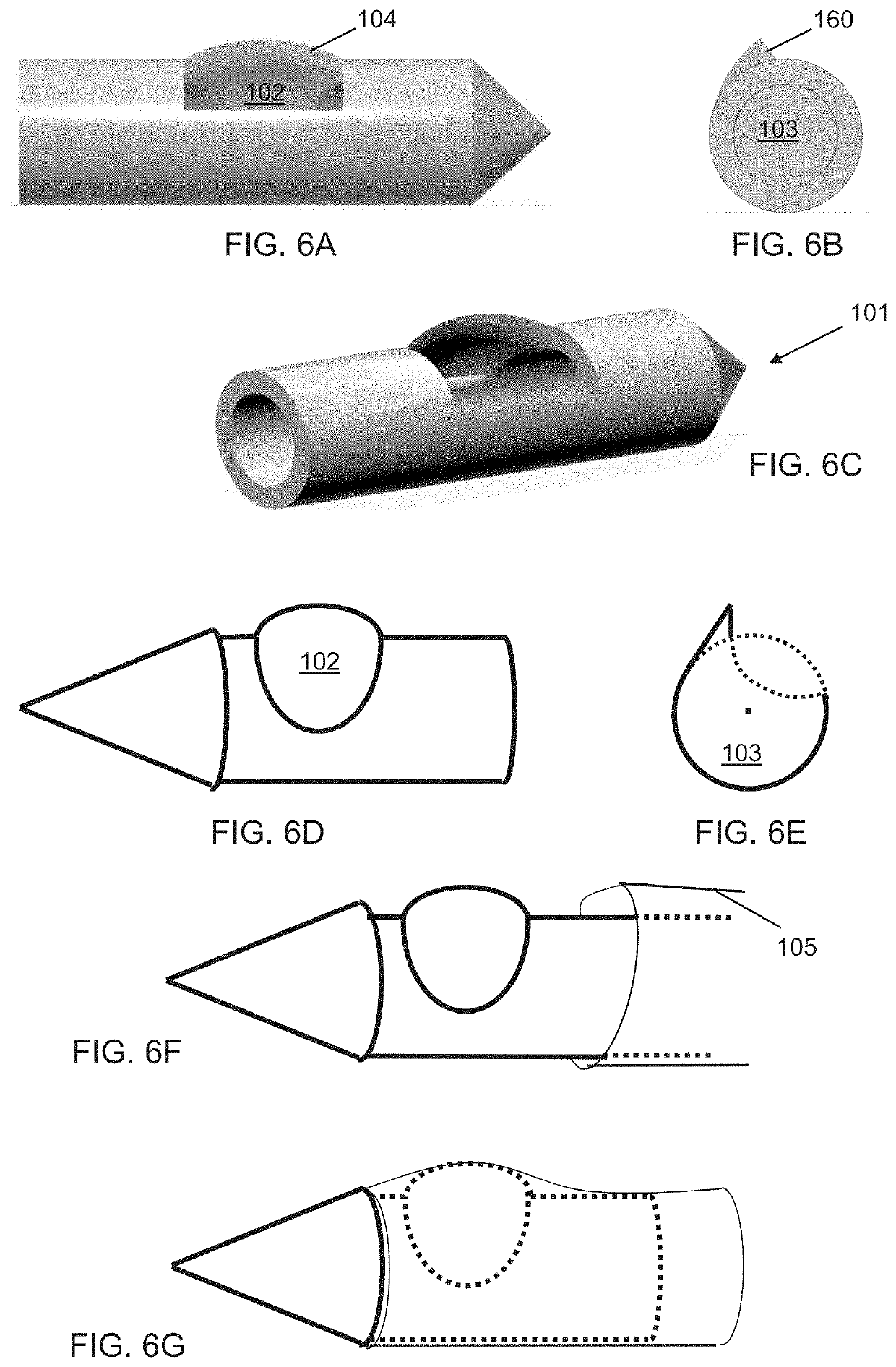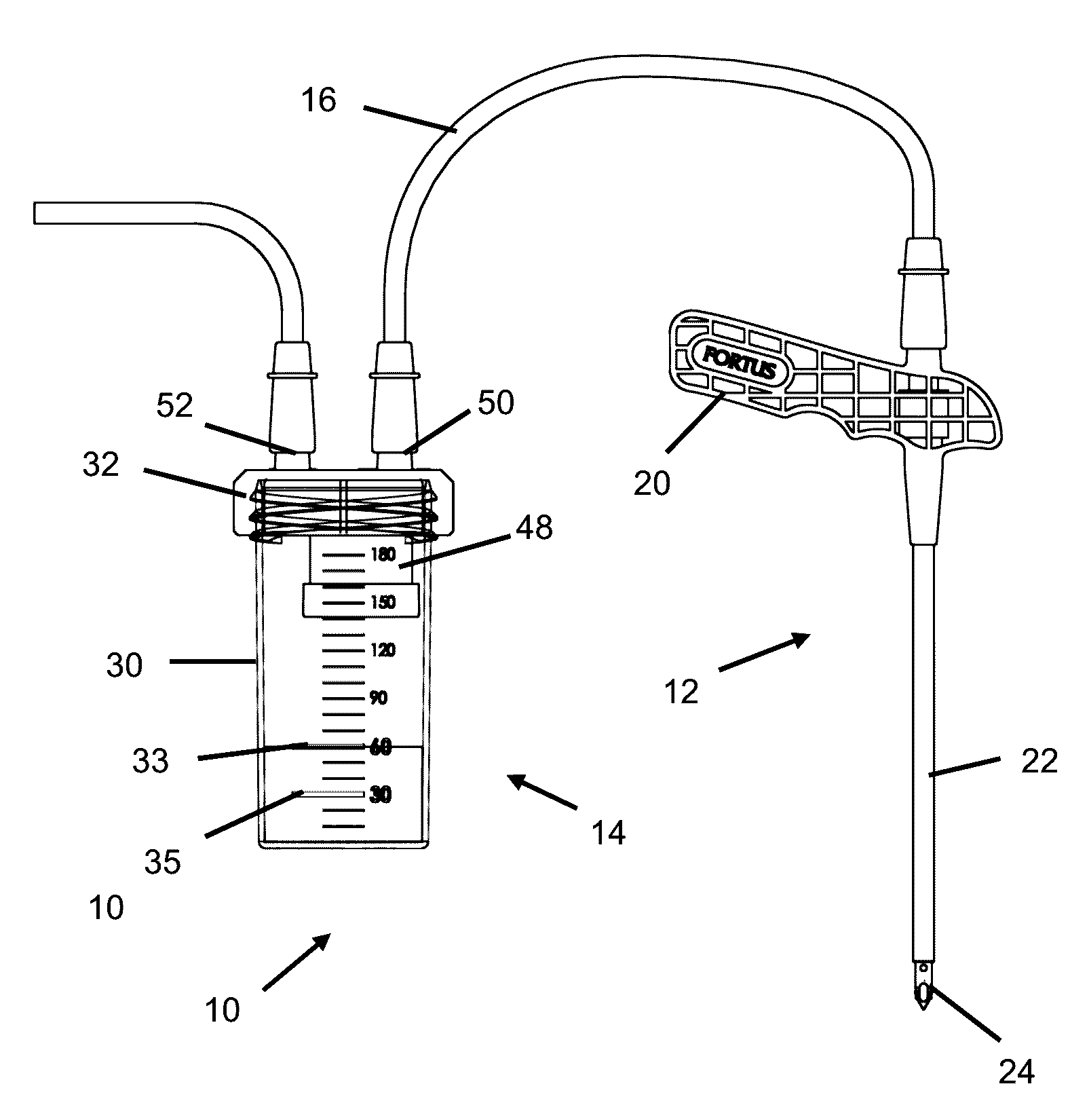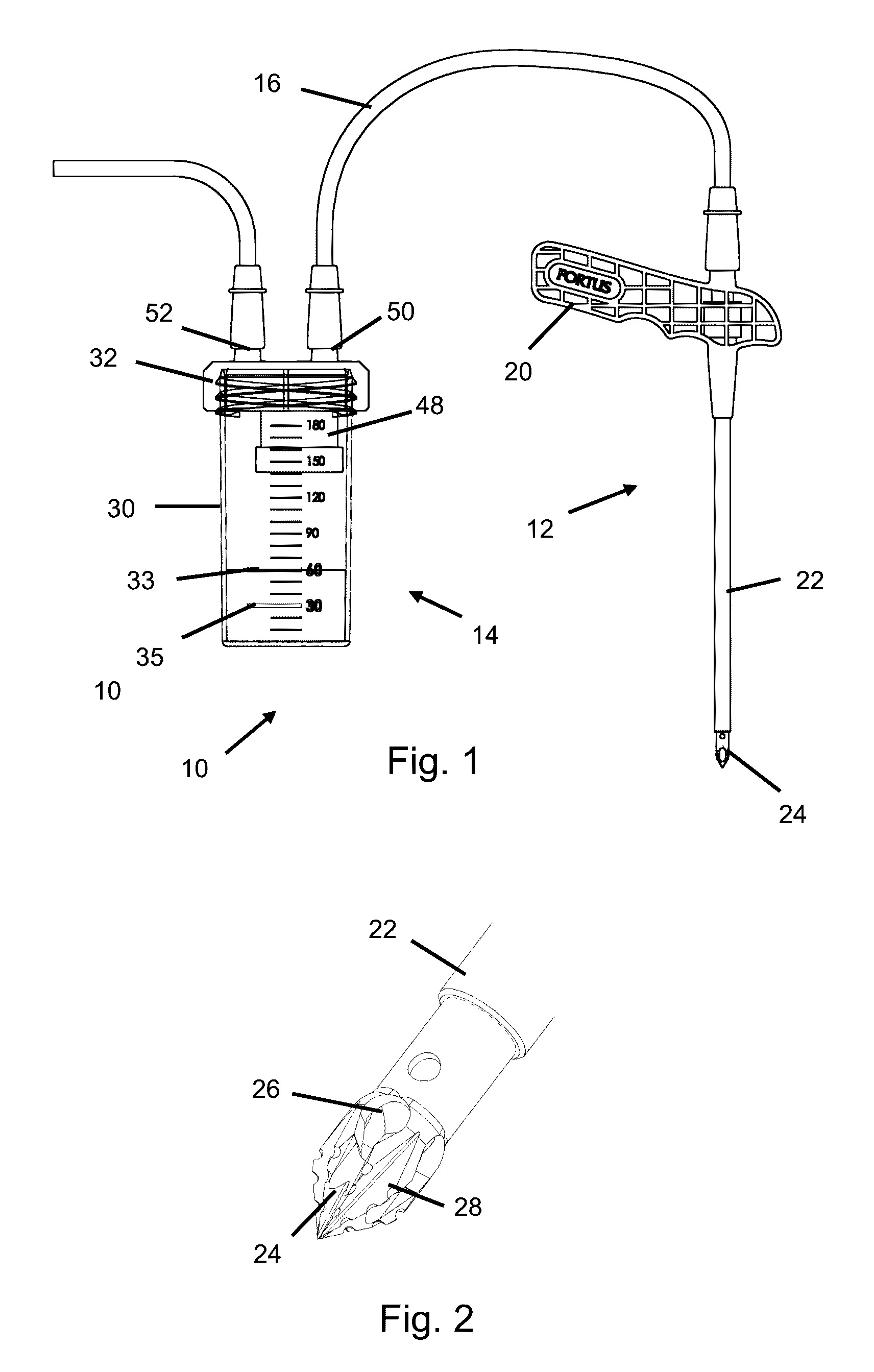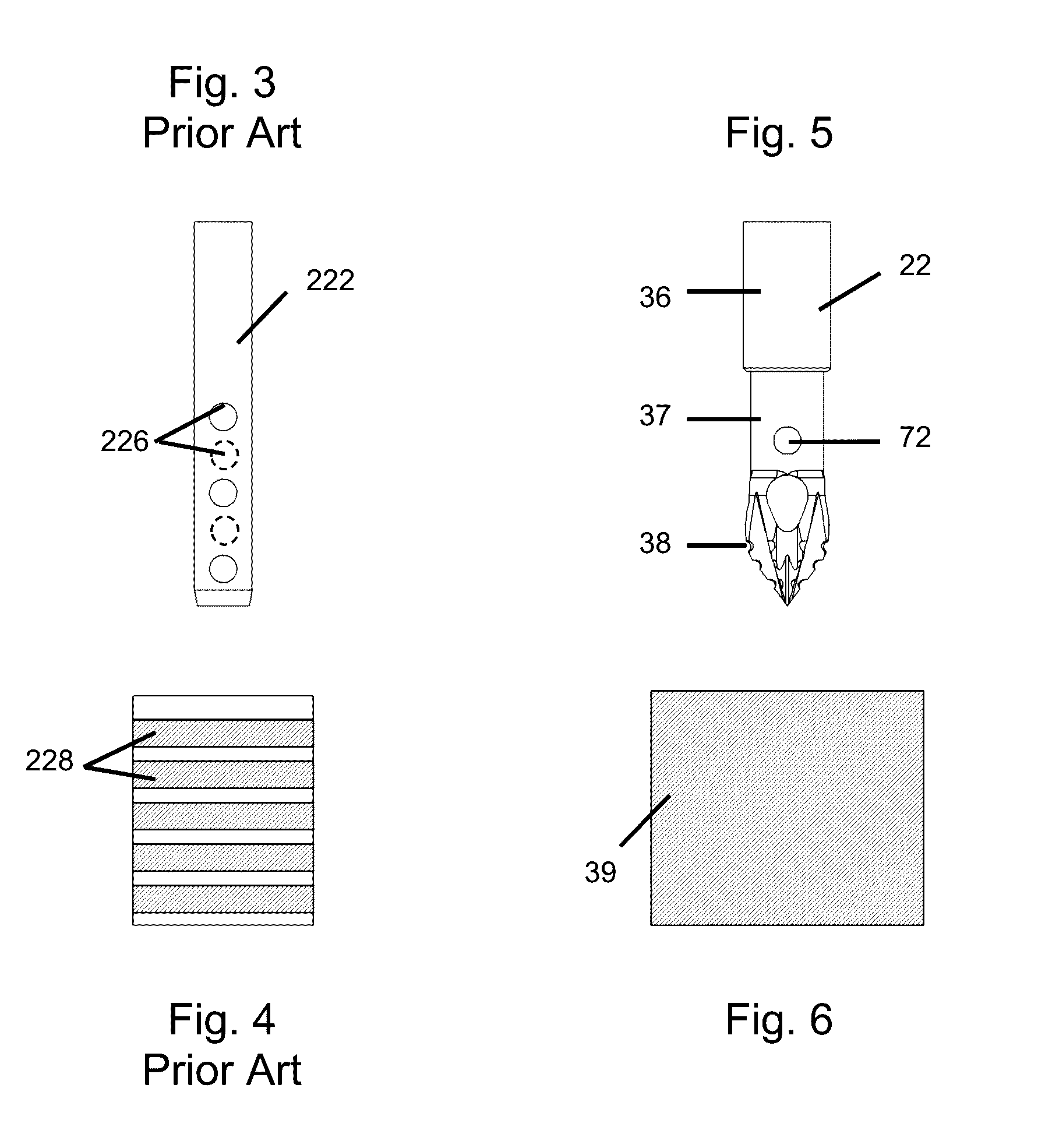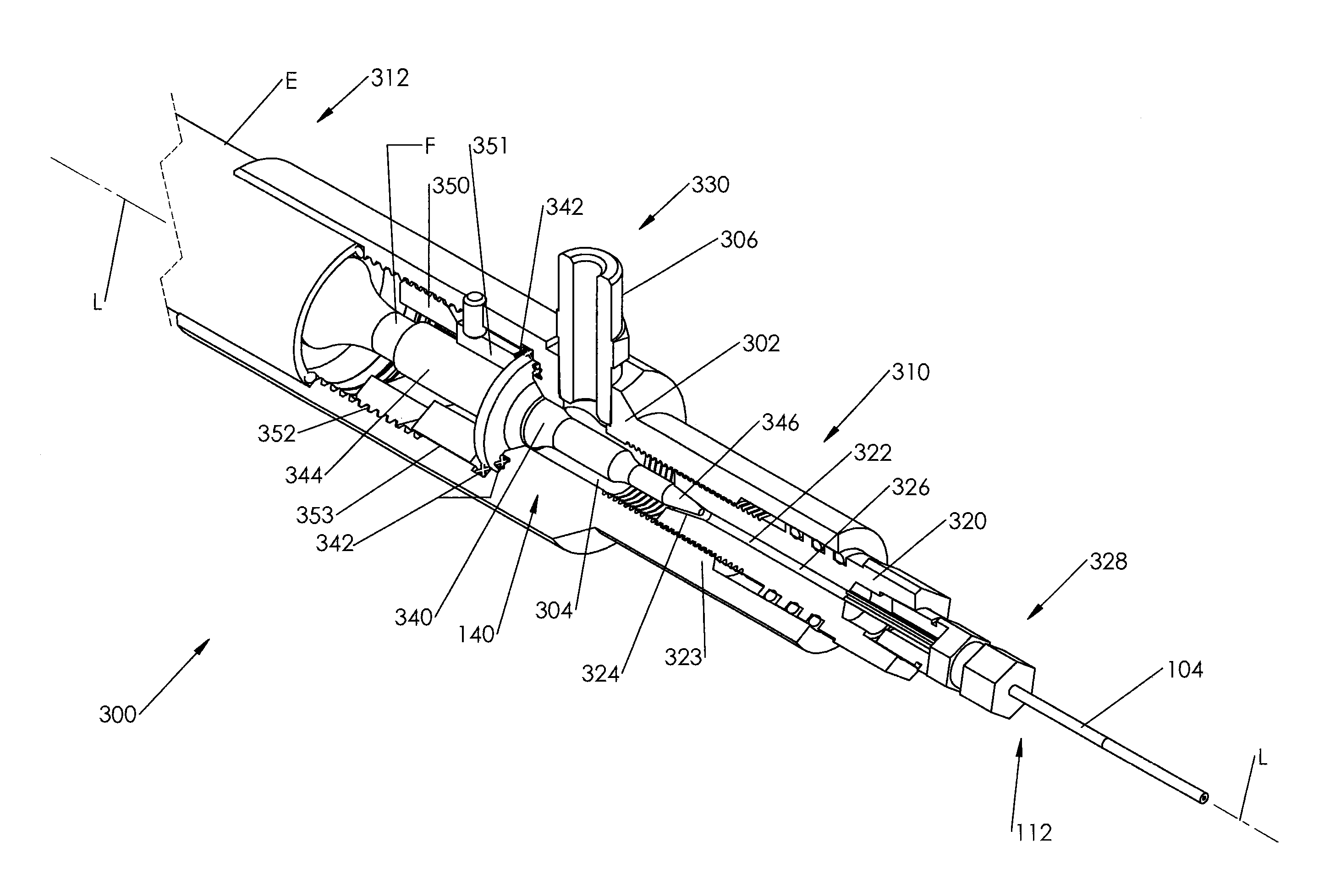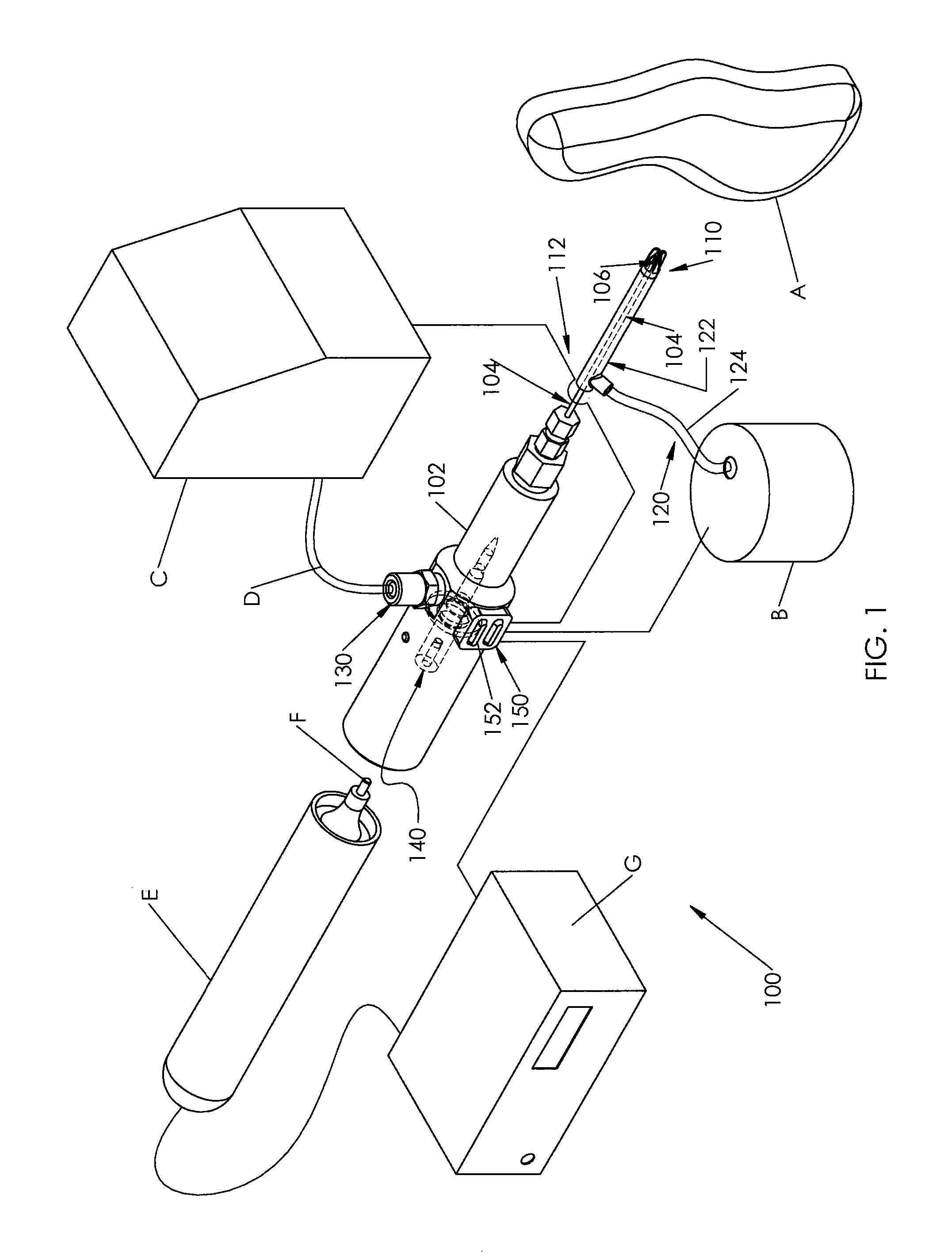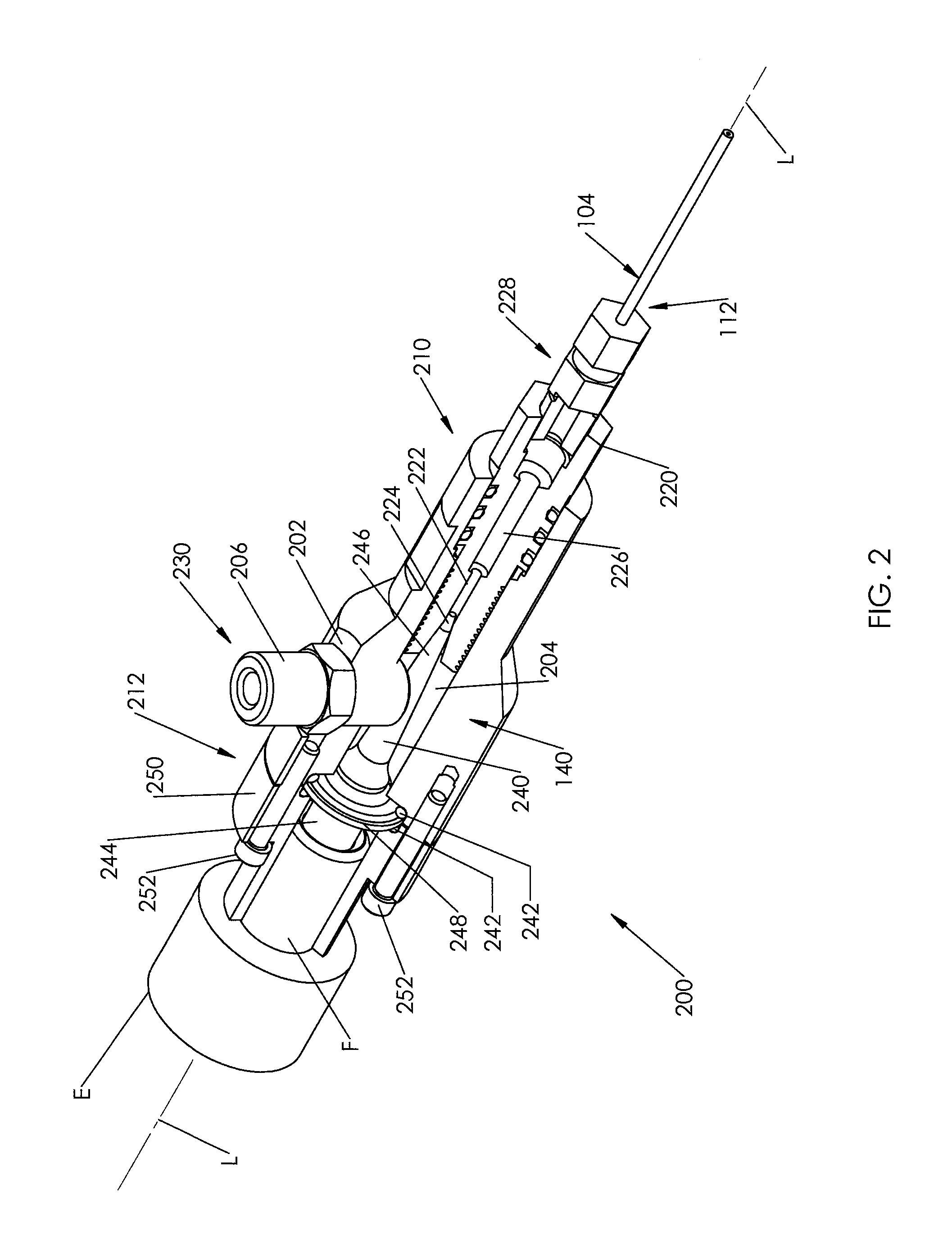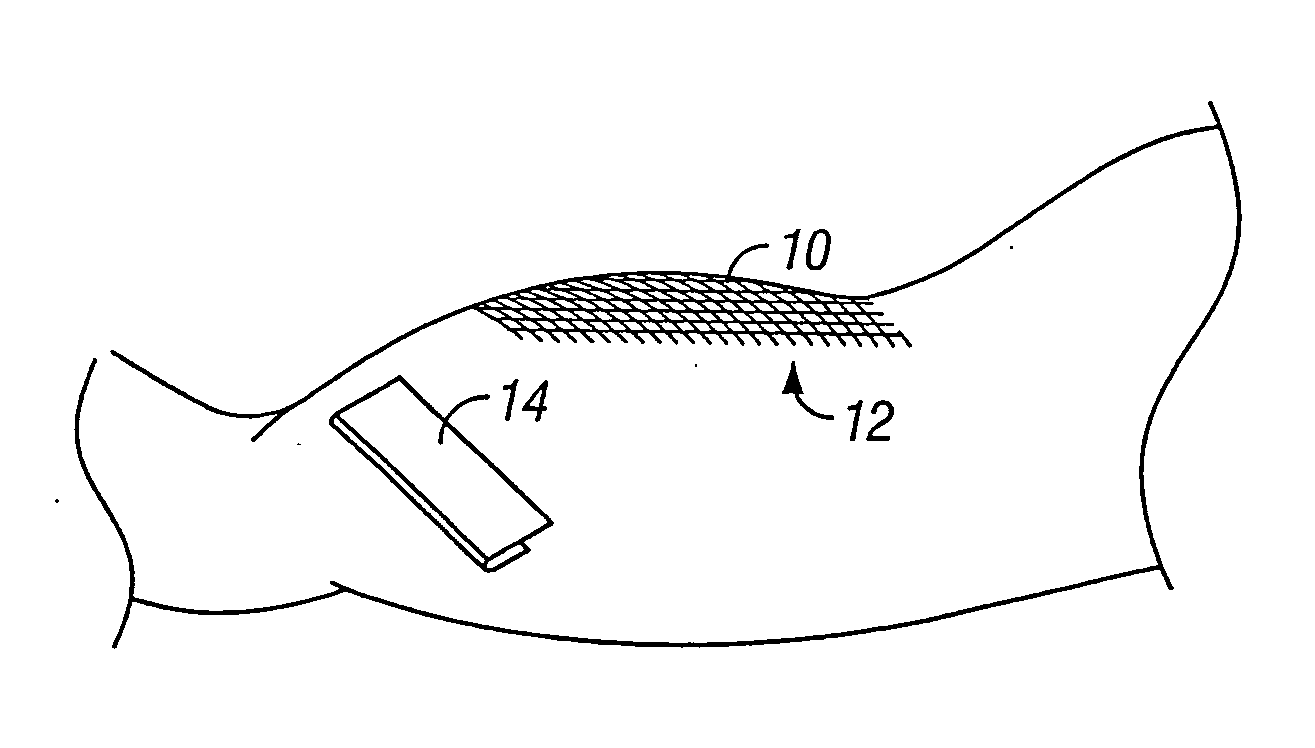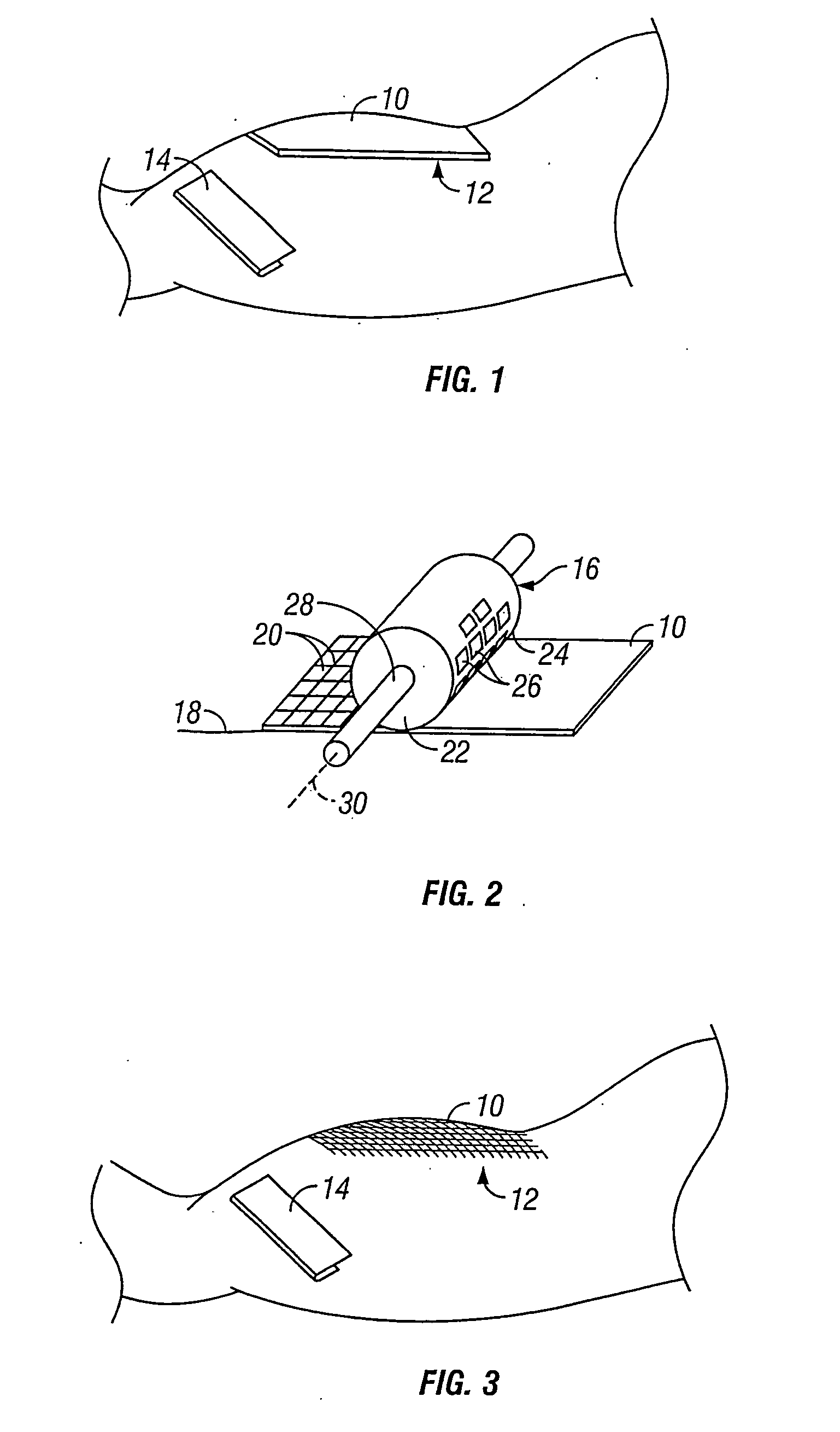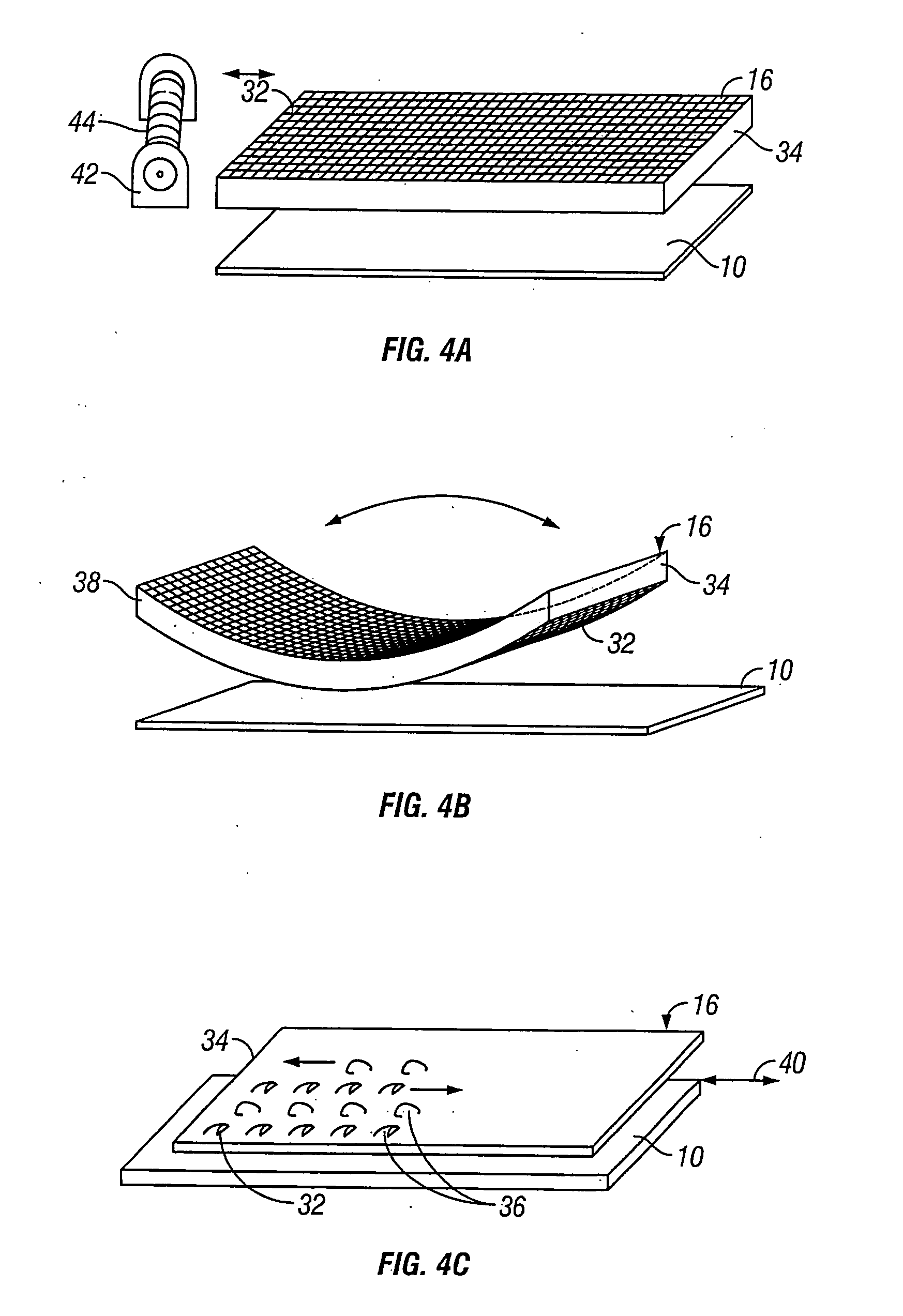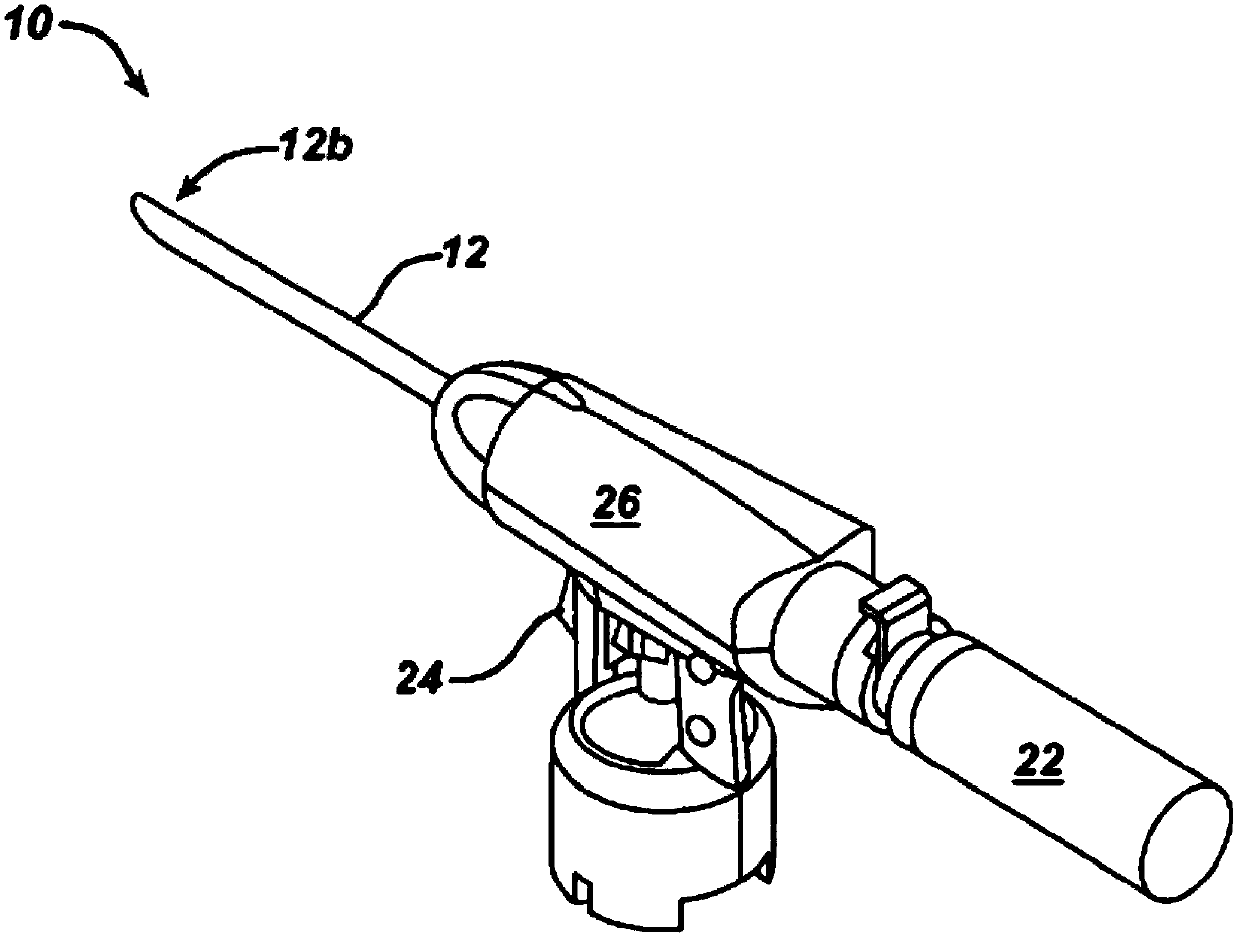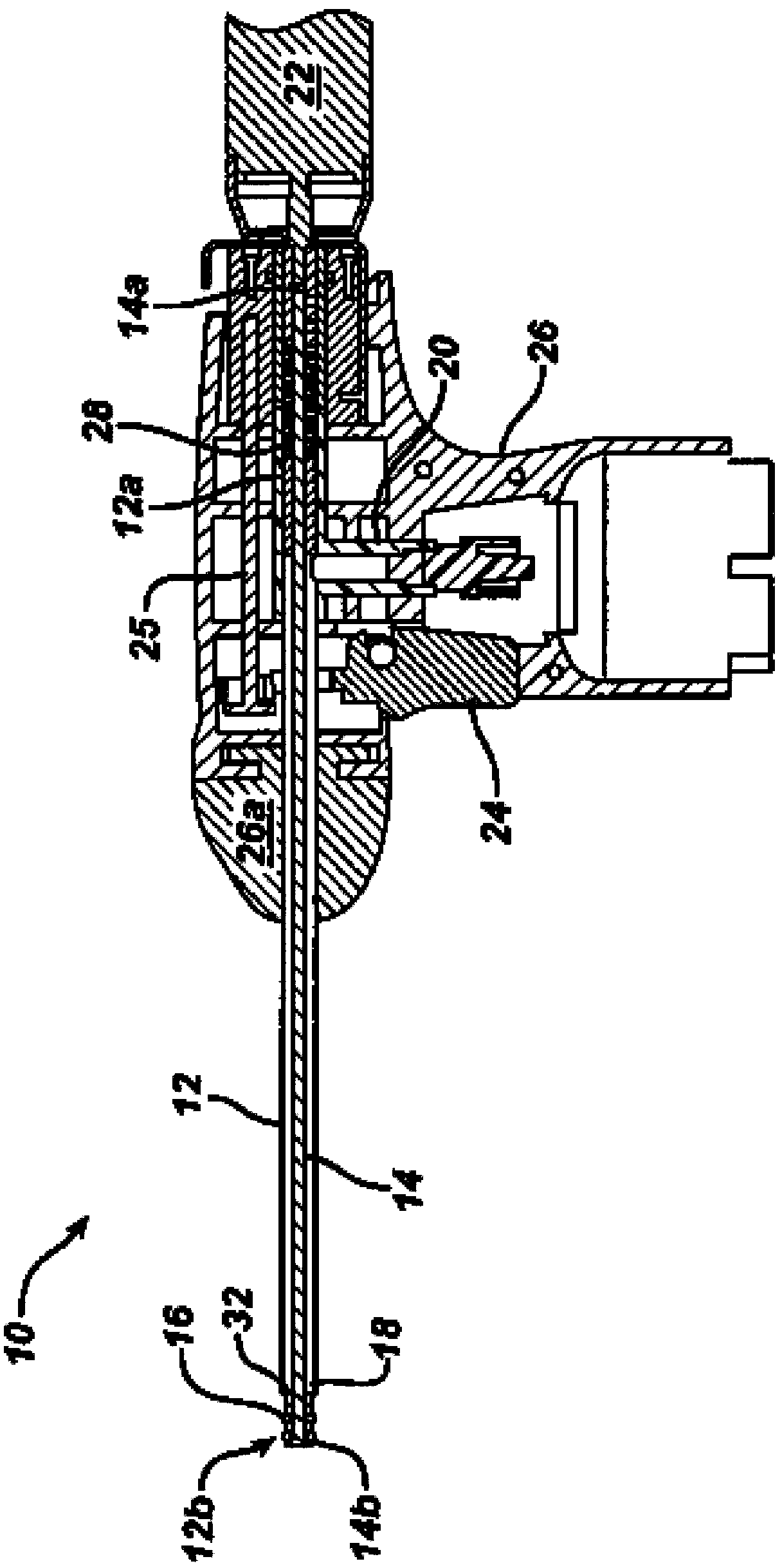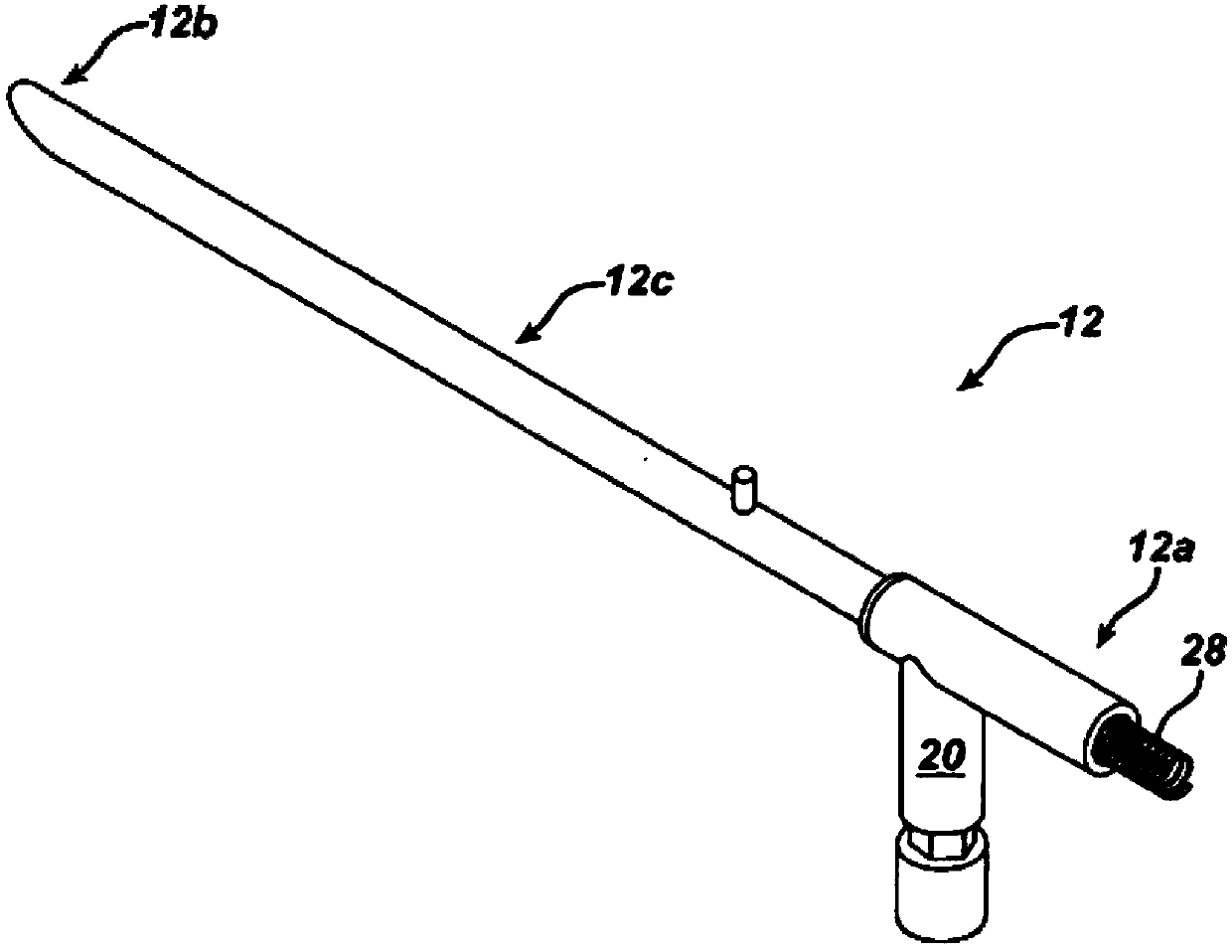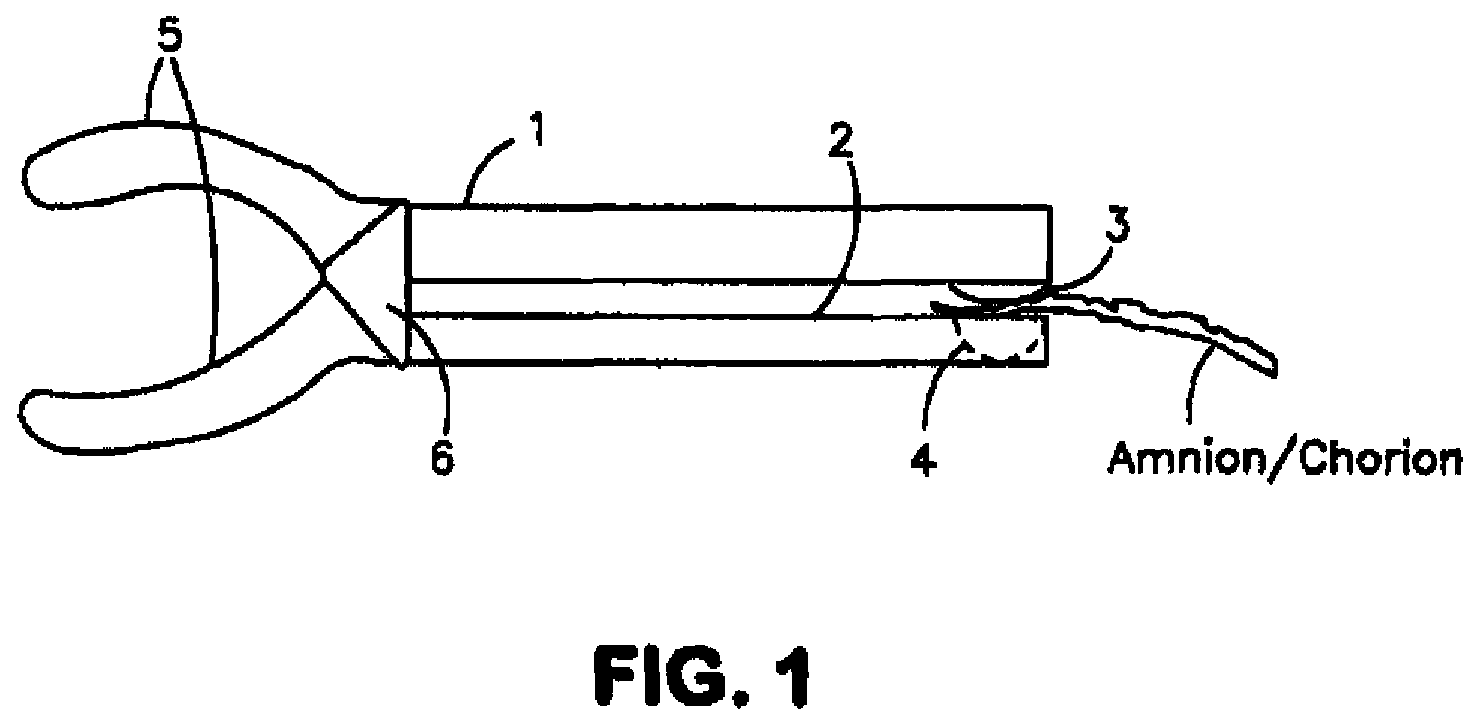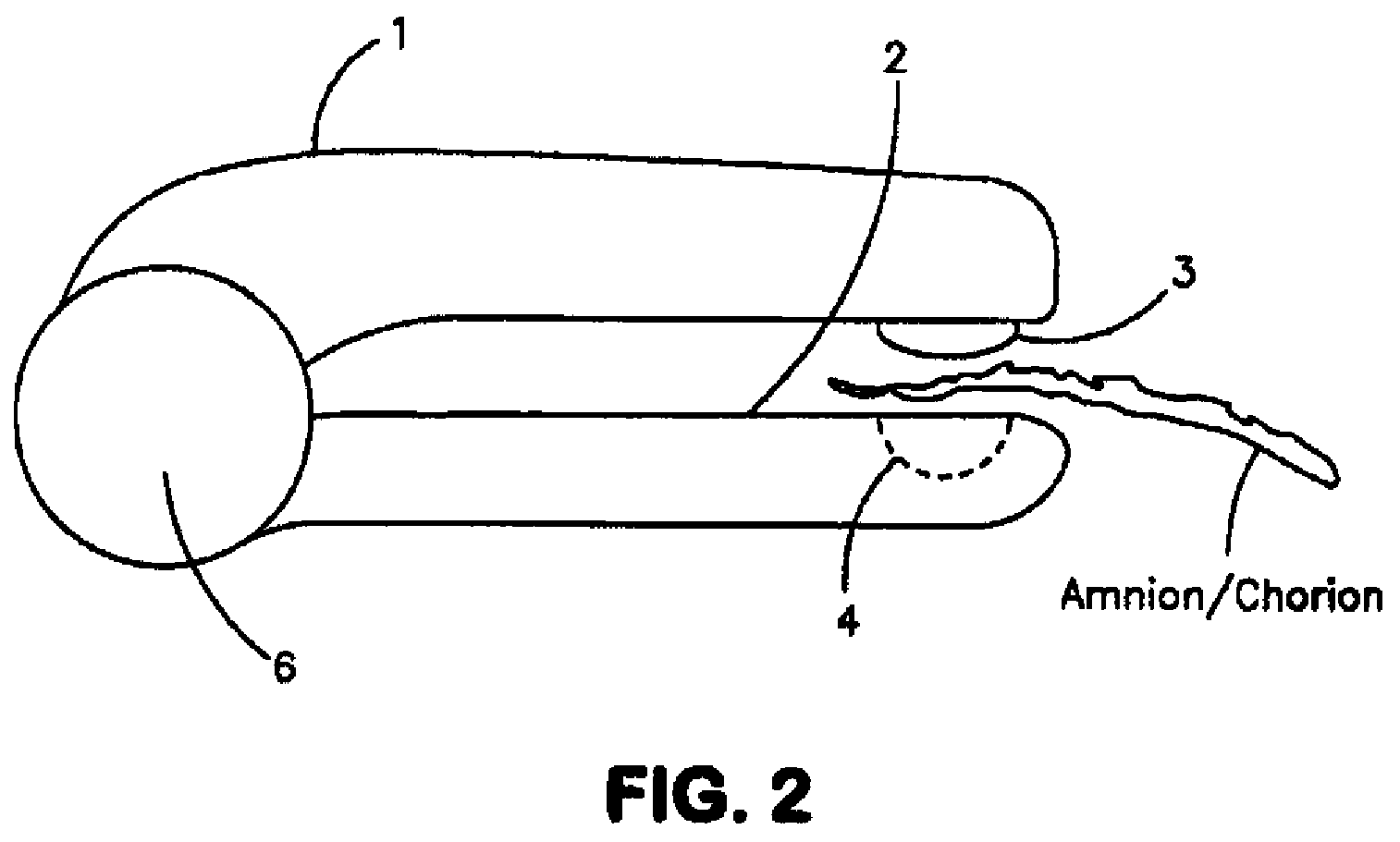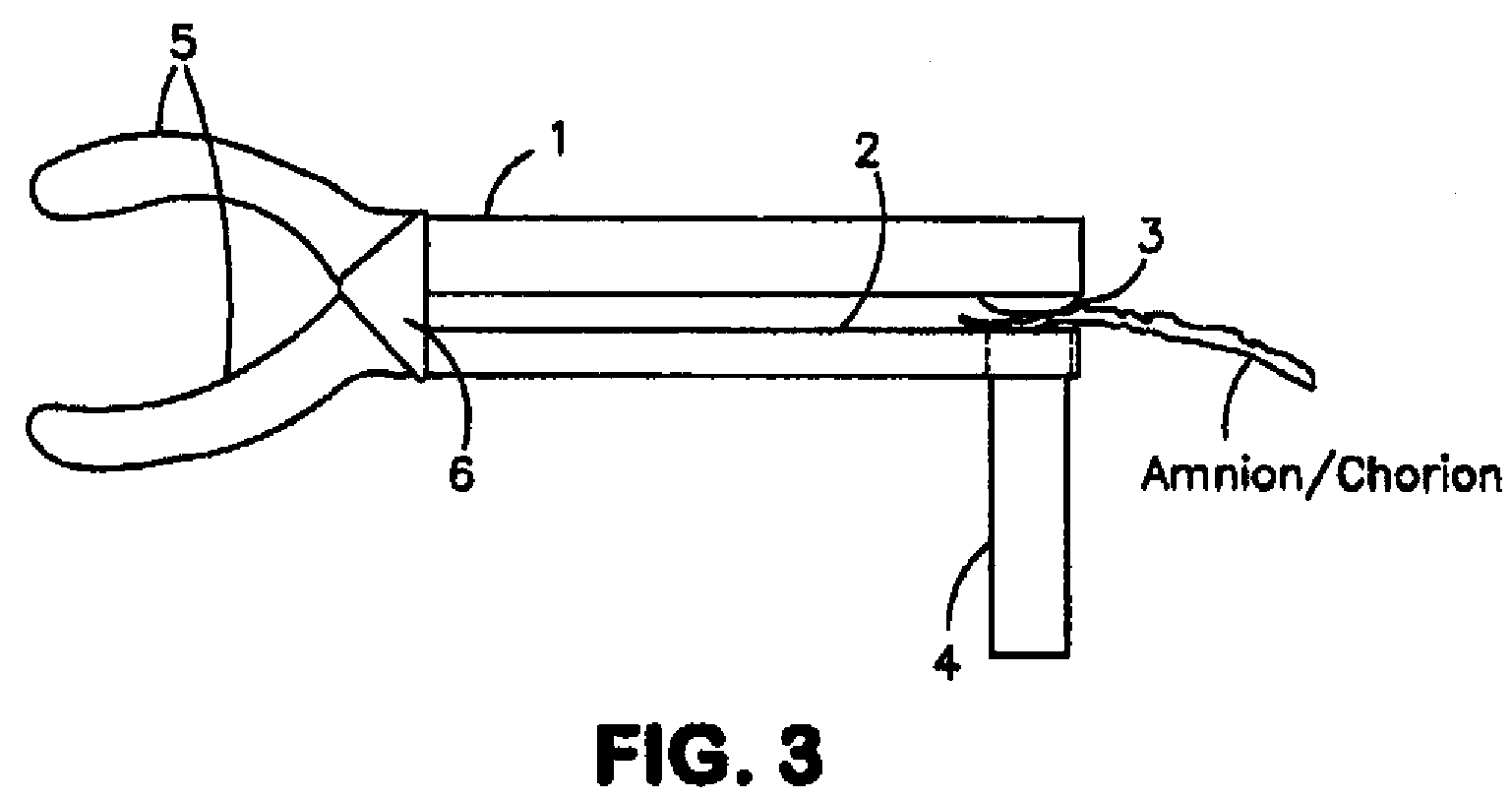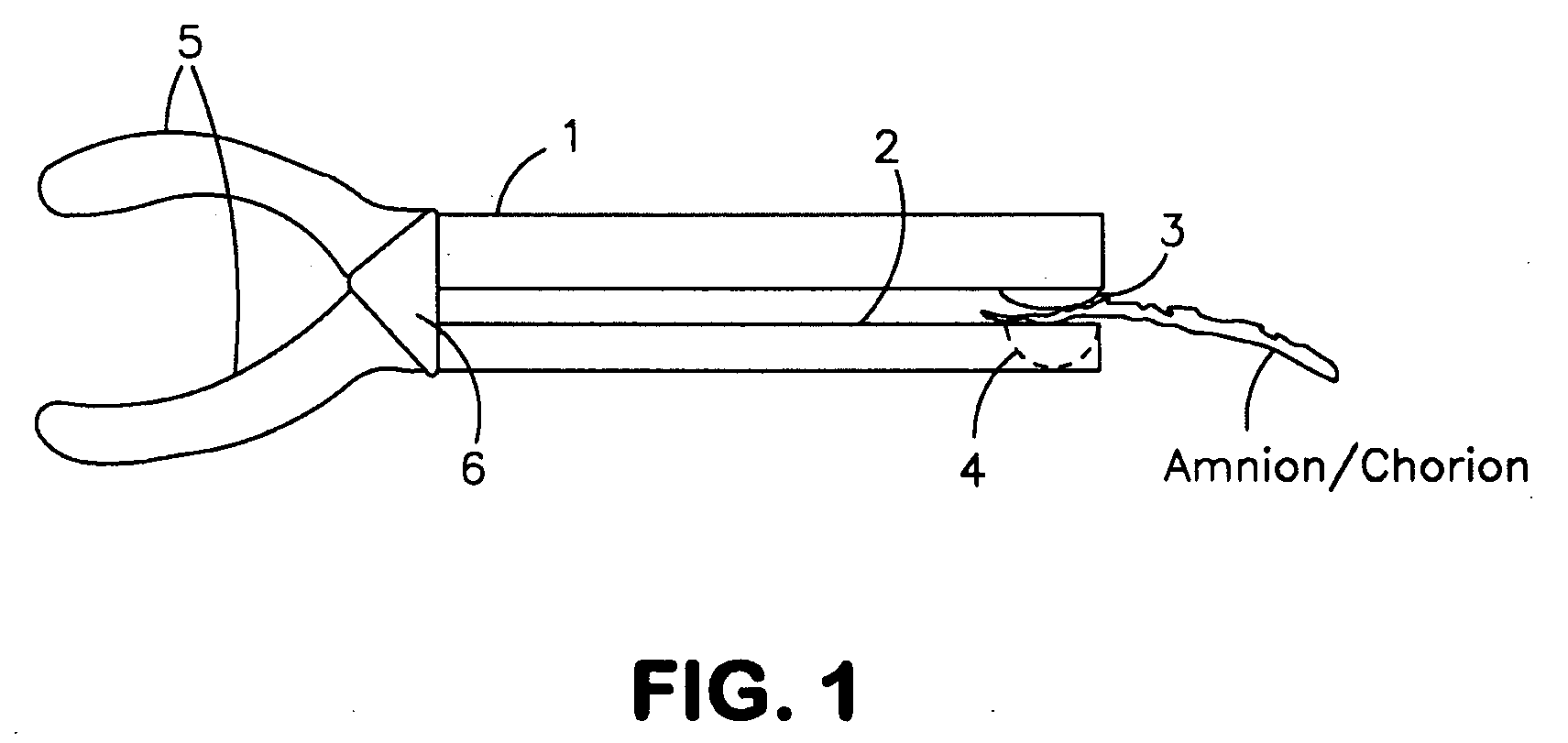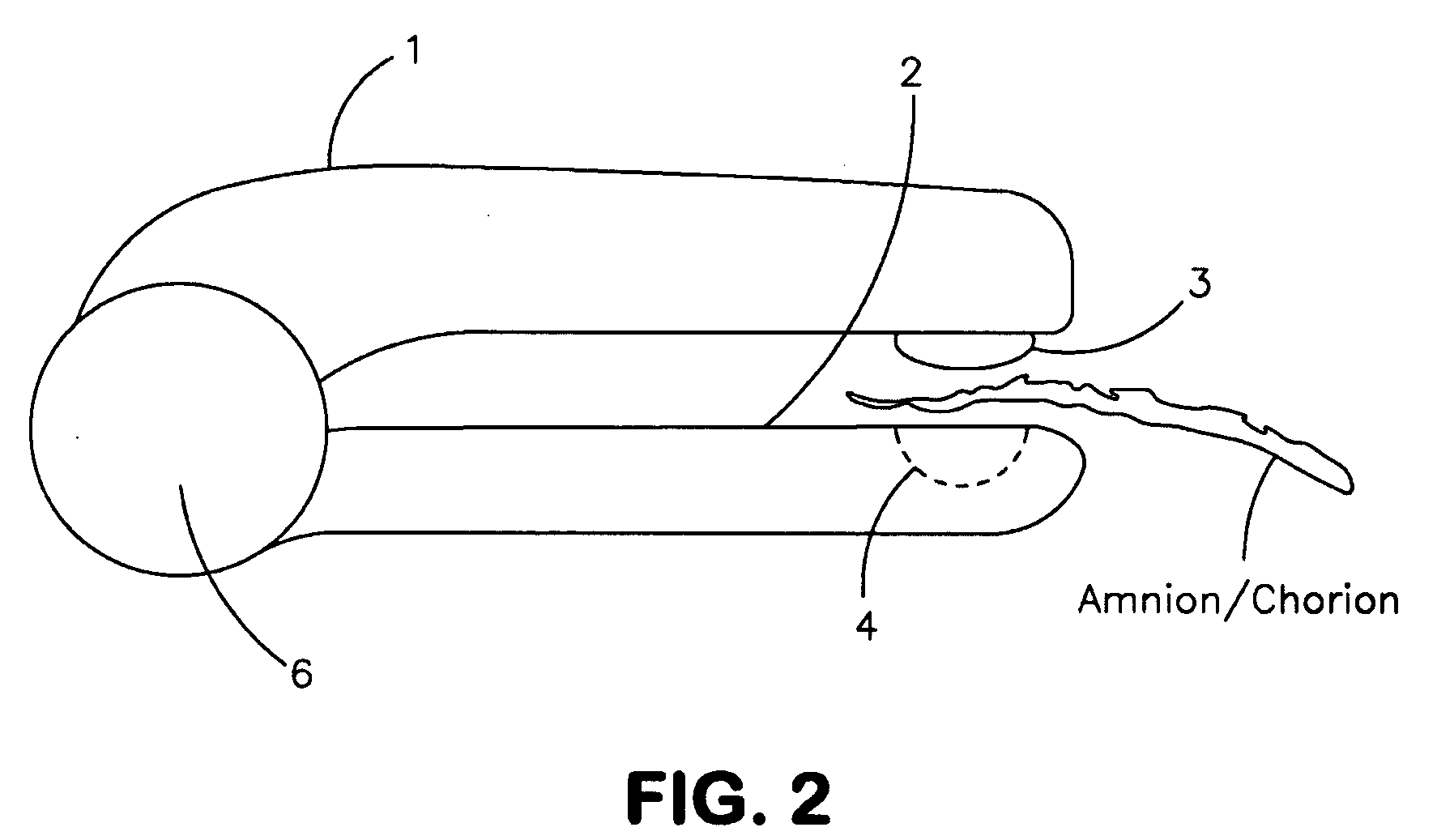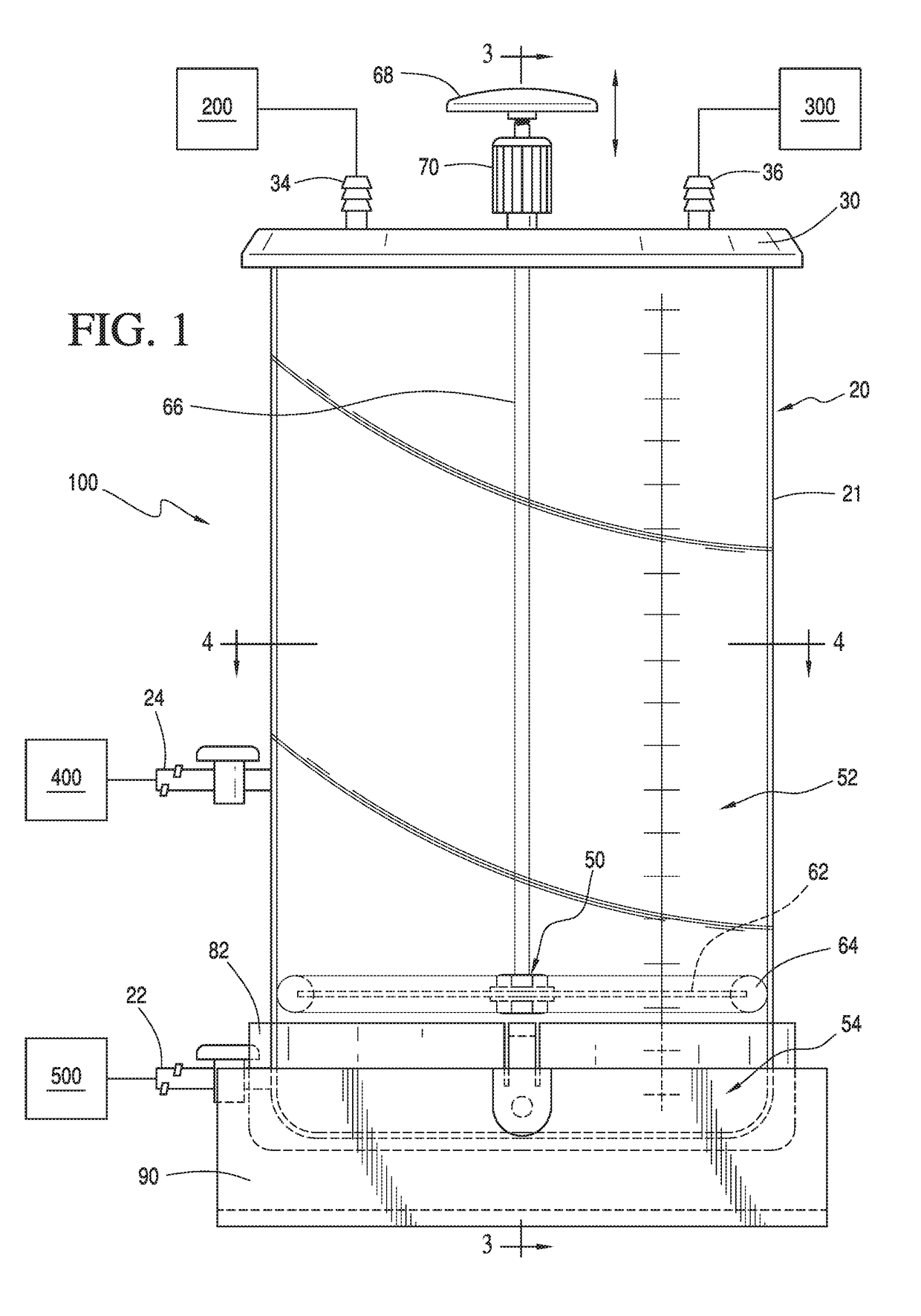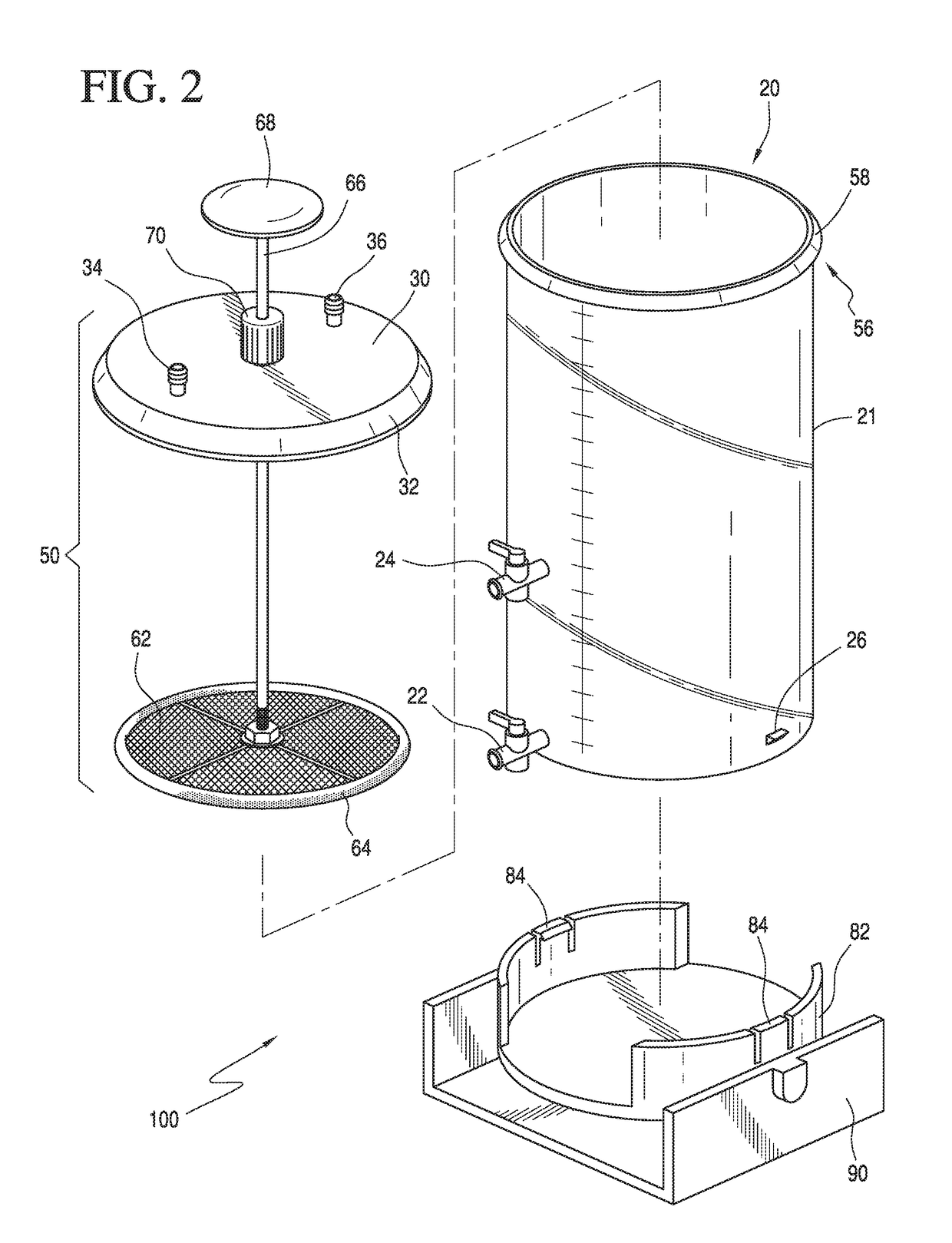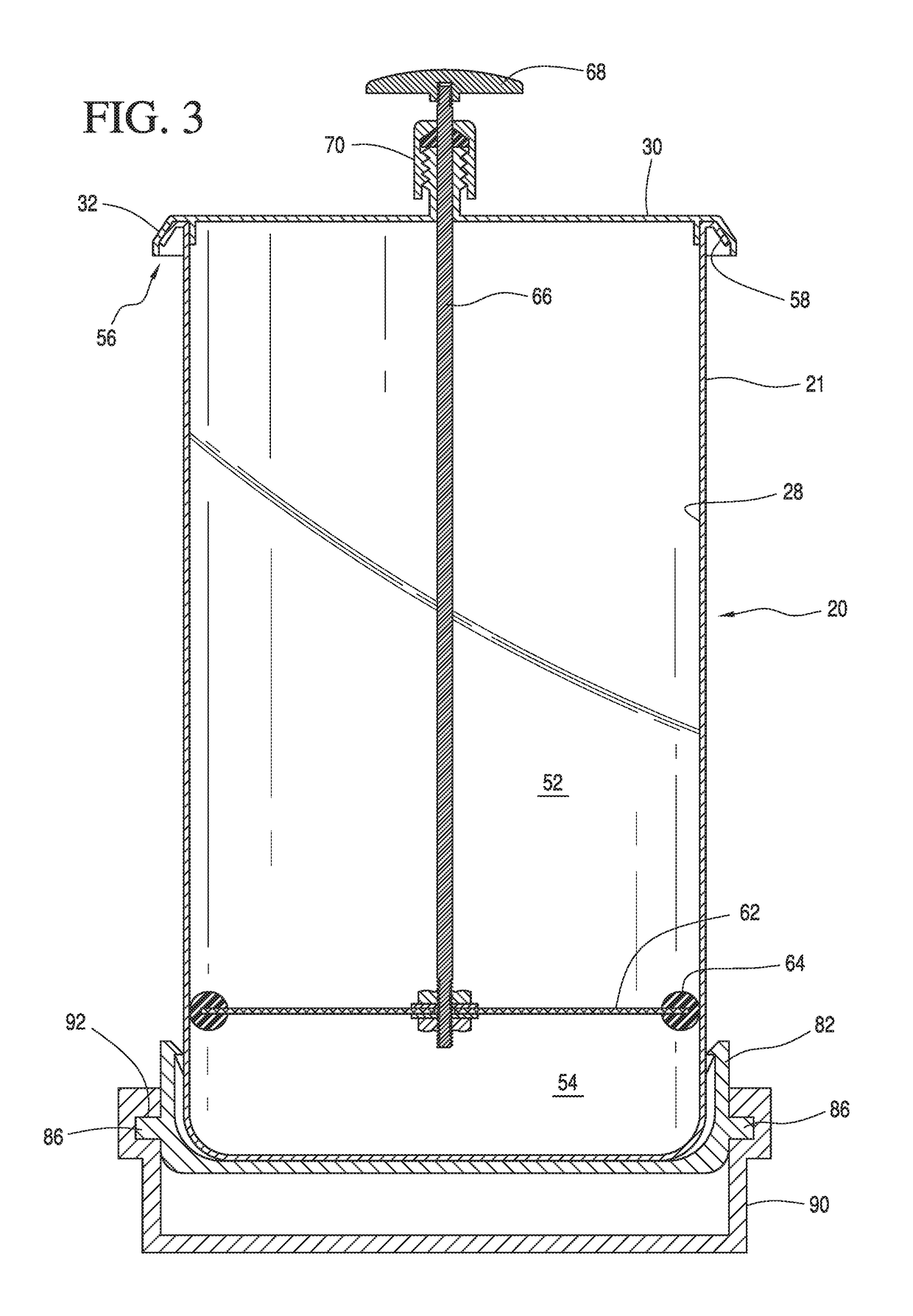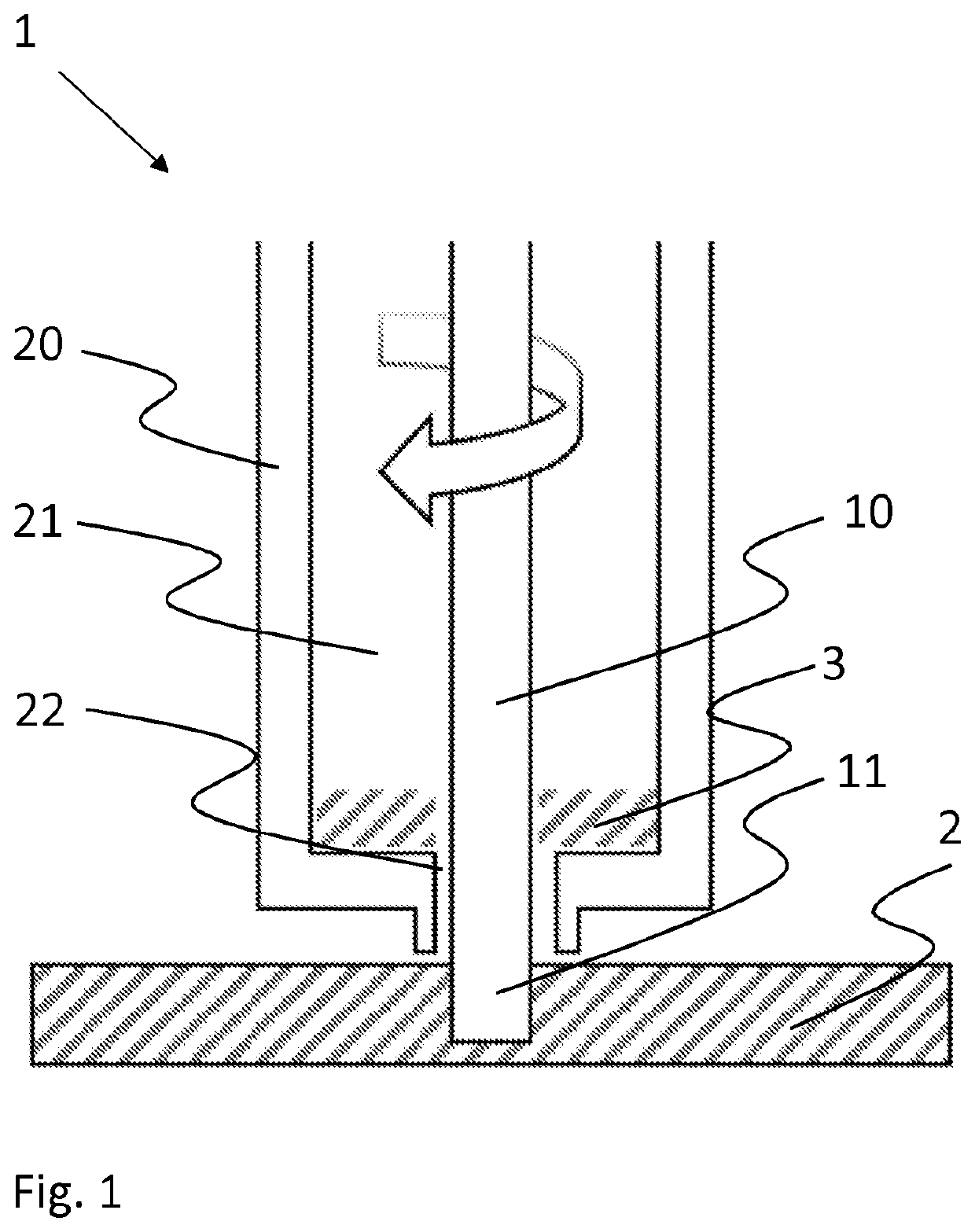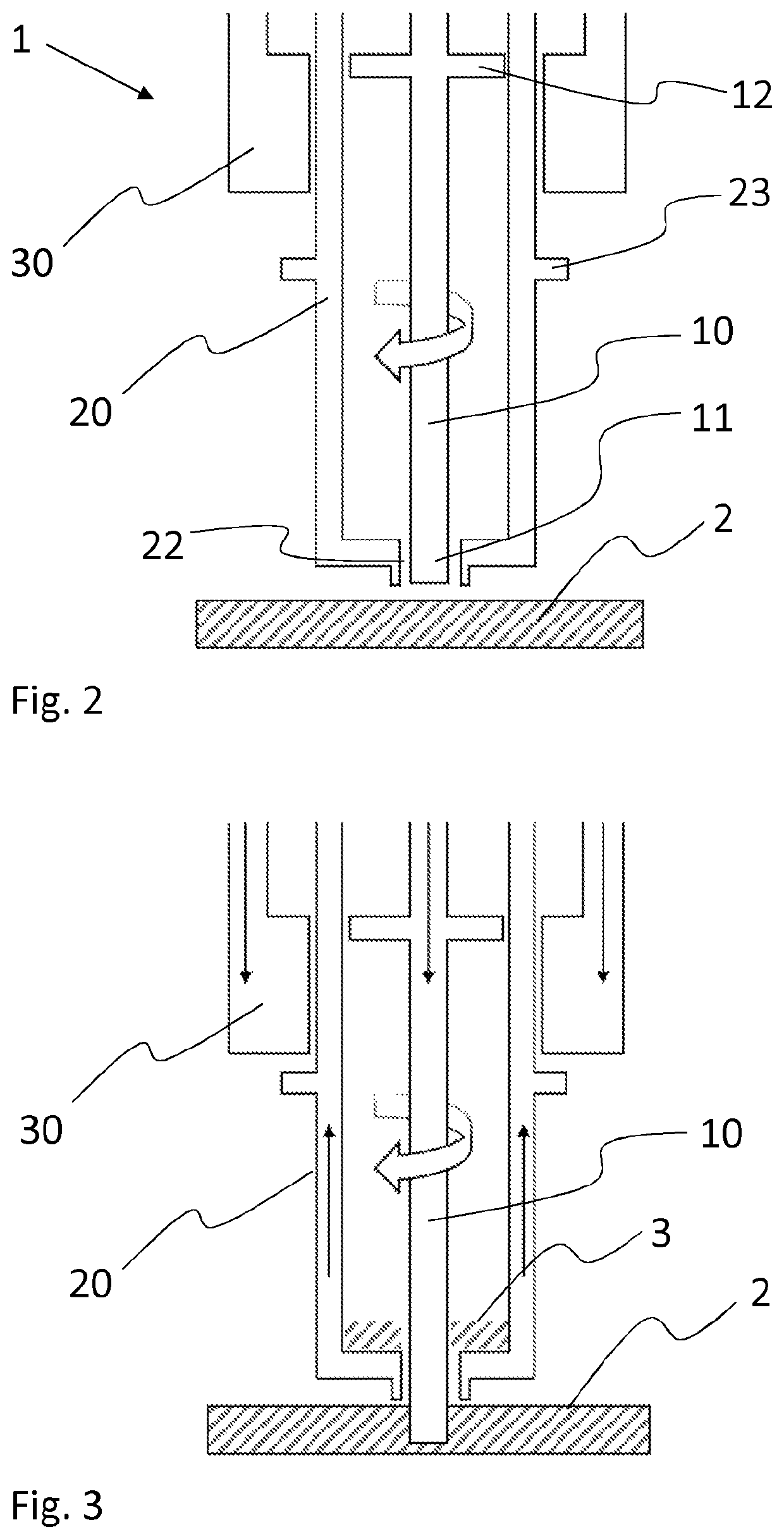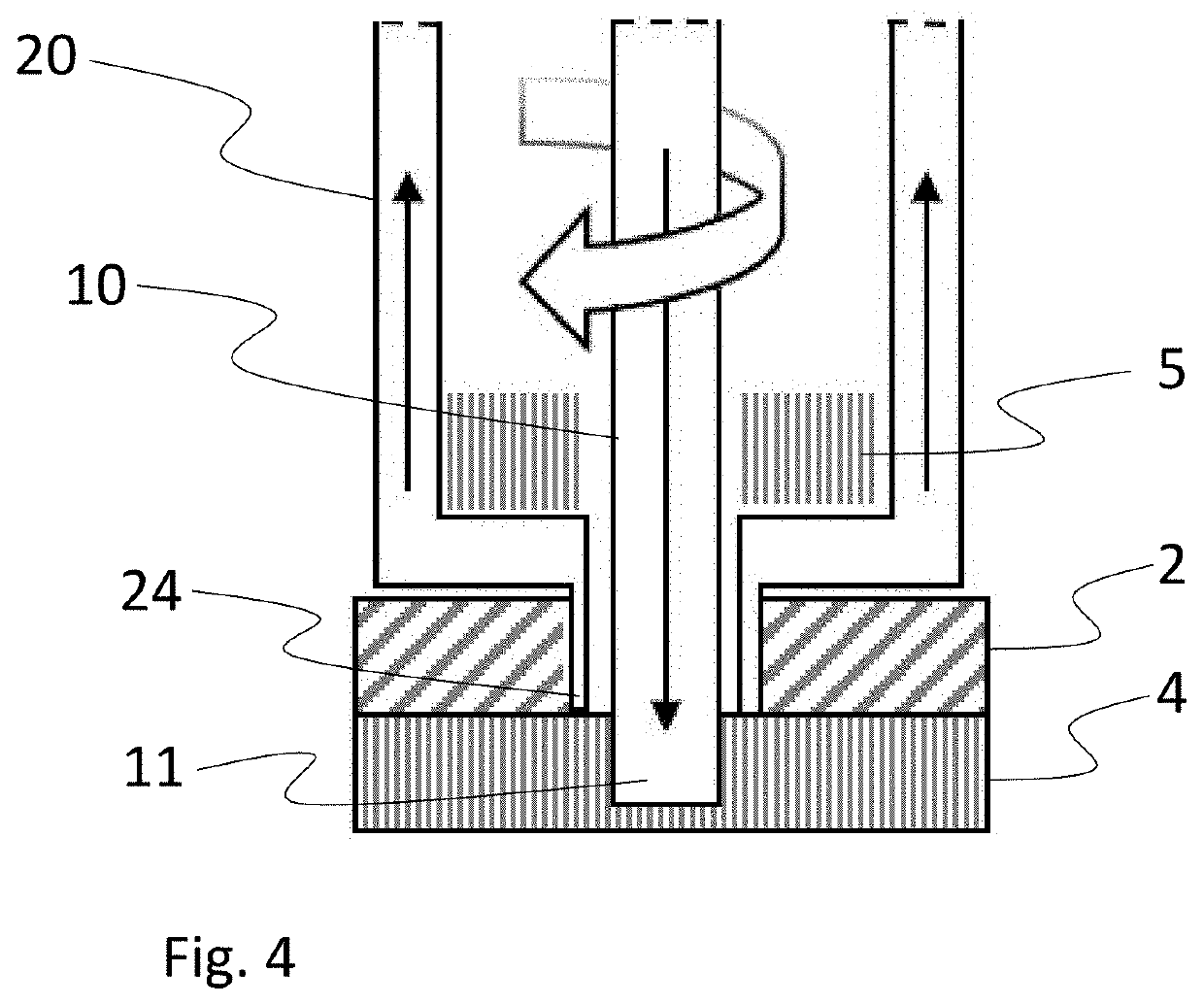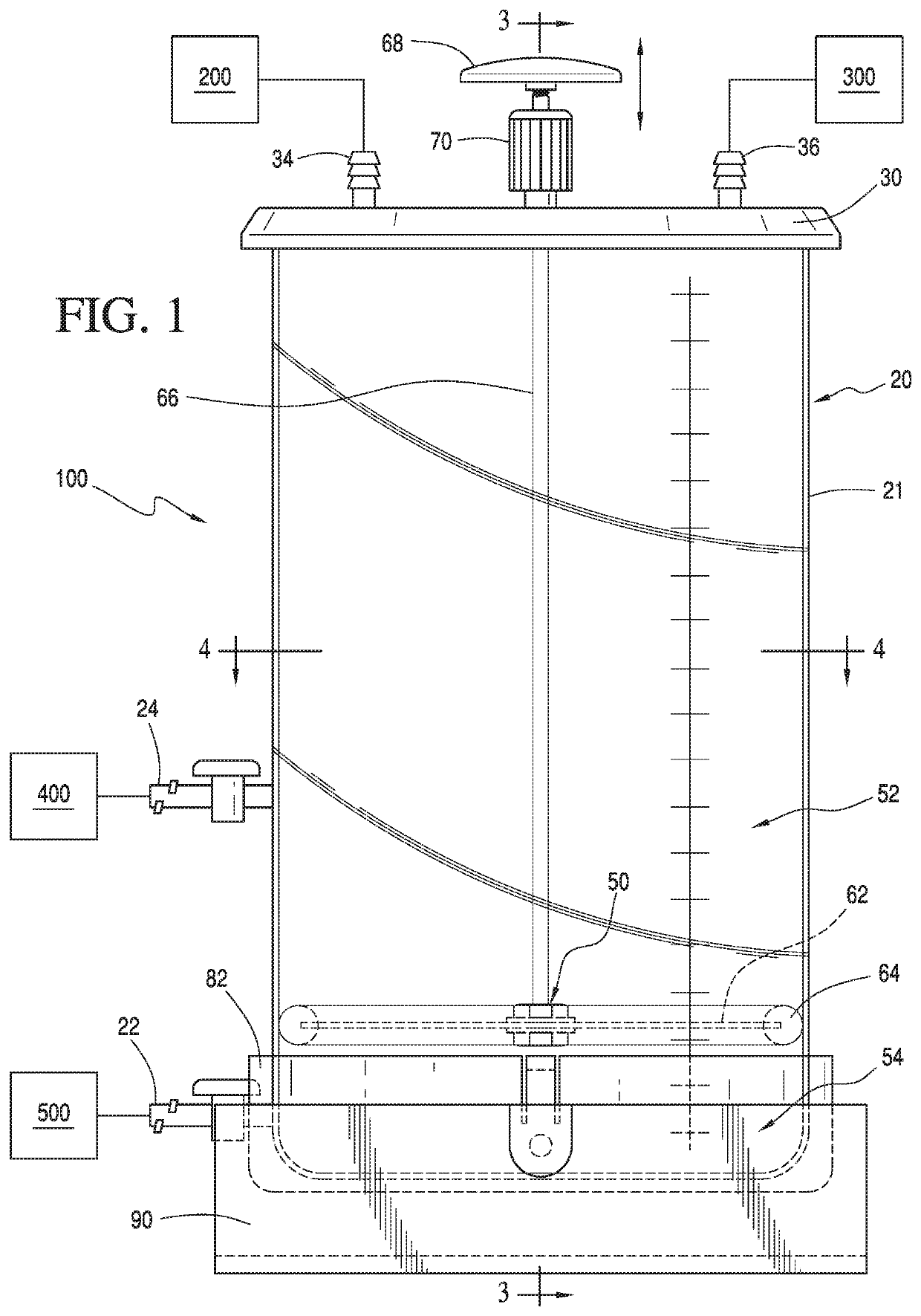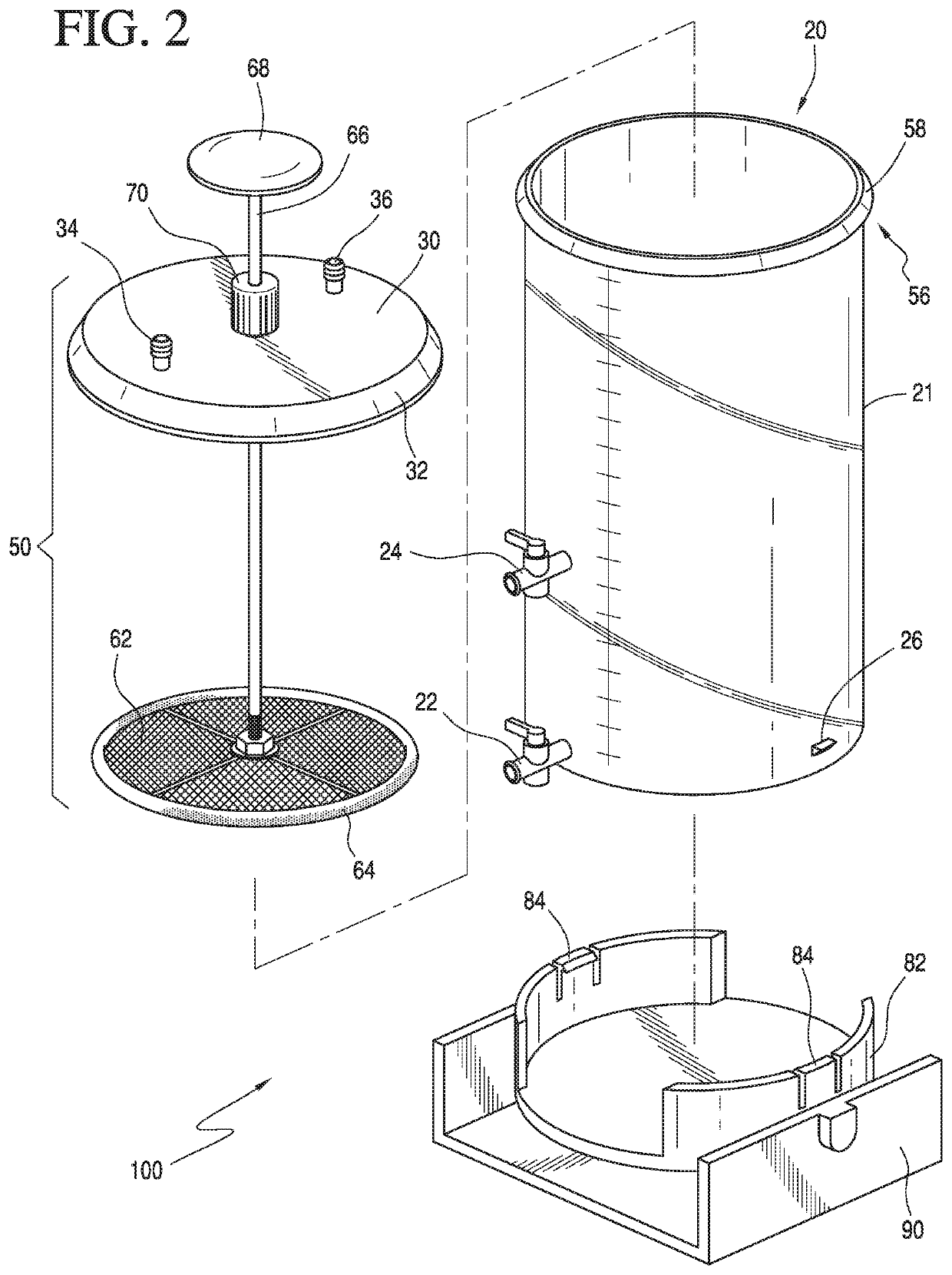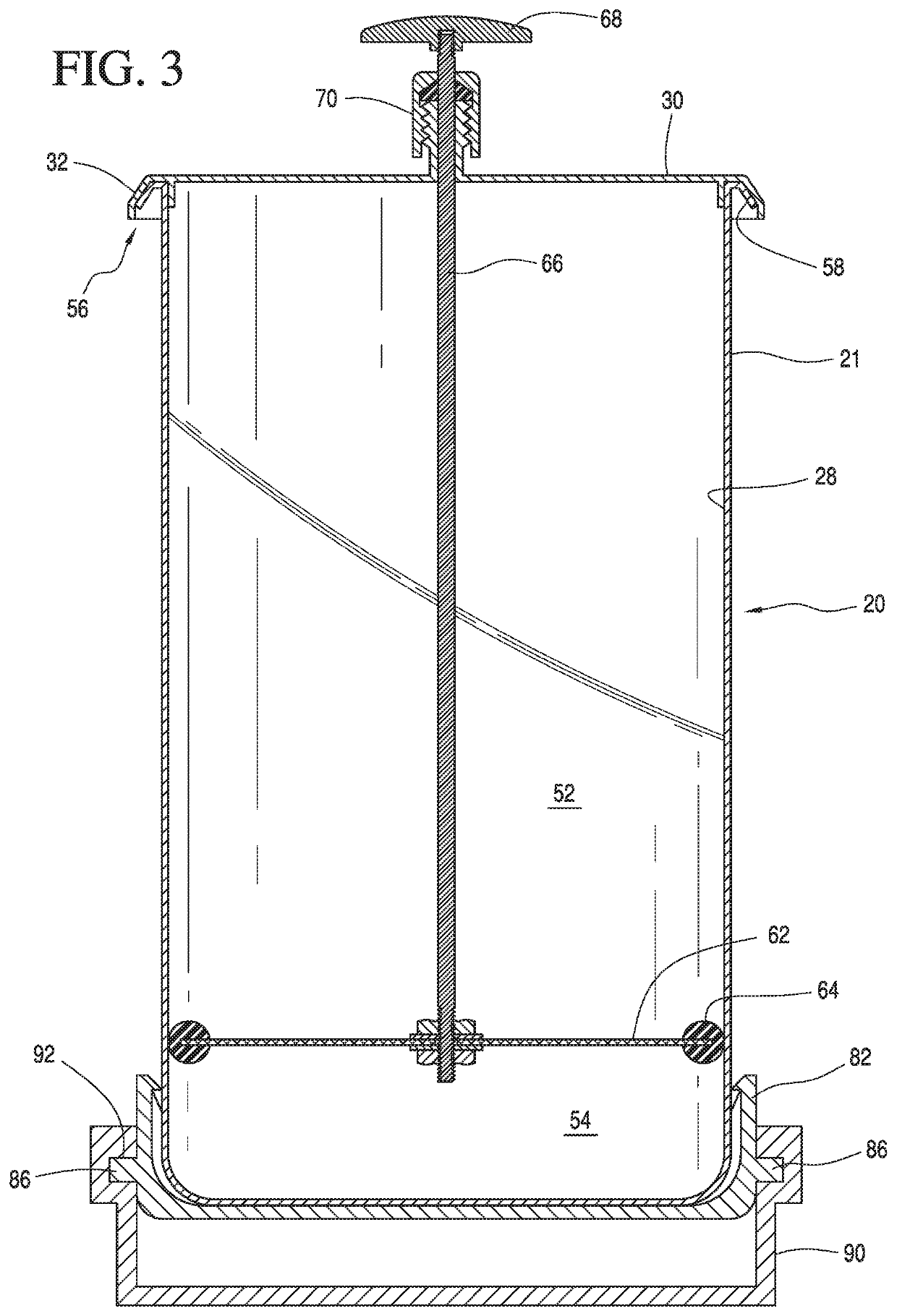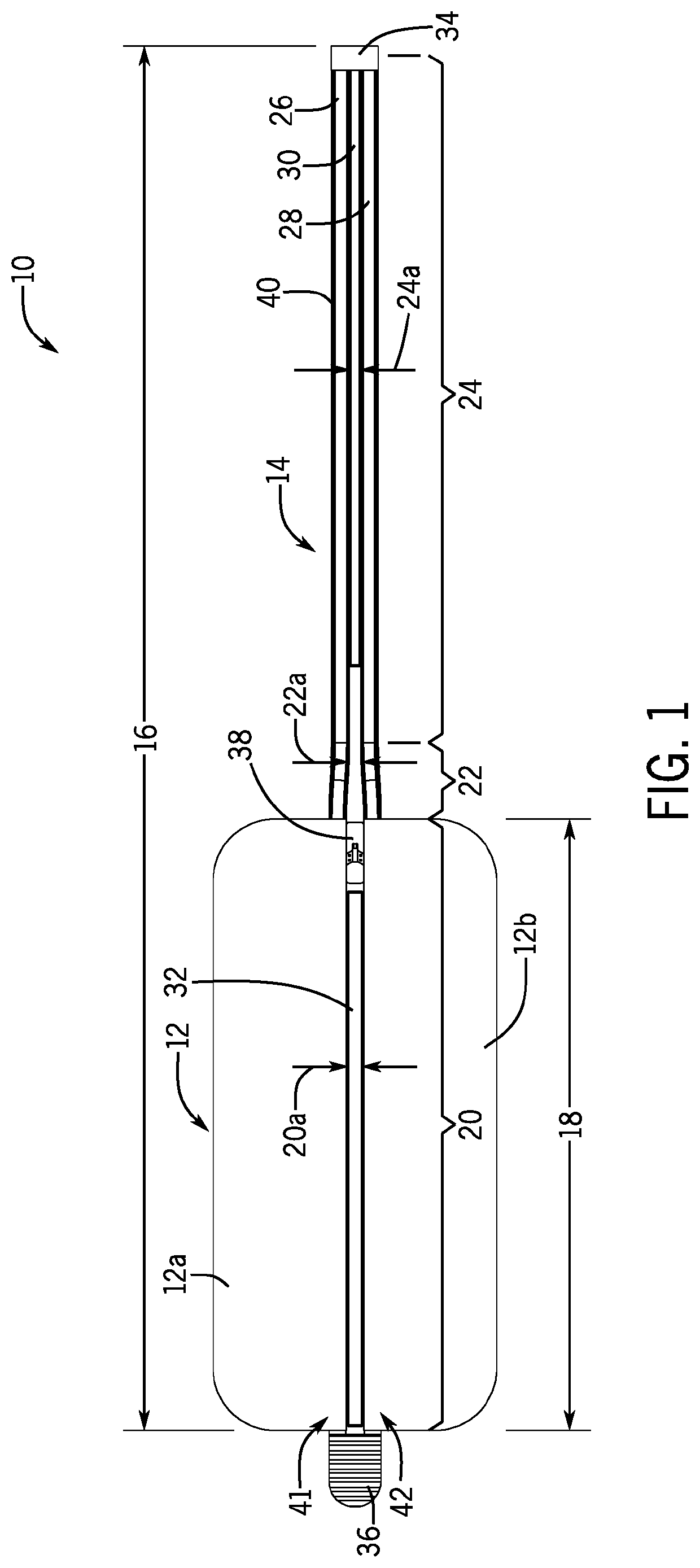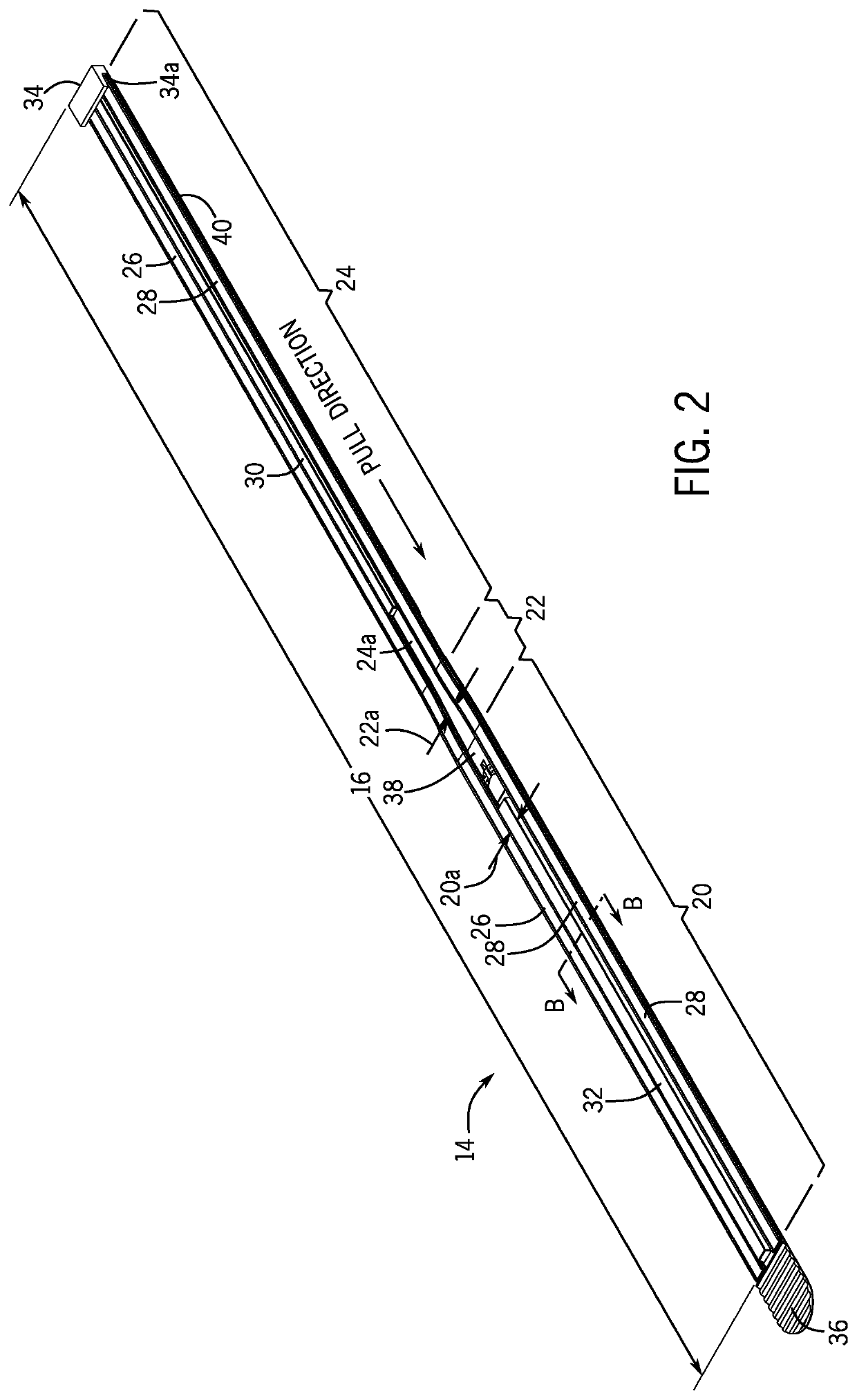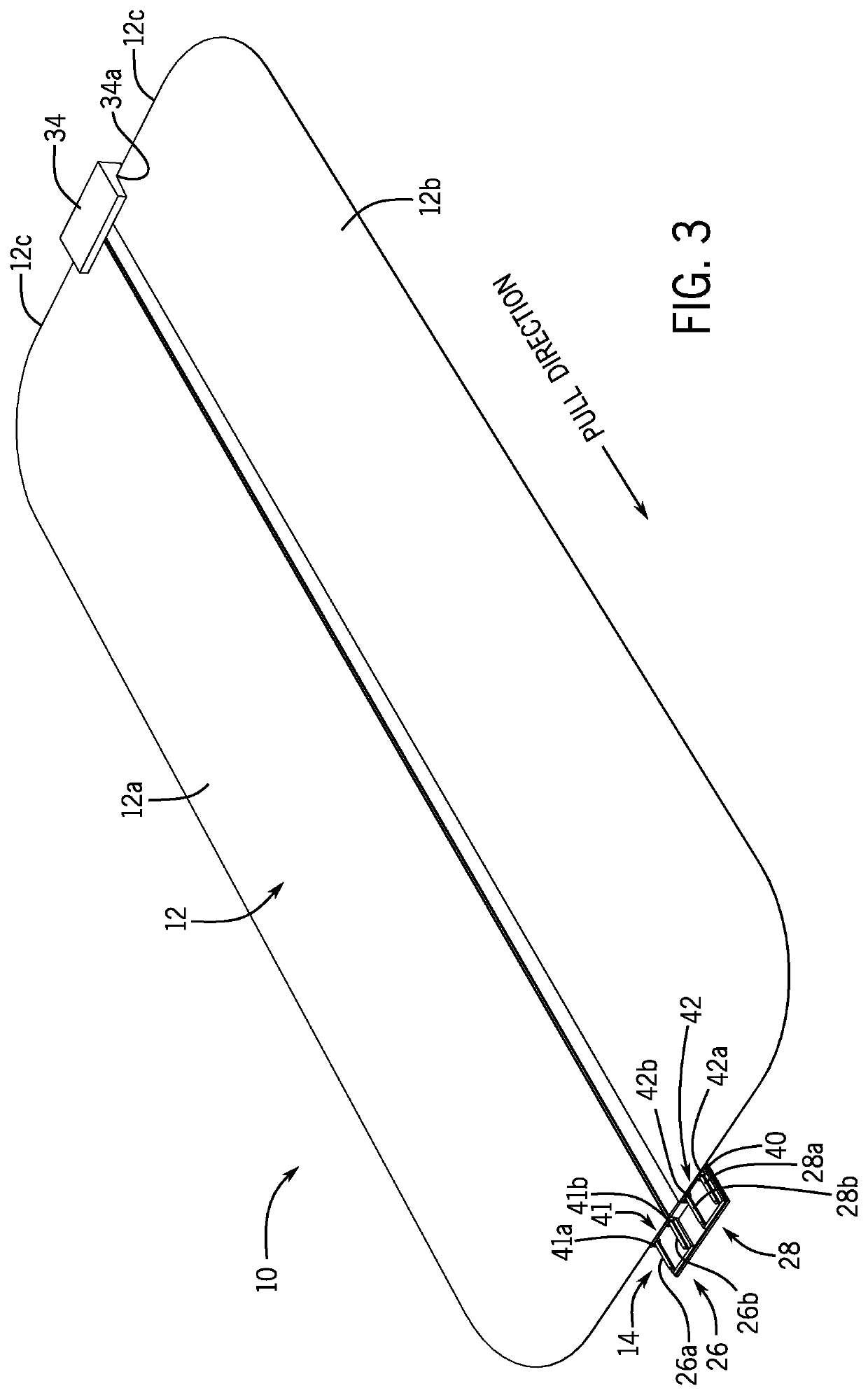Patents
Literature
30 results about "Tissue Harvesting" patented technology
Efficacy Topic
Property
Owner
Technical Advancement
Application Domain
Technology Topic
Technology Field Word
Patent Country/Region
Patent Type
Patent Status
Application Year
Inventor
Tissue extraction and maceration device
Devices and methods are provided for extracting and macerating tissue, and optionally for depositing the tissue onto a tissue scaffold. The device generally includes an outer tube having a substantially open distal end that is adapted to be placed on and preferably to form a seal with a tissue surface, and a shaft rotatably disposed within the outer tube and movable between a first, proximal position in which the shaft is fully disposed within the outer tube, and a second, distal position in which a portion of a distal end of the shaft extends through the opening in the distal end of the outer tube. The device also includes a tissue harvesting tip formed on the distal end of the shaft that is effective to excise a tissue sample when the shaft is moved to the distal position, and a cutting member that is coupled to the shaft at a position proximal to the tissue harvesting tip. The cutting member is effective to macerate a tissue sample excised by the tissue harvesting tip.
Owner:DEPUY SYNTHES PROD INC
Living tissue harvesting apparatus
There is disclosed a living tissue harvesting apparatus according to one aspect of the present invention, comprising a sheath which can be inserted in a body through a cut skin portion, an endoscope inserted through the sheath, a cutting device which is disposed at the sheath and which can cut a living tissue, and a holder which is disposed at the sheath to hold a harvesting object tissue in the body and which includes a press discharge portion to press-discharge the harvesting object tissue in a direction detached from the cutting device, wherein the holder includes a hook portion to catch the living tissue in a position disposed opposite to the cutting device, and the cutting device and hook portion can move with respect to each other.
Owner:OLYMPUS CORP +1
Tissue extraction and maceration device
Owner:DEPUY SYNTHES PROD INC
Autologus tissue harvesting and irrigation device
ActiveUS20060093527A1Reduce decreaseReduce cell damageBioreactor/fermenter combinationsBiological substance pretreatmentsBiologyIrrigation
The present invention includes a harvesting and irrigation device, a method and a kit for the collection of viable fat cells and / or adipose tissue with decreased handing and improved yield and viability.
Owner:TEXAS CAPITAL BANK NAT ASSOC
Tissue refining device
A device for use in a system or method of collecting and processing aspirated tissue received from a harvesting device is provided by a canister body having a vacuum port and an evacuation port operable to be placed in communication with a vacuum source, a tissue harvesting port for directing tissue into the canister body received from the harvesting device under suction, and a separator element dividing the canister body into an upper vacuum chamber in communication with the vacuum port and the tissue harvesting port and a lower vacuum chamber in communication with the evacuation port, the separator element including a plurality of apertures enabling fluid to pass between the chambers while restricting tissue from doing the same and a depression with a channel leading to a tissue retrieval port to facilitate processed tissue collection.
Owner:SUMMIT MEDICAL LLC
Living tissue harvesting apparatus
There is disclosed a living tissue harvesting apparatus according to one aspect of the present invention, comprising a sheath which can be inserted in a body through a cut skin portion, an endoscope inserted through the sheath, a cutting device which is disposed at the sheath and which can cut a living tissue, and a holder which is disposed at the sheath to hold a harvesting object tissue in the body and which includes a press discharge portion to press-discharge the harvesting object tissue in a direction detached from the cutting device, wherein the holder includes a hook portion to catch the living tissue in a position disposed opposite to the cutting device, and the cutting device and hook portion can move with respect to each other.
Owner:OLYMPUS CORP +1
Method and apparatus for tissue harvesting
ActiveUS20150216545A1Easy to harvestGentle on environmentSurgical needlesVaccination/ovulation diagnosticsCatheterWound site
Exemplary methods and devices can be provided for harvesting a plurality of small tissue pieces, e.g., having widths less than about 1 mm or 0.5 mm, using one or more hollow needles. A fluid can be flowed through a conduit past the proximal ends of the needles to facilitate removal of the tissue pieces from the needle lumens, and can maintain the tissue pieces in a controlled and protective liquid environment. A filter can be used to extract and collect the tissue pieces from the liquid, or the tissue pieces can be deposited directly onto a porous dressing. Such tissue pieces can be used as microscopic grafts, which can be applied directly to a wound site or provided on a substrate or dressing, or stored for later use. Such microscopic grafts can promote tissue regrowth and wound healing, or can be applied to a scaffold to grow new tissue.
Owner:THE GENERAL HOSPITAL CORP
Autologus tissue harvesting and irrigation device
ActiveUS7588732B2Improved fatty tissue qualityReduce processingBioreactor/fermenter combinationsBiological substance pretreatmentsBiologyIrrigation
The present invention includes a harvesting and irrigation device, a method and a kit for the collection of viable fat cells and / or adipose tissue with decreased handing and improved yield and viability.
Owner:TEXAS CAPITAL BANK NAT ASSOC
Ergonomic needle tissue harvesting instrument not requiring a stylet
A medical diagnostic instrument for the ergonomic effective and safe harvesting of specimen at targeted remote tissue sites includes a pistol grip style handle with a hand activated lever and a specialized elongated flexible double tube needle shaft inside of a protective sheath for use, in a preferred embodiment, within an endoscope. The length of needle shaft is adjusted using locking buttons. Moving another set of buttons sets the needle penetration depth. With a squeeze of the lever, a novel thin band drive mechanism advances the needle shaft out of its sheath, through adjacent tissue and into the targeted site. The double tube needle shaft incorporates a pointed distal tip attached to an innermost “grater” needle, which has sharp edged tissue cutting holes or “grating” features that are exposed by retracting back an overlying cover tube. Sliding back the cover tube is achieved via a cam. The sharp cutting surfaces of the grater tube communicate directly with a vacuum source attached near the handle. Oscillation of the vacuum augmented grater tube back and forth within the targeted tissue yields small pieces of tissue for harvest. When adequate amounts of tissue are drawn into the grater tube, the cover tube is re-advanced over the distal grater tube, the needle shaft is retracted back into the sheath and the instrument along with the harvested specimen are removed from the patient.
Owner:LSI SOLUTIONS
Tissue Cavitation Device and Method
InactiveUS20100241123A1Small entrancePromote healing of a bony deficitProsthesisOsteosynthesis devicesCavitationMinimally invasive procedures
A percutaneous surgical device and method for creating a cavity within tissue during a minimally invasive procedure. A cavitation device includes a shaft interconnected to a flexible cutting element. A flexible cutting element has a first shape suitable for minimally invasive passage into tissue. The flexible cutting element has a means to move toward a second shape suitable for forming a cavity in tissue. When used in bone, the resulting cavity is usually filled with bone cement or suitable bone replacement material that is injectable and hardens in situ. The disclosed cavitation device and methods can be used for the following applications: (1) treatment or prevention of bone fracture, (2) joint fusion, (3) implant fixation, (4) tissue harvesting (especially bone), (5) removal of diseased tissue (hard or soft tissue), and (6) general tissue removal (hard or soft tissue).
Owner:MIDDLETON LANCE +1
Tissue refining device
A device for use in a system or method of collecting and processing aspirated tissue received from a harvesting device is provided by a canister body having a vacuum port and an evacuation port operable to be placed in communication with a vacuum source, a tissue harvesting port for directing tissue into the canister body received from the harvesting device under suction, a pressure equalization passage, and a separator element dividing the canister body into an upper vacuum chamber in communication with the vacuum port and the tissue harvesting port and a lower vacuum chamber in communication with the evacuation port, the separator element including a plurality of apertures enabling fluid to pass between the chambers while restricting tissue from doing the same and a depression with a channel leading to a tissue retrieval port to facilitate processed tissue collection.
Owner:MIAMI FAT SUPPLY
Fluid jet cell harvester and cellular delivery system
ActiveUS20140058361A1Improve matchEasy to operateIntravenous devicesFluid jet surgical cuttersHigh pressureTarget tissue
An ultrasonically pulsating high-pressure fluid jet coupled with a suction system serve as a tissue harvesting device. The pulsated fluid jet disrupts tissue, permitting both harvesting of cells for therapeutic delivery, and as a surgical dissector and aspirator, for liposuction, soft tissue dissection, etc. The jet is delivered to the target tissue through a cannula, coupled to an aspiration system. An ultrasonically actuated rod vibrates within the cannula engaging a nozzle, disrupting the fluid jet into droplets, permitting tuning of the jet to the resonant frequencies and impact pressures necessary to dissociate the target tissue. A suction recovery system may be separated or integrally formed with the fluid jet cannula, and is linked by a closed tubing system appropriate for sterilization and subsequent delivery of the harvested cells / tissues with or without growth factor or matrix addition for human re-implantation or for in vitro expansion for later re-implantation.
Owner:GORDON CHRISTOPHER BURNSIDE
Tissue harvesting device and method
A tissue harvesting method and device for obtaining micrograft tissue particles within the size range of 50-1500 microns, and more preferably 500-1000 microns, and most preferably 600 microns. The particles may be processed after a piece of donor tissue has been excised from the donor site, or processed into the desired size directly at the donor site, and thereafter excised. Cutters having blades or cutting edges spaced in the range of 50-1500 microns are utilized to obtain particles within the desired size range. An elastomer is positioned between the cutting edges to push the excised particles out of the blades for ease of use.
Owner:KCI LICENSING INC
Tissue extraction and collection device
ActiveUS8034003B2Effective rotationEfficiently translatedVaccination/ovulation diagnosticsEndoscopic cutting instrumentsTissue CollectionTissue sample
Methods and device for extracting and collecting tissue, which can be used for example in tissue engineering and grafting applications, are disclosed. In one embodiment, a device can include an outer tube. A rotatable shaft can be disposed within the outer tube can have a tissue harvesting tip formed on its distal end, the tissue harvesting tip being effective to excise tissue upon rotation thereof. A tissue collection device can be included to receive and collected excised tissue, and the tissue collection device can indicate the amount of tissue collected therein. For example, the tissue collection device can include a straining element which collects excised tissue and an indicator by which to assess the amount of collected tissue. In some embodiments, the tissue collection device can translate to indicate the amount of collected tissue. In many cases, devices disclosed herein can include driving mechanisms that are adapted to drive a tissue harvesting tip such that the tip excises soft tissue, but stops when contacting bone (or soon after contacting bone). In some embodiments, the tissue harvesting tip can be effective to excise viable tissue samples, such that the samples can exhibit desirable proportions of viable cells. Further, in some embodiments, the tissue harvesting tips can excise a tissue sample with tissue particles falling in certain size ranges.
Owner:DEPUY SYNTHES PROD INC
Minimally invasive tissue harvesting device
ActiveUS20180325543A1Damage is causedIncrease volumeSurgical needlesVaccination/ovulation diagnosticsTissue CollectionSoft tissue
A tissue harvesting device (1), comprising a rotary cutting tool (10) adapted to cut soft tissue and a collection container (20) including a central bore (21) extending in a longitudinal direction and with a distal opening (22), wherein the cutting tool is arranged in the central bore of the collection container and adapted to pass through the distal opening and draw harvested soft tissue fragments into the collection container, and a housing (30) accommodating the cutting tool and the collection container, wherein the collection container is axially movable with respect to the housing.
Owner:SKOG MARTEN +7
Adipose tissue separation device and methods
ActiveUS9358327B1Easy to disassembleBiological substance pretreatmentsInfusion syringesLiposuctionFiltration
A tissue separating device and a method of separating pure fat from a fatty liposuction aspirate are provided. The tissue separating device includes a canister device including canister body having a sidewall defining a volume. A tissue retrieval port can be arranged on the canister device and is capable of being arranged in fluid communication with a harvesting device for directing a fatty liposuction aspirate into the volume of the canister device. An adjustable height filtration mesh assembly can be arranged within the canister body and can include a filtering mesh separating the volume into an upper vacuum chamber and a lower vacuum chamber. A tissue harvesting port can be arranged in the sidewall of the canister body and can be capable of being arranged in communication with a collection device to allow the tissue harvesting port to atraumatically receive a filtered pure fat collected on the filtering mesh within the upper vacuum chamber. The filtration mesh assembly can be movably arranged within the canister body such that the filtering mesh is adjustable with respect to the tissue harvesting port.
Owner:VENTURI MARK LOUIS
Tissue extraction and collection device
InactiveCN101543413AVaccination/ovulation diagnosticsEndoscopic cutting instrumentsTissue CollectionTissue sample
The present invention relates to methods and device for extracting and collecting tissue, which can be used for example in tissue engineering and grafting applications. In one embodiment, a device can include an outer tube. A rotatable shaft can be disposed within the outer tube and can have a tissue harvesting tip formed on its distal end, the tissue harvesting tip being effective to excise tissue upon rotation thereof. A tissue collection device can be included to receive and collected excised tissue, and the tissue collection device can indicate the amount of tissue collected therein. For example, the tissue collection device can include a straining element which collects excised tissue and an indicator by which to assess the amount of collected tissue. In some embodiments, the tissue collection device can translate to indicate the amount of collected tissue. In many cases, devices disclosed herein can include driving mechanisms that are adapted to drive a tissue harvesting tip such that the tip excises soft tissue, but stops when contacting bone (or soon after contacting bone). In some embodiments, the tissue harvesting tip can be effective to excise viable tissue samples, such that the samples can exhibit desirable proportions of viable cells. Further, in some embodiments, the tissue harvesting tips can excise a tissue sample with tissue particles falling in certain size ranges.
Owner:DEPUY MITEK INC
Tissue harvesting apparatus
InactiveUS20130184732A1Resilience to bendingAvoid reliabilitySurgical furnitureSurgical needlesLiving bodyBody tissue
A tissue harvesting apparatus is provided which can reliably prevent a worker from being stabbed with a needle tip of a needle tube at the time of disposal. When disposing a used tissue harvesting apparatus used for harvesting of a living body tissue, a sheath member with a puncture pipe body (a puncture needle) inserted and arranged in the inside thereof is wound in the form of a loop around an operating rod and locked in a locking groove. Then, a needle tip of the puncture pipe body protruding from a leading end of the sheath member is housed and fixedly supported in a needle housing hole formed in an end face of a second flange portion on the base end side of the operating rod.
Owner:FUJIFILM CORP
Tissue cavitation device and method
InactiveUS20140303628A1Small entrancePromote healing of a bony deficitOsteosynthesis devicesCavitationMinimally invasive procedures
A percutaneous surgical device and method for creating a cavity within tissue during a minimally invasive procedure. A cavitation device includes a shaft interconnected to a flexible cutting element. A flexible cutting element has a first shape suitable for minimally invasive passage into tissue. The flexible cutting element has a means to move toward a second shape suitable for forming a cavity in tissue. When used in bone, the resulting cavity is usually filled with bone cement or suitable bone replacement material that is injectable and hardens in situ. The disclosed cavitation device and methods can be used for the following applications: (1) treatment or prevention of bone fracture, (2) joint fusion, (3) implant fixation, (4) tissue harvesting (especially bone), (5) removal of diseased tissue (hard or soft tissue), and (6) general tissue removal (hard or soft tissue).
Owner:CAVITECH
Biopsy system for enhanced tissue harvesting
ActiveUS20190388073A1Improve diagnostic ultrasound guidanceIncrease in sizeSurgical needlesVaccination/ovulation diagnosticsTarget tissueCore biopsy needle
A biopsy system for harvesting larger volumes of tissue as compared to standard core biopsy needles. The system has a needle with a lumen, an aperture disposed at the distal end of the needle and connected to the lumen, and a cutting mechanism adapted to cut tissue. When the needle is rotated after it is inserted into a target tissue, the cutting mechanism cuts from the tissue and directs the cut tissue portions into the lumen. Multi-bioimpedance measurements are used to guide a needle and direct the application of electricity for cauterizing tissue.
Owner:THE ARIZONA BOARD OF REGENTS ON BEHALF OF THE UNIV OF ARIZONA +2
Bone fragment and tissue harvesting system
ActiveUS20160324530A1Avoid autograft procurementBiological substance pretreatmentsPharmaceutical containersBone splintersEngineering
A bone fragment and osteomedullary tissue harvesting system that includes a harvesting device, a collection vessel and tubing. The harvesting device includes a needle portion and a handle portion. The needle portion that has a needle bore that extends through at least part of the needle portion. The handle portion is operably attached to the needle portion. The handle portion includes a connection port and a vacuum control mechanism that are in communication with a handle bore that extends through the handle portion. The needle bore is in communication with the handle bore. The vacuum control mechanism includes a vacuum aperture that extends through a surface of the handle portion and is in communication with the handle bore. The collection vessel is capable of receiving aspirated bone fragments and tissue. The tubing operably connects the connection port and the collection vessel.
Owner:THE CLEVELAND CLINIC FOUND +1
Fluid jet cell harvester and cellular delivery system
ActiveUS9549753B2Efficient dissociationHighly efficient emulsificationIntravenous devicesFluid jet surgical cuttersHigh pressureTarget tissue
An ultrasonically pulsating high-pressure fluid jet coupled with a suction system serve as a tissue harvesting device. The pulsated fluid jet disrupts tissue, permitting both harvesting of cells for therapeutic delivery, and as a surgical dissector and aspirator, for liposuction, soft tissue dissection, etc. The jet is delivered to the target tissue through a cannula, coupled to an aspiration system. An ultrasonically actuated rod vibrates within the cannula engaging a nozzle, disrupting the fluid jet into droplets, permitting tuning of the jet to the resonant frequencies and impact pressures necessary to dissociate the target tissue. A suction recovery system may be separated or integrally formed with the fluid jet cannula, and is linked by a closed tubing system appropriate for sterilization and subsequent delivery of the harvested cells / tissues with or without growth factor or matrix addition for human re-implantation or for in vitro expansion for later re-implantation.
Owner:GORDON CHRISTOPHER BURNSIDE
Tissue harvesting device and method
A tissue harvesting method and device for obtaining micrograft tissue particles within the size range of 50-1500 microns, and more preferably 500-1000 microns, and most preferably 600 microns. The particles may be processed after a piece of donor tissue has been excised from the donor site, or processed into the desired size directly at the donor site, and thereafter excised. Cutters having blades or cutting edges spaced in the range of 50-1500 microns are utilized to obtain particles within the desired size range. An elastomer is positioned between the cutting edges to push the excised particles out of the blades for ease of use.
Owner:KCI LICENSING INC
Tissue extraction and collection device
Methods and device for extracting and collecting tissue, which can be used for example in tissue engineering and grafting applications, are disclosed. In one embodiment, a device (90) can include an outer tube (102). A rotatable shaft (110) can be disposed within the outer tube can have a tissue harvesting tip (106) formed on its distal end, the tissue harvesting tip being effective to excise tissue upon rotation thereof. A tissue collection device (128) can be included to receive and collected excised tissue, and the tissue collection device can indicate the amount of tissue collected therein. For example, the tissue collection device can include a straining element (1616) which collects excised tissue and an indicator by which to assess the amount of collected tissue. In some embodiments, the tissue collection device can translate to indicate the amount of collected tissue. In many cases, devices disclosed herein can include driving mechanisms (112) that are adapted to drive a tissue harvesting tip such that the tip excises soft tissue, but stops when contacting bone (or soon after contacting bone). In some embodiments, the tissue harvesting tip can be effective to excise viable tissue samples, such that the samples can exhibit desirable proportions of viable cells. Further, in some embodiments, the tissue harvesting tips can excise a tissue sample with tissue particles falling in certain size ranges.
Owner:DEPUY MITEK INC
Amniopunch and uses thereof
ActiveUS8318413B2For subsequent storageFacilitate of materialVaccination/ovulation diagnosticsDead animal preservationTissue sampleBiology
A tissue, such as an amniotic or chorionic membrane, harvesting device that integrates a system facilitating subsequent storage of tissue samples. The device cuts a sample of the target tissue and automatically deposits the sample in a storage vessel. A method of collecting and storing a sample from a target tissue using a tissue harvesting device. A kit for collecting and storing samples of the target tissue.
Owner:RUTGERS THE STATE UNIV
Amniopunch and uses thereof
ActiveUS20090202976A1For subsequent storageFacilitate of materialVaccination/ovulation diagnosticsDead animal preservationTissue sampleBiology
A tissue, such as an amniotic or chorionic membrane, harvesting device that integrates a system facilitating subsequent storage of tissue samples. The device cuts a sample of the target tissue and automatically deposits the sample in a storage vessel. A method of collecting and storing a sample from a target tissue using a tissue harvesting device. A kit for collecting and storing samples of the target tissue.
Owner:RUTGERS THE STATE UNIV
Adipose tissue separation device and methods
ActiveUS20180117223A1Easy to disassembleBiological substance pretreatmentsMedical devicesFiltrationLiposuction
A tissue separating device (100) is provided. The tissue separating device (100) includes a canister device (20) including a canister body (21) defining a volume. A tissue retrieval port (36) can be arranged on the canister device (20) and is capable of being arranged in fluid communication with a harvesting device (300) for directing a fatty liposuction aspirate into the volume of the canister device (20). An adjustable height filtration mesh assembly (50) can be arranged within the canister body (21) and can include a filtering mesh (62). A tissue harvesting port (24) can be arranged in the sidewall of the canister body (21) and can be capable of being arranged in communication with a collection device (400) to allow the tissue harvesting port (24) to atraumatically receive a filtered pure fat collected on the filtering mesh (62). The filtration mesh assembly (50) can be movably arranged within the canister body (21) such that the filtering mesh (62) is adjustable with respect to the tissue harvesting port (24).
Owner:STRYKER EUROPEAN OPERATIONS LIMITED
Minimally invasive tissue harvesting device
ActiveUS10932813B2Damage is causedIncrease volumeSurgical needlesVaccination/ovulation diagnosticsSoft tissueGeneral surgery
A tissue harvesting device (1), comprising a rotary cutting tool (10) adapted to cut soft tissue and a collection container (20) including a central bore (21) extending in a longitudinal direction and with a distal opening (22), wherein the cutting tool is arranged in the central bore of the collection container and adapted to pass through the distal opening and draw harvested soft tissue fragments into the collection container, and a housing (30) accommodating the cutting tool and the collection container, wherein the collection container is axially movable with respect to the housing.
Owner:SKOG MARTEN +7
Adipose tissue separation device and methods
ActiveUS10874777B2Easy to disassembleBioreactor/fermenter combinationsBiological substance pretreatmentsLiposuctionAdipose tissue
A tissue separating device (100) is provided. The tissue separating device (100) includes a canister device (20) including a canister body (21) defining a volume. A tissue retrieval port (36) can be arranged on the canister device (20) and is capable of being arranged in fluid communication with a harvesting device (300) for directing a fatty liposuction aspirate into the volume of the canister device (20). An adjustable height filtration mesh assembly (50) can be arranged within the canister body (21) and can include a filtering mesh (62). A tissue harvesting port (24) can be arranged in the sidewall of the canister body (21) and can be capable of being arranged in communication with a collection device (400) to allow the tissue harvesting port (24) to atraumatically receive a filtered pure fat collected on the filtering mesh (62). The filtration mesh assembly (50) can be movably arranged within the canister body (21) such that the filtering mesh (62) is adjustable with respect to the tissue harvesting port (24).
Owner:STRYKER CORP
Tissue harvesting devices and methods
PendingUS20190350610A1Uniform widthReduce widthSurgical needlesVaccination/ovulation diagnosticsTissue HarvestingSurface plate
A tissue harvesting and wound closing device includes first and second actuator strip guides of a strip that are slideable along first and second panel guides of a panel, respectively. A first section of a base of the actuator strip has a substantially uniform width between the first and the second actuator strip guides. A second section of the base has a gradually decreasing width between the first and second actuator strip guides. A third second section of the base has a substantially uniform width between the first and second actuator strip guides that is smaller than the first width. When the actuator strip is pulled, the first and second actuator guides slide along the first and second panel guides, respectively, to cut a strip of tissue strip creating an open wound, and a panel pulls proximal tissue on opposite sides of the open wound to close the wound.
Owner:THE GENERAL HOSPITAL CORP
Features
- R&D
- Intellectual Property
- Life Sciences
- Materials
- Tech Scout
Why Patsnap Eureka
- Unparalleled Data Quality
- Higher Quality Content
- 60% Fewer Hallucinations
Social media
Patsnap Eureka Blog
Learn More Browse by: Latest US Patents, China's latest patents, Technical Efficacy Thesaurus, Application Domain, Technology Topic, Popular Technical Reports.
© 2025 PatSnap. All rights reserved.Legal|Privacy policy|Modern Slavery Act Transparency Statement|Sitemap|About US| Contact US: help@patsnap.com
